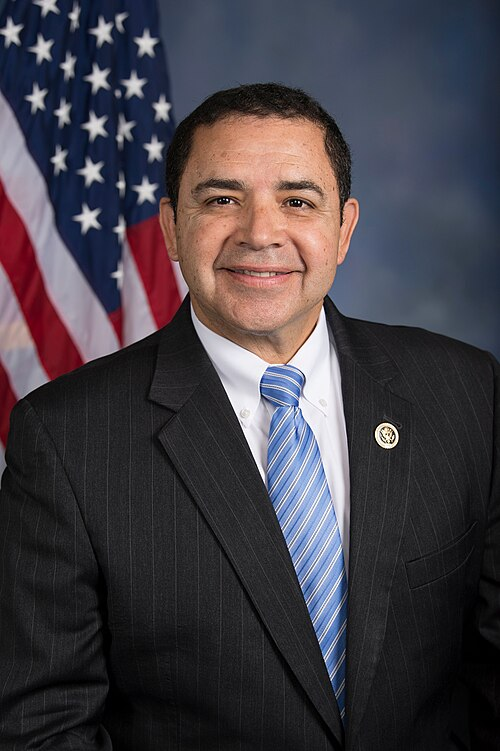|
Tina Smith
D / Senate
|
BRK.B
Berkshire Hathaway Cl B
|
Sale (Partial)
$100,001 - $250,000
|
Jan 30, 2026
|
Jan 27, 2026
|
+1.78%
|
|
Nancy Pelosi
D / House
|
AMZN
AMAZON.COM, INC. - COMMON STOCK
|
Purchase
$500,001 - $1,000,000
|
Jan 23, 2026
|
Jan 16, 2026
|
+0.05%
|
|
Rick Larsen
D / House
|
META
META PLATFORMS, INC. - CLASS A COMMON STOCK
|
Purchase
$1,001 - $15,000
|
Jan 14, 2026
|
Jan 07, 2026
|
+10.13%
|
|
Nancy Pelosi
D / House
|
AMZN
AMAZON.COM, INC. - COMMON STOCK
|
Purchase
$100,001 - $250,000
|
Jan 23, 2026
|
Dec 30, 2025
|
+2.20%
|
|
Markwayne Mullin
R / Senate
|
META
Meta Platforms, Inc. - Class A Common Stock
|
Purchase
$50,001 - $100,000
|
Jan 16, 2026
|
Dec 29, 2025
|
+8.20%
|
|
Markwayne Mullin
R / Senate
|
COP
ConocoPhillips Common Stock
|
Purchase
$15,001 - $50,000
|
Jan 16, 2026
|
Dec 29, 2025
|
+11.95%
|
|
Markwayne Mullin
R / Senate
|
CVX
Chevron Corporation Common Stock
|
Purchase
$15,001 - $50,000
|
Jan 16, 2026
|
Dec 29, 2025
|
+16.59%
|
|
Markwayne Mullin
R / Senate
|
AMZN
Amazon.com, Inc. - Common Stock
|
Purchase
$100,001 - $250,000
|
Jan 16, 2026
|
Dec 29, 2025
|
+2.54%
|
|
Gilbert Ray Cisneros, Jr.
D / House
|
CVX
CHEVRON CORPORATION COMMON STOCK
|
Sale
$1,001 - $15,000
|
Jan 12, 2026
|
Dec 24, 2025
|
+17.31%
|
|
Gilbert Ray Cisneros, Jr.
D / House
|
PWR
QUANTA SERVICES, INC. COMMON STOCK
|
Sale
$1,001 - $15,000
|
Jan 12, 2026
|
Dec 24, 2025
|
+9.24%
|
|
Gilbert Ray Cisneros, Jr.
D / House
|
META
META PLATFORMS, INC. - CLASS A COMMON STOCK
|
Sale
$1,001 - $15,000
|
Jan 12, 2026
|
Dec 24, 2025
|
+7.11%
|
|
Gilbert Ray Cisneros, Jr.
D / House
|
AMZN
AMAZON.COM, INC. - COMMON STOCK
|
Sale
$1,001 - $15,000
|
Jan 12, 2026
|
Dec 24, 2025
|
+2.75%
|
|
Nancy Pelosi
D / House
|
AMZN
AMAZON.COM, INC. - COMMON STOCK
|
Sale
$1,000,001 - $5,000,000
|
Jan 23, 2026
|
Dec 24, 2025
|
+2.75%
|
|
Gilbert Ray Cisneros, Jr.
D / House
|
BRK.B
BERKSHIRE HATHAWAY INC. NEW COMMON STOCK
|
Sale
$1,001 - $15,000
|
Jan 12, 2026
|
Dec 24, 2025
|
-4.38%
|
|
Roger Williams
R / House
|
CVX
CHEVRON CORPORATION COMMON STOCK
|
Sale
$15,001 - $50,000
|
Jan 15, 2026
|
Dec 22, 2025
|
+17.06%
|
|
Gilbert Ray Cisneros, Jr.
D / House
|
AMZN
AMAZON.COM, INC. - COMMON STOCK
|
Sale
$1,001 - $15,000
|
Jan 12, 2026
|
Dec 19, 2025
|
+3.88%
|
|
Gilbert Ray Cisneros, Jr.
D / House
|
PWR
QUANTA SERVICES, INC. COMMON STOCK
|
Sale
$1,001 - $15,000
|
Jan 12, 2026
|
Dec 19, 2025
|
+9.86%
|
|
Julie Johnson
D / House
|
XEL
XCEL ENERGY INC.
|
Sale
$1,001 - $15,000
|
Jan 15, 2026
|
Dec 18, 2025
|
+1.04%
|
|
Julie Johnson
D / House
|
CMS
CMS ENERGY CORPORATION COMMON STOCK
|
Sale
$1,001 - $15,000
|
Jan 15, 2026
|
Dec 18, 2025
|
-1.04%
|
|
Julie Johnson
D / House
|
CVX
CHEVRON CORPORATION COMMON STOCK
|
Sale
$1,001 - $15,000
|
Jan 15, 2026
|
Dec 18, 2025
|
+17.49%
|
|
Julie Johnson
D / House
|
NEE
NEXTERA ENERGY, INC. COMMON STOCK
|
Sale
$1,001 - $15,000
|
Jan 15, 2026
|
Dec 18, 2025
|
+6.44%
|
|
Julie Johnson
D / House
|
COP
CONOCOPHILLIPS COMMON STOCK
|
Sale
$1,001 - $15,000
|
Jan 15, 2026
|
Dec 18, 2025
|
+10.73%
|
|
Julie Johnson
D / House
|
CMS
CMS ENERGY CORPORATION COMMON STOCK
|
Sale
$1,001 - $15,000
|
Jan 15, 2026
|
Dec 09, 2025
|
+0.21%
|
|
April McClain Delaney
D / House
|
MLM
MARTIN MARIETTA MATERIALS, INC. COMMON STOCK
|
Purchase
$1,001 - $15,000
|
Jan 05, 2026
|
Dec 02, 2025
|
+5.69%
|
|
April McClain Delaney
D / House
|
PWR
QUANTA SERVICES, INC. COMMON STOCK
|
Sale
$1,001 - $15,000
|
Jan 05, 2026
|
Dec 02, 2025
|
+2.84%
|
|
Ro Khanna
D / House
|
PPL
PPL CORPORATION CMN
|
Purchase
$1,001 - $15,000
|
Dec 08, 2025
|
Nov 25, 2025
|
-2.95%
|
|
Ro Khanna
D / House
|
AMZN
DC AMAZON.COM INC CMN
|
Sale
$1,001 - $15,000
|
Dec 08, 2025
|
Nov 20, 2025
|
+4.16%
|
|
Ro Khanna
D / House
|
AMZN
AMAZON.COM INC CMN
|
Sale
$1,001 - $15,000
|
Dec 08, 2025
|
Nov 20, 2025
|
+4.16%
|
|
Ro Khanna
D / House
|
MU
MICRON TECHNOLOGY, INC. CMN
|
Sale
$1,001 - $15,000
|
Dec 08, 2025
|
Nov 20, 2025
|
+99.98%
|
|
Ro Khanna
D / House
|
MU
MICRON TECHNOLOGY, INC. CMN
|
Sale
$1,001 - $15,000
|
Dec 08, 2025
|
Nov 20, 2025
|
+99.98%
|
|
Robert Bresnahan
R / House
|
BRK.B
BERKSHIRE HATHAWAY INC. NEW COMMON STOCK
|
Sale
$50,001 - $100,000
|
Dec 19, 2025
|
Nov 19, 2025
|
-8.57%
|
|
Gilbert Ray Cisneros, Jr.
D / House
|
PWR
QUANTA SERVICES, INC. COMMON STOCK
|
Purchase
$1,001 - $15,000
|
Dec 15, 2025
|
Nov 18, 2025
|
+3.23%
|
|
Gilbert Ray Cisneros, Jr.
D / House
|
OKE
ONEOK, INC. COMMON STOCK
|
Purchase
$1,001 - $15,000
|
Dec 15, 2025
|
Nov 18, 2025
|
+9.24%
|
|
Gilbert Ray Cisneros, Jr.
D / House
|
BRK.B
BERKSHIRE HATHAWAY INC. NEW COMMON STOCK
|
Purchase
$1,001 - $15,000
|
Dec 15, 2025
|
Nov 18, 2025
|
-9.54%
|
|
Gilbert Ray Cisneros, Jr.
D / House
|
CVX
CHEVRON CORPORATION COMMON STOCK
|
Purchase
$1,001 - $15,000
|
Dec 15, 2025
|
Nov 18, 2025
|
+10.34%
|
|
Gilbert Ray Cisneros, Jr.
D / House
|
AMZN
AMAZON.COM, INC. - COMMON STOCK
|
Purchase
$15,001 - $50,000
|
Dec 15, 2025
|
Nov 18, 2025
|
+2.71%
|
|
Gilbert Ray Cisneros, Jr.
D / House
|
AMZN
AMAZON.COM, INC. - COMMON STOCK
|
Purchase
$1,001 - $15,000
|
Dec 15, 2025
|
Nov 18, 2025
|
+2.71%
|
|
April McClain Delaney
D / House
|
PWR
QUANTA SERVICES, INC. COMMON STOCK
|
Sale
$1,001 - $15,000
|
Dec 08, 2025
|
Nov 17, 2025
|
+7.24%
|
|
Ro Khanna
D / House
|
TM
TOYOTA MOTOR CORPORATION SPON ADR
|
Purchase
$1,001 - $15,000
|
Dec 08, 2025
|
Nov 14, 2025
|
+8.19%
|
|
John Boozman
R / Senate
|
AMZN
Amazon.com Inc
|
Purchase
$1,001 - $15,000
|
Dec 08, 2025
|
Nov 13, 2025
|
-2.23%
|
|
Ro Khanna
D / House
|
MU
MICRON TECHNOLOGY, INC. CMN
|
Sale
$1,001 - $15,000
|
Dec 08, 2025
|
Nov 13, 2025
|
+72.14%
|
|
Ro Khanna
D / House
|
MU
MICRON TECHNOLOGY, INC. CMN
|
Sale
$1,001 - $15,000
|
Dec 08, 2025
|
Nov 13, 2025
|
+72.14%
|
|
Shelley Moore Capito
R / Senate
|
META
Meta Platforms Inc
|
Purchase
$1,001 - $15,000
|
Dec 04, 2025
|
Nov 13, 2025
|
+14.53%
|
|
Julie Johnson
D / House
|
COP
CONOCOPHILLIPS COMMON STOCK
|
Sale
$1,001 - $15,000
|
Dec 11, 2025
|
Nov 13, 2025
|
+13.61%
|
|
Julie Johnson
D / House
|
CVX
CHEVRON CORPORATION COMMON STOCK
|
Sale
$1,001 - $15,000
|
Dec 11, 2025
|
Nov 13, 2025
|
+10.75%
|
|
Julie Johnson
D / House
|
XEL
XCEL ENERGY INC.
|
Sale
$1,001 - $15,000
|
Dec 11, 2025
|
Nov 13, 2025
|
-8.04%
|
|
Julie Johnson
D / House
|
CMS
CMS ENERGY CORPORATION COMMON STOCK
|
Sale
$1,001 - $15,000
|
Dec 11, 2025
|
Nov 13, 2025
|
-6.25%
|
|
Julie Johnson
D / House
|
NEE
NEXTERA ENERGY, INC. COMMON STOCK
|
Sale
$1,001 - $15,000
|
Dec 11, 2025
|
Nov 13, 2025
|
+1.71%
|
|
Ro Khanna
D / House
|
BRK.B
DC BERKSHIRE HATHAWAY (NC. CLASS B
|
Sale
$1,001 - $15,000
|
Dec 08, 2025
|
Nov 12, 2025
|
-5.63%
|
|
Ro Khanna
D / House
|
BRK.B
BERKSHIRE HATHAWAY INC, CLASS B
|
Sale
$1,001 - $15,000
|
Dec 08, 2025
|
Nov 12, 2025
|
-5.63%
|
|
Jonathan L. Jackson
D / House
|
META
META PLATFORMS, INC. - CLASS A COMMON STOCK
|
Sale
$1,001 - $15,000
|
Dec 05, 2025
|
Nov 11, 2025
|
+12.94%
|
|
Ro Khanna
D / House
|
MU
MICRON TECHNOLOGY, INC. CMN
|
Sale
$1,001 - $15,000
|
Dec 08, 2025
|
Nov 10, 2025
|
+62.23%
|
|
Katie Boyd Britt
R / Senate
|
AMZN
Amazon.com Inc
|
Sale (Partial)
$1,001 - $15,000
|
Jan 26, 2026
|
Nov 07, 2025
|
-5.22%
|
|
Richard McCormick
R / House
|
BRK.B
BERKSHIRE HATHAWAY INC. NEW COMMON STOCK
|
Purchase
$1,001 - $15,000
|
Dec 09, 2025
|
Nov 05, 2025
|
-3.83%
|
|
Ro Khanna
D / House
|
MU
MICRON TECHNOLOGY, INC. CMN
|
Sale
$1,001 - $15,000
|
Dec 08, 2025
|
Nov 05, 2025
|
+72.54%
|
|
Richard McCormick
R / House
|
NEE
NEXTERA ENERGY, INC. COMMON STOCK
|
Purchase
$1,001 - $15,000
|
Dec 09, 2025
|
Nov 05, 2025
|
+4.87%
|
|
Ro Khanna
D / House
|
MU
MICRON TECHNOLOGY, INC. CMN
|
Sale
$1,001 - $15,000
|
Dec 08, 2025
|
Nov 05, 2025
|
+72.54%
|
|
David Taylor
R / House
|
AEP
AMERICAN ELECTRIC POWER COMPANY, INC.
|
Sale
$1,001 - $15,000
|
Nov 18, 2025
|
Nov 03, 2025
|
-1.39%
|
|
Ro Khanna
D / House
|
BRK.B
BERKSHIRE HATHAWAY INC. CLASS B
|
Sale
$15,001 - $50,000
|
Dec 08, 2025
|
Nov 03, 2025
|
-0.25%
|
|
Markwayne Mullin
R / Senate
|
BRK.B
Berkshire Hathaway Cl B
|
Sale (Full)
$15,001 - $50,000
|
Nov 21, 2025
|
Nov 03, 2025
|
-0.25%
|
|
David Taylor
R / House
|
AEP
AMERICAN ELECTRIC POWER COMPANY, INC.
|
Sale
$1,001 - $15,000
|
Nov 18, 2025
|
Nov 03, 2025
|
-1.39%
|
|
Ro Khanna
D / House
|
MLM
MARTIN MARIETTA MATERIALS, INC CMN
|
Purchase
$1,001 - $15,000
|
Dec 08, 2025
|
Nov 03, 2025
|
+4.01%
|
|
Lisa C. McClain
R / House
|
SRE
DBA SEMPRA COMMON STOCK
|
Sale
$1,001 - $15,000
|
Nov 21, 2025
|
Oct 31, 2025
|
-6.83%
|
|
Lisa C. McClain
R / House
|
COP
CONOCOPHILLIPS COMMON STOCK
|
Sale
$1,001 - $15,000
|
Nov 21, 2025
|
Oct 31, 2025
|
+15.83%
|
|
Lisa C. McClain
R / House
|
PWR
QUANTA SERVICES, INC. COMMON STOCK
|
Sale
$1,001 - $15,000
|
Nov 21, 2025
|
Oct 31, 2025
|
+4.21%
|
|
Lisa C. McClain
R / House
|
XOM
EXXON MOBIL CORPORATION COMMON STOCK
|
Sale
$1,001 - $15,000
|
Nov 21, 2025
|
Oct 31, 2025
|
+22.18%
|
|
John Boozman
R / Senate
|
META
Meta Platforms Inc
|
Purchase
$1,001 - $15,000
|
Nov 15, 2025
|
Oct 31, 2025
|
+9.05%
|
|
Lisa C. McClain
R / House
|
EXC
EXELON CORPORATION
|
Sale
$1,001 - $15,000
|
Nov 21, 2025
|
Oct 31, 2025
|
-4.37%
|
|
Lisa C. McClain
R / House
|
META
META PLATFORMS, INC. - CLASS A COMMON STOCK
|
Sale
$1,001 - $15,000
|
Nov 21, 2025
|
Oct 31, 2025
|
+9.05%
|
|
Lisa C. McClain
R / House
|
BRK.B
BERKSHIRE HATHAWAY INC. NEW COMMON STOCK
|
Sale
$1,001 - $15,000
|
Nov 21, 2025
|
Oct 31, 2025
|
-0.84%
|
|
Lisa C. McClain
R / House
|
DUK
DUKE ENERGY CORPORATION
|
Sale
$1,001 - $15,000
|
Nov 21, 2025
|
Oct 31, 2025
|
-3.84%
|
|
Lisa C. McClain
R / House
|
XOM
EXXON MOBIL CORPORATION COMMON STOCK
|
Purchase
$1,001 - $15,000
|
Nov 21, 2025
|
Oct 30, 2025
|
+21.53%
|
|
Lisa C. McClain
R / House
|
BRK.B
BERKSHIRE HATHAWAY INC. NEW COMMON STOCK
|
Purchase
$1,001 - $15,000
|
Nov 21, 2025
|
Oct 30, 2025
|
-1.34%
|
|
Lisa C. McClain
R / House
|
XOM
EXXON MOBIL CORPORATION COMMON STOCK
|
Sale
$1,001 - $15,000
|
Nov 21, 2025
|
Oct 30, 2025
|
+21.53%
|
|
Lisa C. McClain
R / House
|
BRK.B
BERKSHIRE HATHAWAY INC. NEW COMMON STOCK
|
Sale
$1,001 - $15,000
|
Nov 21, 2025
|
Oct 30, 2025
|
-1.34%
|
|
Lisa C. McClain
R / House
|
PWR
QUANTA SERVICES, INC. COMMON STOCK
|
Purchase
$1,001 - $15,000
|
Nov 21, 2025
|
Oct 30, 2025
|
+2.83%
|
|
Lisa C. McClain
R / House
|
META
META PLATFORMS, INC. - CLASS A COMMON STOCK
|
Sale
$1,001 - $15,000
|
Nov 21, 2025
|
Oct 30, 2025
|
+5.75%
|
|
Lisa C. McClain
R / House
|
SRE
DBA SEMPRA COMMON STOCK
|
Purchase
$1,001 - $15,000
|
Nov 21, 2025
|
Oct 30, 2025
|
-7.63%
|
|
Lisa C. McClain
R / House
|
DUK
DUKE ENERGY CORPORATION
|
Purchase
$1,001 - $15,000
|
Nov 21, 2025
|
Oct 30, 2025
|
-4.84%
|
|
Lisa C. McClain
R / House
|
COP
CONOCOPHILLIPS COMMON STOCK
|
Sale
$1,001 - $15,000
|
Nov 21, 2025
|
Oct 30, 2025
|
+16.50%
|
|
Lisa C. McClain
R / House
|
EXC
EXELON CORPORATION
|
Purchase
$1,001 - $15,000
|
Nov 21, 2025
|
Oct 30, 2025
|
-6.62%
|
|
Lisa C. McClain
R / House
|
SRE
DBA SEMPRA COMMON STOCK
|
Sale
$1,001 - $15,000
|
Nov 21, 2025
|
Oct 30, 2025
|
-7.63%
|
|
Lisa C. McClain
R / House
|
PWR
QUANTA SERVICES, INC. COMMON STOCK
|
Sale
$1,001 - $15,000
|
Nov 21, 2025
|
Oct 30, 2025
|
+2.83%
|
|
Lisa C. McClain
R / House
|
META
META PLATFORMS, INC. - CLASS A COMMON STOCK
|
Purchase
$1,001 - $15,000
|
Nov 21, 2025
|
Oct 30, 2025
|
+5.75%
|
|
Lisa C. McClain
R / House
|
EXC
EXELON CORPORATION
|
Sale
$1,001 - $15,000
|
Nov 21, 2025
|
Oct 30, 2025
|
-6.62%
|
|
Lisa C. McClain
R / House
|
COP
CONOCOPHILLIPS COMMON STOCK
|
Purchase
$1,001 - $15,000
|
Nov 21, 2025
|
Oct 30, 2025
|
+16.50%
|
|
Lisa C. McClain
R / House
|
DUK
DUKE ENERGY CORPORATION
|
Sale
$1,001 - $15,000
|
Nov 21, 2025
|
Oct 30, 2025
|
-4.84%
|
|
Ro Khanna
D / House
|
MLM
MARTIN MARIETTA MATERIALS,INC CMN
|
Sale
$1,001 - $15,000
|
Nov 06, 2025
|
Oct 28, 2025
|
+4.97%
|
|
Ro Khanna
D / House
|
MLM
MARTIN MARIETTA MATERIALS, INC CMN
|
Sale
$1,001 - $15,000
|
Nov 06, 2025
|
Oct 28, 2025
|
+4.97%
|
|
Michael T. McCaul
R / House
|
COP
CONOCOPHILLIPS
|
Sale
$50,001 - $100,000
|
Nov 10, 2025
|
Oct 27, 2025
|
+16.53%
|
|
Michael T. McCaul
R / House
|
AMZN
AMAZON COM INC COM
|
Sale
$50,001 - $100,000
|
Nov 10, 2025
|
Oct 27, 2025
|
+4.45%
|
|
Michael T. McCaul
R / House
|
META
META PLATFORMS INC-CLASS A
|
Sale
$1,001 - $15,000
|
Nov 10, 2025
|
Oct 27, 2025
|
-5.56%
|
|
Michael T. McCaul
R / House
|
CVX
CHEVRON CORP
|
Sale
$15,001 - $50,000
|
Nov 10, 2025
|
Oct 27, 2025
|
+12.94%
|
|
Michael T. McCaul
R / House
|
AMZN
AMAZON.COM INC
|
Sale
$1,001 - $15,000
|
Nov 10, 2025
|
Oct 27, 2025
|
+4.45%
|
|
Michael T. McCaul
R / House
|
MLM
MARTIN MARIETTA MATERIALS
|
Sale
$1,001 - $15,000
|
Nov 10, 2025
|
Oct 27, 2025
|
+4.70%
|
|
Marjorie Taylor Greene
R / House
|
BRK.B
BERKSHIRE HATHAWAY INC. NEW COMMON STOCK
|
Purchase
$1,001 - $15,000
|
Oct 28, 2025
|
Oct 24, 2025
|
-4.55%
|
|
Ro Khanna
D / House
|
MU
MICRON TECHNOLOGY, INC. CMN
|
Sale
$1,001 - $15,000
|
Nov 06, 2025
|
Oct 24, 2025
|
+87.23%
|
|
Ro Khanna
D / House
|
EQT
EQT CORPORATION CMN
|
Purchase
$15,001 - $50,000
|
Nov 06, 2025
|
Oct 24, 2025
|
+5.31%
|
|
Ro Khanna
D / House
|
COP
CONOCOPHILLIPS CMN
|
Sale
$15,001 - $50,000
|
Nov 06, 2025
|
Oct 24, 2025
|
+16.21%
|
|
Marjorie Taylor Greene
R / House
|
CVX
CHEVRON CORPORATION COMMON STOCK
|
Purchase
$1,001 - $15,000
|
Oct 28, 2025
|
Oct 24, 2025
|
+11.52%
|
|
Marjorie Taylor Greene
R / House
|
AMZN
AMAZON.COM, INC. - COMMON STOCK
|
Purchase
$1,001 - $15,000
|
Oct 28, 2025
|
Oct 24, 2025
|
+4.53%
|
|
Ro Khanna
D / House
|
MU
MICRON TECHNOLOGY, INC. CMN
|
Sale
$1,001 - $15,000
|
Nov 06, 2025
|
Oct 23, 2025
|
+97.66%
|
|
Michael T. McCaul
R / House
|
CVX
CHEVRON CORP
|
Sale
$100,001 - $250,000
|
Nov 10, 2025
|
Oct 22, 2025
|
+10.09%
|
|
Ro Khanna
D / House
|
MU
MICRON TECHNOLOGY, INC. CMN
|
Sale
$1,001 - $15,000
|
Nov 06, 2025
|
Oct 22, 2025
|
+105.42%
|
|
Julia Letlow
R / House
|
AMZN
AMAZON.COM, INC. - COMMON STOCK
|
Sale
$1,001 - $15,000
|
Jan 13, 2026
|
Oct 22, 2025
|
+6.17%
|
|
Gilbert Ray Cisneros, Jr.
D / House
|
BRK.B
BERKSHIRE HATHAWAY INC. NEW COMMON STOCK
|
Purchase
$1,001 - $15,000
|
Nov 18, 2025
|
Oct 17, 2025
|
-6.58%
|
|
Gilbert Ray Cisneros, Jr.
D / House
|
AMZN
AMAZON.COM, INC. - COMMON STOCK
|
Purchase
$1,001 - $15,000
|
Nov 18, 2025
|
Oct 17, 2025
|
+8.16%
|
|
Gilbert Ray Cisneros, Jr.
D / House
|
CVX
CHEVRON CORPORATION COMMON STOCK
|
Purchase
$1,001 - $15,000
|
Nov 18, 2025
|
Oct 17, 2025
|
+11.39%
|
|
Gilbert Ray Cisneros, Jr.
D / House
|
META
META PLATFORMS, INC. - CLASS A COMMON STOCK
|
Purchase
$1,001 - $15,000
|
Nov 18, 2025
|
Oct 17, 2025
|
-4.23%
|
|
Ro Khanna
D / House
|
AMZN
AMAZON.COM INC CMN
|
Purchase
$1,001 - $15,000
|
Nov 06, 2025
|
Oct 17, 2025
|
+8.16%
|
|
Shelley Moore Capito
R / Senate
|
CVX
Chevron Corp
|
Sale (Partial)
$1,001 - $15,000
|
Nov 04, 2025
|
Oct 17, 2025
|
+11.39%
|
|
Ro Khanna
D / House
|
NEE
NEXTERA ENERGY CAPITAL HYBRID 06/15/2054 USD
|
Purchase
$1,001 - $15,000
|
Nov 06, 2025
|
Oct 17, 2025
|
-0.18%
|
|
Gilbert Ray Cisneros, Jr.
D / House
|
PWR
QUANTA SERVICES, INC. COMMON STOCK
|
Purchase
$1,001 - $15,000
|
Nov 18, 2025
|
Oct 17, 2025
|
+5.23%
|
|
Marjorie Taylor Greene
R / House
|
EXC
EXELON CORPORATION
|
Purchase
$1,001 - $15,000
|
Oct 20, 2025
|
Oct 15, 2025
|
-10.43%
|
|
Marjorie Taylor Greene
R / House
|
AMZN
AMAZON.COM, INC. - COMMON STOCK
|
Purchase
$1,001 - $15,000
|
Oct 20, 2025
|
Oct 15, 2025
|
+6.95%
|
|
Lisa C. McClain
R / House
|
TM
TOYOTA MOTOR CORPORATION COMMON STOCK
|
Sale
$1,001 - $15,000
|
Nov 21, 2025
|
Oct 14, 2025
|
+13.80%
|
|
Lisa C. McClain
R / House
|
META
META PLATFORMS, INC. - CLASS A COMMON STOCK
|
Sale
$1,001 - $15,000
|
Nov 21, 2025
|
Oct 14, 2025
|
-3.40%
|
|
Thomas R. Suozzi
D / House
|
NEE
NEXTERA ENERGY, INC. COMMON STOCK
|
Sale
$1,001 - $15,000
|
Oct 21, 2025
|
Oct 14, 2025
|
-0.66%
|
|
Eleanor Holmes Norton
D / House
|
BRK.B
BERKSHIRE HATHAWAY INC. NEW COMMON STOCK
|
Sale
$15,001 - $50,000
|
Oct 21, 2025
|
Oct 14, 2025
|
-7.63%
|
|
Lisa C. McClain
R / House
|
AMZN
AMAZON.COM, INC. - COMMON STOCK
|
Sale
$1,001 - $15,000
|
Nov 21, 2025
|
Oct 14, 2025
|
+6.07%
|
|
Marjorie Taylor Greene
R / House
|
AMZN
AMAZON.COM, INC. - COMMON STOCK
|
Purchase
$1,001 - $15,000
|
Oct 20, 2025
|
Oct 09, 2025
|
+1.98%
|
|
Gilbert Ray Cisneros, Jr.
D / House
|
EIX
EDISON INTERNATIONAL COMMON STOCK
|
Sale
$1,001 - $15,000
|
Nov 18, 2025
|
Oct 09, 2025
|
+14.26%
|
|
Michael T. McCaul
R / House
|
META
META PLATFORMS INC-CLASS A
|
Sale
$1,001 - $15,000
|
Nov 10, 2025
|
Oct 08, 2025
|
-3.01%
|
|
Rick Larsen
D / House
|
AEP
AMERICAN ELECTRIC POWER COMPANY, INC.
|
Purchase
$1,001 - $15,000
|
Oct 16, 2025
|
Oct 06, 2025
|
+0.51%
|
|
Ro Khanna
D / House
|
MU
MICRON TECHNOLOGY, INC. CMN
|
Sale
$1,001 - $15,000
|
Nov 06, 2025
|
Oct 03, 2025
|
+117.48%
|
|
Ro Khanna
D / House
|
MU
MICRON TECHNOLOGY, INC. CMN
|
Sale
$1,001 - $15,000
|
Nov 06, 2025
|
Oct 03, 2025
|
+117.48%
|
|
Julia Letlow
R / House
|
MU
MICRON TECHNOLOGY, INC. - COMMON STOCK
|
Sale
$1,001 - $15,000
|
Jan 13, 2026
|
Oct 01, 2025
|
+124.25%
|
|
Julia Letlow
R / House
|
AMZN
AMAZON.COM, INC. - COMMON STOCK
|
Purchase
$1,001 - $15,000
|
Jan 13, 2026
|
Oct 01, 2025
|
+4.94%
|
|
Michael T. McCaul
R / House
|
META
META PLATFORMS INC-CLASS A
|
Sale
$1,001 - $15,000
|
Oct 10, 2025
|
Sep 30, 2025
|
-6.33%
|
|
Julie Johnson
D / House
|
SRE
DBA SEMPRA COMMON STOCK
|
Sale
$1,001 - $15,000
|
Oct 07, 2025
|
Sep 25, 2025
|
-4.28%
|
|
Michael T. McCaul
R / House
|
AMZN
AMAZON COM INC COM
|
Sale
$1,001 - $15,000
|
Oct 10, 2025
|
Sep 25, 2025
|
+4.81%
|
|
Julie Johnson
D / House
|
XEL
XCEL ENERGY INC.
|
Sale
$1,001 - $15,000
|
Oct 07, 2025
|
Sep 25, 2025
|
-6.43%
|
|
Ro Khanna
D / House
|
AMZN
AMAZON.COM INC CMN
|
Sale
$1,001 - $15,000
|
Oct 03, 2025
|
Sep 25, 2025
|
+4.81%
|
|
Lisa C. McClain
R / House
|
AMZN
AMAZON.COM, INC. - COMMON STOCK
|
Sale
$1,001 - $15,000
|
Oct 22, 2025
|
Sep 25, 2025
|
+4.81%
|
|
Ro Khanna
D / House
|
MLM
–MARTIN MARIETTA MATERIALS, INC CMN
|
Purchase
$1,001 - $15,000
|
Oct 03, 2025
|
Sep 24, 2025
|
+3.06%
|
|
Ro Khanna
D / House
|
MU
MICRON TECHNOLOGY, INC. CMN
|
Sale
$1,001 - $15,000
|
Oct 03, 2025
|
Sep 23, 2025
|
+145.28%
|
|
Val T. Hoyle
D / House
|
BRK.B
BERKSHIRE HATHAWAY INC. NEW COMMON STOCK
|
Sale
$1,001 - $15,000
|
Oct 10, 2025
|
Sep 23, 2025
|
-6.78%
|
|
Val T. Hoyle
D / House
|
META
META PLATFORMS, INC. - CLASS A COMMON STOCK
|
Sale
$15,001 - $50,000
|
Oct 10, 2025
|
Sep 23, 2025
|
-9.19%
|
|
Jerry Moran
R / Senate
|
BRK.B
Berkshire Hathaway Cl B
|
Purchase
$1,001 - $15,000
|
Oct 27, 2025
|
Sep 23, 2025
|
-6.78%
|
|
Val T. Hoyle
D / House
|
AMZN
AMAZON.COM, INC. - COMMON STOCK
|
Sale
$15,001 - $50,000
|
Oct 10, 2025
|
Sep 23, 2025
|
+4.39%
|
|
Val T. Hoyle
D / House
|
PWR
QUANTA SERVICES, INC. COMMON STOCK
|
Sale
$1,001 - $15,000
|
Oct 10, 2025
|
Sep 23, 2025
|
+17.81%
|
|
Val T. Hoyle
D / House
|
COP
CONOCOPHILLIPS COMMON STOCK
|
Sale
$1,001 - $15,000
|
Oct 10, 2025
|
Sep 23, 2025
|
+7.48%
|
|
Val T. Hoyle
D / House
|
XOM
EXXON MOBIL CORPORATION COMMON STOCK
|
Sale
$1,001 - $15,000
|
Oct 10, 2025
|
Sep 23, 2025
|
+20.05%
|
|
Ro Khanna
D / House
|
MU
MICRON TECHNOLOGY, INC. CMN
|
Sale
$1,001 - $15,000
|
Oct 03, 2025
|
Sep 23, 2025
|
+145.28%
|
|
Val T. Hoyle
D / House
|
GE
GE AEROSPACE COMMON STOCK
|
Sale
$1,001 - $15,000
|
Oct 10, 2025
|
Sep 23, 2025
|
-3.66%
|
|
Val T. Hoyle
D / House
|
MU
MICRON TECHNOLOGY, INC. - COMMON STOCK
|
Sale
$1,001 - $15,000
|
Oct 10, 2025
|
Sep 23, 2025
|
+145.28%
|
|
Val T. Hoyle
D / House
|
MLM
MARTIN MARIETTA MATERIALS, INC. COMMON STOCK
|
Sale
$1,001 - $15,000
|
Oct 10, 2025
|
Sep 23, 2025
|
+1.91%
|
|
David Taylor
R / House
|
AEP
AMERICAN ELECTRIC POWER COMPANY, INC.
|
Purchase
$1,001 - $15,000
|
Oct 07, 2025
|
Sep 22, 2025
|
+8.40%
|
|
Ro Khanna
D / House
|
MU
MICRON TECHNOLOGY, INC. CMN
|
Sale
$1,001 - $15,000
|
Oct 03, 2025
|
Sep 22, 2025
|
+148.53%
|
|
Ro Khanna
D / House
|
MU
MICRON TECHNOLOGY, INC. CMN
|
Sale
$1,001 - $15,000
|
Oct 03, 2025
|
Sep 22, 2025
|
+148.53%
|
|
Ro Khanna
D / House
|
AMZN
AMAZON.COM INC CMN
|
Purchase
$1,001 - $15,000
|
Oct 03, 2025
|
Sep 19, 2025
|
-0.62%
|
|
Julia Letlow
R / House
|
MU
MICRON TECHNOLOGY, INC. - COMMON STOCK
|
Sale
$1,001 - $15,000
|
Jan 13, 2026
|
Sep 17, 2025
|
+154.34%
|
|
John Boozman
R / Senate
|
MU
Micron Technology
|
Sale (Partial)
$1,001 - $15,000
|
Oct 10, 2025
|
Sep 17, 2025
|
+154.34%
|
|
Cleo Fields
D / House
|
META
META PLATFORMS, INC. - CLASS A COMMON STOCK
|
Purchase
$15,001 - $50,000
|
Sep 30, 2025
|
Sep 17, 2025
|
-12.60%
|
|
Cleo Fields
D / House
|
AMZN
AMAZON.COM, INC. - COMMON STOCK
|
Purchase
$15,001 - $50,000
|
Sep 30, 2025
|
Sep 17, 2025
|
-1.66%
|
|
Julie Johnson
D / House
|
XOM
EXXON MOBIL CORPORATION COMMON STOCK
|
Sale
$1,001 - $15,000
|
Oct 07, 2025
|
Sep 16, 2025
|
+18.45%
|
|
Gilbert Ray Cisneros, Jr.
D / House
|
PWR
QUANTA SERVICES, INC. COMMON STOCK
|
Purchase
$1,001 - $15,000
|
Oct 10, 2025
|
Sep 12, 2025
|
+18.82%
|
|
Lisa C. McClain
R / House
|
AMZN
AMAZON.COM, INC. - COMMON STOCK
|
Purchase
$1,001 - $15,000
|
Oct 22, 2025
|
Sep 11, 2025
|
-1.17%
|
|
Marjorie Taylor Greene
R / House
|
DUK
DUKE ENERGY CORPORATION
|
Purchase
$1,001 - $15,000
|
Sep 27, 2025
|
Sep 11, 2025
|
-5.86%
|
|
Cleo Fields
D / House
|
AMZN
AMAZON.COM, INC. - COMMON STOCK
|
Purchase
$50,001 - $100,000
|
Sep 30, 2025
|
Sep 10, 2025
|
-2.20%
|
|
Cleo Fields
D / House
|
META
META PLATFORMS, INC. - CLASS A COMMON STOCK
|
Purchase
$50,001 - $100,000
|
Sep 30, 2025
|
Sep 10, 2025
|
-10.81%
|
|
Val T. Hoyle
D / House
|
AMZN
AMAZON.COM, INC. - COMMON STOCK
|
Purchase
$1,001 - $15,000
|
Oct 10, 2025
|
Sep 10, 2025
|
-2.20%
|
|
Ro Khanna
D / House
|
AMZN
AMAZON.COM INC CMN
|
Sale
$1,001 - $15,000
|
Oct 03, 2025
|
Sep 05, 2025
|
-3.93%
|
|
Ro Khanna
D / House
|
BRK.B
BERKSHIRE HATHAWAY INC. CLASS B
|
Purchase
None
|
Sep 09, 2025
|
Sep 04, 2025
|
-
|
|
Michael T. McCaul
R / House
|
META
META PLATFORMS INC-CLASS A
|
Sale
$1,001 - $15,000
|
Oct 10, 2025
|
Sep 03, 2025
|
-10.31%
|
|
Cleo Fields
D / House
|
AMZN
AMAZON.COM, INC. - COMMON STOCK
|
Purchase
$100,001 - $250,000
|
Sep 30, 2025
|
Sep 03, 2025
|
-1.63%
|
|
Marjorie Taylor Greene
R / House
|
EXC
EXELON CORPORATION
|
Purchase
$15,001 - $50,000
|
Aug 29, 2025
|
Aug 28, 2025
|
-4.32%
|
|
Ro Khanna
D / House
|
BRK.B
BERKSHIRE HATHAWAY INC. CLASS B
|
Purchase
$15,001 - $50,000
|
Sep 09, 2025
|
Aug 26, 2025
|
-9.65%
|
|
Ro Khanna
D / House
|
BRK.B
BERKSHIRE HATHAWAY INC. CLASS B
|
Purchase
$15,001 - $50,000
|
Sep 09, 2025
|
Aug 26, 2025
|
-9.65%
|
|
Michael T. McCaul
R / House
|
CVX
CHEVRON CORP
|
Sale
$50,001 - $100,000
|
Sep 11, 2025
|
Aug 22, 2025
|
+4.58%
|
|
Michael T. McCaul
R / House
|
CVX
CHEVRON CORP
|
Sale
$50,001 - $100,000
|
Sep 11, 2025
|
Aug 22, 2025
|
+4.58%
|
|
John Boozman
R / Senate
|
MU
Micron Technology
|
Sale (Partial)
$1,001 - $15,000
|
Sep 12, 2025
|
Aug 22, 2025
|
+245.30%
|
|
Michael T. McCaul
R / House
|
META
META PLATFORMS INC-CLASS A
|
Sale
$1,001 - $15,000
|
Sep 11, 2025
|
Aug 21, 2025
|
-11.95%
|
|
Michael T. McCaul
R / House
|
META
META PLATFORMS INC-CLASS A
|
Sale
$1,001 - $15,000
|
Sep 11, 2025
|
Aug 21, 2025
|
-11.95%
|
|
Michael T. McCaul
R / House
|
COP
CONOCOPHILUPS
|
Sale
$15,001 - $50,000
|
Sep 11, 2025
|
Aug 21, 2025
|
+1.08%
|
|
Michael T. McCaul
R / House
|
AMZN
AMAZON COM INC COM
|
Sale
$50,001 - $100,000
|
Sep 11, 2025
|
Aug 21, 2025
|
-1.07%
|
|
Michael T. McCaul
R / House
|
MLM
MARTIN MARIETTA MATERIALS
|
Sale
$1,001 - $15,000
|
Sep 11, 2025
|
Aug 21, 2025
|
-0.37%
|
|
Michael T. McCaul
R / House
|
MLM
MARTIN MARIETTA MATERIALS
|
Sale
$1,001 - $15,000
|
Sep 11, 2025
|
Aug 21, 2025
|
-0.37%
|
|
Michael T. McCaul
R / House
|
COP
CONOCOPHILLIPS
|
Sale
$15,001 - $50,000
|
Sep 11, 2025
|
Aug 21, 2025
|
+1.08%
|
|
Michael T. McCaul
R / House
|
AMZN
AMAZON COM INC COM
|
Sale
$50,001 - $100,000
|
Sep 11, 2025
|
Aug 21, 2025
|
-1.07%
|
|
Michael T. McCaul
R / House
|
META
META PLATFORMS INC-CLASS A
|
Sale
$1,001 - $15,000
|
Sep 11, 2025
|
Aug 20, 2025
|
-12.64%
|
|
Michael T. McCaul
R / House
|
META
META PLATFORMS INC-CLASS A
|
Sale
$1,001 - $15,000
|
Sep 11, 2025
|
Aug 20, 2025
|
-12.64%
|
|
Ro Khanna
D / House
|
AMZN
AMAZON.COM INC CMN
|
Purchase
$1,001 - $15,000
|
Sep 09, 2025
|
Aug 19, 2025
|
-3.23%
|
|
Ro Khanna
D / House
|
AMZN
AMAZON.COM INC CMN
|
Purchase
$1,001 - $15,000
|
Sep 09, 2025
|
Aug 19, 2025
|
-3.23%
|
|
Dan Newhouse
R / House
|
XOM
EXXON MOBIL CORPORATION COMMON STOCK
|
Purchase
$1,001 - $15,000
|
Sep 17, 2025
|
Aug 18, 2025
|
+24.91%
|
|
Dan Newhouse
R / House
|
COP
CONOCOPHILLIPS COMMON STOCK
|
Purchase
$1,001 - $15,000
|
Sep 17, 2025
|
Aug 18, 2025
|
+3.30%
|
|
Dan Newhouse
R / House
|
OKE
ONEOK, INC. COMMON STOCK
|
Purchase
$1,001 - $15,000
|
Sep 17, 2025
|
Aug 18, 2025
|
+0.83%
|
|
Cleo Fields
D / House
|
AMZN
AMAZON.COM, INC. - COMMON STOCK
|
Purchase
$15,001 - $50,000
|
Sep 03, 2025
|
Aug 15, 2025
|
-3.97%
|
|
Cleo Fields
D / House
|
AMZN
AMAZON.COM, INC. - COMMON STOCK
|
Purchase
$50,001 - $100,000
|
Sep 03, 2025
|
Aug 15, 2025
|
-3.97%
|
|
Michael T. McCaul
R / House
|
META
META PLATFORMS INC-CLASS A
|
Sale
$1,001 - $15,000
|
Sep 11, 2025
|
Aug 15, 2025
|
-16.30%
|
|
Michael T. McCaul
R / House
|
META
META PLATFORMS INC-CLASS A
|
Sale
$1,001 - $15,000
|
Sep 11, 2025
|
Aug 15, 2025
|
-16.30%
|
|
Julie Johnson
D / House
|
COP
CONOCOPHILLIPS COMMON STOCK
|
Sale
$1,001 - $15,000
|
Sep 11, 2025
|
Aug 14, 2025
|
+1.65%
|
|
Julie Johnson
D / House
|
XOM
EXXON MOBIL CORPORATION COMMON STOCK
|
Sale
$1,001 - $15,000
|
Sep 11, 2025
|
Aug 14, 2025
|
+24.37%
|
|
Julie Johnson
D / House
|
XEL
XCEL ENERGY INC.
|
Sale
$1,001 - $15,000
|
Sep 11, 2025
|
Aug 14, 2025
|
-2.25%
|
|
Julie Johnson
D / House
|
NEE
NEXTERA ENERGY, INC. COMMON STOCK
|
Sale
$1,001 - $15,000
|
Sep 11, 2025
|
Aug 14, 2025
|
+14.36%
|
|
Julie Johnson
D / House
|
CVX
CHEVRON CORPORATION COMMON STOCK
|
Sale
$1,001 - $15,000
|
Sep 11, 2025
|
Aug 14, 2025
|
+6.70%
|
|
David Taylor
R / House
|
MPC
MARATHON PETROLEUM CORPORATION COMMON STOCK
|
Purchase
$1,001 - $15,000
|
Sep 02, 2025
|
Aug 14, 2025
|
+1.23%
|
|
Julie Johnson
D / House
|
CMS
CMS ENERGY CORPORATION COMMON STOCK
|
Sale
$1,001 - $15,000
|
Sep 11, 2025
|
Aug 14, 2025
|
-8.83%
|
|
Lisa C. McClain
R / House
|
TM
TOYOTA MOTOR CORPORATION COMMON STOCK
|
Purchase
$1,001 - $15,000
|
Sep 12, 2025
|
Aug 13, 2025
|
+9.38%
|
|
Cleo Fields
D / House
|
META
META PLATFORMS, INC. - CLASS A COMMON STOCK
|
Purchase
$100,001 - $250,000
|
Sep 03, 2025
|
Aug 13, 2025
|
-15.47%
|
|
Ro Khanna
D / House
|
MLM
MARTIN MARIETTA MATERIALS, INC CMN
|
Sale
$1,001 - $15,000
|
Sep 09, 2025
|
Aug 06, 2025
|
-0.37%
|
|
Gilbert Ray Cisneros, Jr.
D / House
|
BRK.B
BERKSHIRE HATHAWAY INC. NEW COMMON STOCK
|
Sale
$1,001 - $15,000
|
Sep 12, 2025
|
Aug 06, 2025
|
-6.91%
|
|
Ro Khanna
D / House
|
MLM
MARTIN MARIETTA MATERIALS, INC CMN
|
Sale
$1,001 - $15,000
|
Sep 09, 2025
|
Aug 06, 2025
|
-0.37%
|
|
Ro Khanna
D / House
|
AMZN
AMAZON.COM INC CMN
|
Purchase
$1,001 - $15,000
|
Sep 09, 2025
|
Aug 04, 2025
|
+3.40%
|
|
Ro Khanna
D / House
|
AMZN
AMAZON.COM INC CMN
|
Purchase
$1,001 - $15,000
|
Sep 09, 2025
|
Aug 04, 2025
|
+3.40%
|
|
Ro Khanna
D / House
|
BRK.B
BERKSHIRE HATHAWAY INC. CLASS B
|
Purchase
$1,001 - $15,000
|
Sep 09, 2025
|
Aug 04, 2025
|
-5.00%
|
|
Ro Khanna
D / House
|
BRK.B
BERKSHIRE HATHAWAY INC. CLASS B
|
Purchase
$1,001 - $15,000
|
Sep 09, 2025
|
Aug 04, 2025
|
-5.00%
|
|
Lisa C. McClain
R / House
|
AMZN
AMAZON.COM, INC. - COMMON STOCK
|
Sale
$1,001 - $15,000
|
Aug 13, 2025
|
Aug 04, 2025
|
+3.40%
|
|
Ro Khanna
D / House
|
BRK.B
BERKSHIRE HATHAWAY INC. CLASS B
|
Purchase
$1,001 - $15,000
|
Sep 09, 2025
|
Aug 04, 2025
|
-5.00%
|
|
Lisa C. McClain
R / House
|
MU
MICRON TECHNOLOGY, INC. - COMMON STOCK
|
Sale
$1,001 - $15,000
|
Sep 12, 2025
|
Aug 04, 2025
|
+275.30%
|
|
Cleo Fields
D / House
|
AMZN
AMAZON.COM, INC. - COMMON STOCK
|
Purchase
$100,001 - $250,000
|
Sep 03, 2025
|
Aug 01, 2025
|
+0.10%
|
|
April McClain Delaney
D / House
|
MLM
MARTIN MARIETTA MATERIALS, INC. COMMON STOCK
|
Sale
$1,001 - $15,000
|
Sep 02, 2025
|
Aug 01, 2025
|
+1.49%
|
|
Cleo Fields
D / House
|
META
META PLATFORMS, INC. - CLASS A COMMON STOCK
|
Purchase
$100,001 - $250,000
|
Sep 03, 2025
|
Aug 01, 2025
|
-15.80%
|
|
Cleo Fields
D / House
|
META
META PLATFORMS, INC. - CLASS A COMMON STOCK
|
Purchase
$100,001 - $250,000
|
Sep 03, 2025
|
Aug 01, 2025
|
-15.80%
|
|
John Boozman
R / Senate
|
GE
General Electric Company
|
Purchase
$1,001 - $15,000
|
Aug 06, 2025
|
Jul 31, 2025
|
+3.67%
|
|
Cleo Fields
D / House
|
META
META PLATFORMS, INC. - CLASS A COMMON STOCK
|
Purchase
$50,001 - $100,000
|
Aug 06, 2025
|
Jul 29, 2025
|
-6.60%
|
|
Shelley Moore Capito
R / Senate
|
META
Meta Platforms Inc
|
Purchase
$1,001 - $15,000
|
Aug 04, 2025
|
Jul 29, 2025
|
-6.60%
|
|
Cleo Fields
D / House
|
META
META PLATFORMS, INC. - CLASS A COMMON STOCK
|
Purchase
$50,001 - $100,000
|
Aug 06, 2025
|
Jul 29, 2025
|
-6.60%
|
|
Cleo Fields
D / House
|
AMZN
AMAZON.COM, INC. - COMMON STOCK
|
Purchase
$100,001 - $250,000
|
Aug 06, 2025
|
Jul 29, 2025
|
-5.37%
|
|
Cleo Fields
D / House
|
META
META PLATFORMS, INC. - CLASS A COMMON STOCK
|
Purchase
$50,001 - $100,000
|
Aug 06, 2025
|
Jul 29, 2025
|
-6.60%
|
|
Ro Khanna
D / House
|
BRK.B
BERKSHIRE HATHAWAY INC. CLASS B
|
Sale
$50,001 - $100,000
|
Aug 07, 2025
|
Jul 25, 2025
|
-9.38%
|
|
Julie Johnson
D / House
|
CVX
CHEVRON CORPORATION COMMON STOCK
|
Purchase
$1,001 - $15,000
|
Aug 14, 2025
|
Jul 25, 2025
|
+5.60%
|
|
Julie Johnson
D / House
|
XOM
EXXON MOBIL CORPORATION COMMON STOCK
|
Sale
$1,001 - $15,000
|
Aug 14, 2025
|
Jul 25, 2025
|
+19.43%
|
|
Ro Khanna
D / House
|
BRK.B
BERKSHIRE HATHAWAY INC. CLASS B
|
Sale
$50,001 - $100,000
|
Aug 07, 2025
|
Jul 25, 2025
|
-9.38%
|
|
Lisa C. McClain
R / House
|
AMZN
AMAZON.COM, INC. - COMMON STOCK
|
Sale
$1,001 - $15,000
|
Aug 13, 2025
|
Jul 22, 2025
|
-4.88%
|
|
Lisa C. McClain
R / House
|
META
META PLATFORMS, INC. - CLASS A COMMON STOCK
|
Purchase
$1,001 - $15,000
|
Aug 13, 2025
|
Jul 22, 2025
|
-8.42%
|
|
Lisa C. McClain
R / House
|
XOM
EXXON MOBIL CORPORATION COMMON STOCK
|
Purchase
$1,001 - $15,000
|
Aug 13, 2025
|
Jul 22, 2025
|
+20.19%
|
|
Lisa C. McClain
R / House
|
MU
MICRON TECHNOLOGY, INC. - COMMON STOCK
|
Purchase
$1,001 - $15,000
|
Aug 13, 2025
|
Jul 22, 2025
|
+269.77%
|
|
Angus S. King Jr.
I / Senate
|
META
Meta Platforms Inc
|
Purchase
$1,001 - $15,000
|
Aug 18, 2025
|
Jul 21, 2025
|
-9.59%
|
|
Julie Johnson
D / House
|
CVX
CHEVRON CORPORATION COMMON STOCK
|
Exchange
$1,001 - $15,000
|
Aug 14, 2025
|
Jul 21, 2025
|
+8.10%
|
|
Angus S. King Jr.
I / Senate
|
PWR
Quanta Services, Inc. Common Stock
|
Purchase
$1,001 - $15,000
|
Aug 18, 2025
|
Jul 21, 2025
|
+8.97%
|
|
Angus S. King Jr.
I / Senate
|
XOM
Exxon Mobil Corp
|
Purchase
$1,001 - $15,000
|
Aug 18, 2025
|
Jul 21, 2025
|
+20.78%
|
|
David Taylor
R / House
|
MPC
MARATHON PETROLEUM CORPORATION COMMON STOCK
|
Sale
$1,001 - $15,000
|
Sep 02, 2025
|
Jul 18, 2025
|
-9.14%
|
|
David Taylor
R / House
|
MPC
MARATHON PETROLEUM CORPORATION COMMON STOCK
|
Sale
$1,001 - $15,000
|
Sep 02, 2025
|
Jul 18, 2025
|
-9.14%
|
|
Cleo Fields
D / House
|
META
META PLATFORMS, INC. - CLASS A COMMON STOCK
|
Purchase
$50,001 - $100,000
|
Aug 06, 2025
|
Jul 17, 2025
|
-8.08%
|
|
Lisa C. McClain
R / House
|
BRK.B
BERKSHIRE HATHAWAY INC. NEW COMMON STOCK
|
Purchase
$1,001 - $15,000
|
Aug 13, 2025
|
Jul 16, 2025
|
-8.93%
|
|
Cleo Fields
D / House
|
META
META PLATFORMS, INC. - CLASS A COMMON STOCK
|
Purchase
$50,001 - $100,000
|
Aug 06, 2025
|
Jul 16, 2025
|
-8.96%
|
|
Lisa C. McClain
R / House
|
META
META PLATFORMS, INC. - CLASS A COMMON STOCK
|
Purchase
$1,001 - $15,000
|
Aug 13, 2025
|
Jul 16, 2025
|
-8.96%
|
|
Cleo Fields
D / House
|
AMZN
AMAZON.COM, INC. - COMMON STOCK
|
Purchase
$100,001 - $250,000
|
Aug 06, 2025
|
Jul 16, 2025
|
-3.67%
|
|
Cleo Fields
D / House
|
AMZN
AMAZON.COM, INC. - COMMON STOCK
|
Purchase
$1,001 - $15,000
|
Aug 06, 2025
|
Jul 14, 2025
|
-4.74%
|
|
Michael T. McCaul
R / House
|
AMZN
AMAZON COM INC COM
|
Sale
$15,001 - $50,000
|
Aug 13, 2025
|
Jul 11, 2025
|
-4.64%
|
|
Ritchie Torres
D / House
|
PPL
C�������: THIS INVESTMENT IS HELD WITHIN A PUBLICLY AVAILABLE, WIDELY HELD INDEPENDENTLY MANAGED PORTFOLIO OVER WHICH I HAVE NO AUTHORITY TO EXERCISE CONTROL OVER OR INFLUENCE THE FINANCIAL INTERESTS HELD BY THE PORTFOLIO. THE ASSETS OF THE PORTFOLIO ARE WIDELY DIVERSIFIED, AND ALL INVESTMENT DECISIONS ARE MADE SOLELY BY THE INDEPENDENT MANAGER, WITHOUT MY INPUT OR DIRECTION. PPL CORPORATION COMMON STOCK
|
Sale
$1,001 - $15,000
|
Aug 20, 2025
|
Jul 11, 2025
|
-5.21%
|
|
Ritchie Torres
D / House
|
META
C�������: THIS INVESTMENT IS HELD WITHIN A PUBLICLY AVAILABLE, WIDELY HELD INDEPENDENTLY MANAGED PORTFOLIO OVER WHICH I HAVE NO AUTHORITY TO EXERCISE CONTROL OVER OR INFLUENCE THE FINANCIAL INTERESTS HELD BY THE PORTFOLIO. THE ASSETS OF THE PORTFOLIO ARE WIDELY DIVERSIFIED, AND ALL INVESTMENT DECISIONS ARE MADE SOLELY BY THE INDEPENDENT MANAGER, WITHOUT MY INPUT OR DIRECTION. META PLATFORMS, INC. - CLASS A COMMON STOCK
|
Sale
$1,001 - $15,000
|
Aug 20, 2025
|
Jul 11, 2025
|
-11.13%
|
|
Ritchie Torres
D / House
|
EQT
C�������: THIS INVESTMENT IS HELD WITHIN A PUBLICLY AVAILABLE, WIDELY HELD INDEPENDENTLY MANAGED PORTFOLIO OVER WHICH I HAVE NO AUTHORITY TO EXERCISE CONTROL OVER OR INFLUENCE THE FINANCIAL INTERESTS HELD BY THE PORTFOLIO. THE ASSETS OF THE PORTFOLIO ARE WIDELY DIVERSIFIED, AND ALL INVESTMENT DECISIONS ARE MADE SOLELY BY THE INDEPENDENT MANAGER, WITHOUT MY INPUT OR DIRECTION. EQT CORPORATION COMMON STOCK
|
Sale
$1,001 - $15,000
|
Aug 20, 2025
|
Jul 11, 2025
|
-6.65%
|
|
Ritchie Torres
D / House
|
NEE
C�������: THIS INVESTMENT IS HELD WITHIN A PUBLICLY AVAILABLE, WIDELY HELD INDEPENDENTLY MANAGED PORTFOLIO OVER WHICH I HAVE NO AUTHORITY TO EXERCISE CONTROL OVER OR INFLUENCE THE FINANCIAL INTERESTS HELD BY THE PORTFOLIO. THE ASSETS OF THE PORTFOLIO ARE WIDELY DIVERSIFIED, AND ALL INVESTMENT DECISIONS ARE MADE SOLELY BY THE INDEPENDENT MANAGER, WITHOUT MY INPUT OR DIRECTION. NEXTERA ENERGY, INC. COMMON STOCK
|
Sale
$1,001 - $15,000
|
Aug 20, 2025
|
Jul 11, 2025
|
+7.15%
|
|
Ritchie Torres
D / House
|
OKE
C�������: THIS INVESTMENT IS HELD WITHIN A PUBLICLY AVAILABLE, WIDELY HELD INDEPENDENTLY MANAGED PORTFOLIO OVER WHICH I HAVE NO AUTHORITY TO EXERCISE CONTROL OVER OR INFLUENCE THE FINANCIAL INTERESTS HELD BY THE PORTFOLIO. THE ASSETS OF THE PORTFOLIO ARE WIDELY DIVERSIFIED, AND ALL INVESTMENT DECISIONS ARE MADE SOLELY BY THE INDEPENDENT MANAGER, WITHOUT MY INPUT OR DIRECTION. ONEOK, INC. COMMON STOCK
|
Sale
$1,001 - $15,000
|
Aug 20, 2025
|
Jul 11, 2025
|
-13.63%
|
|
Michael T. McCaul
R / House
|
AMZN
AMAZON COM INC COM
|
Sale
$15,001 - $50,000
|
Aug 12, 2025
|
Jul 11, 2025
|
-4.64%
|
|
Lisa C. McClain
R / House
|
PWR
QUANTA SERVICES, INC. COMMON STOCK
|
Purchase
$1,001 - $15,000
|
Aug 13, 2025
|
Jul 10, 2025
|
+14.28%
|
|
Ro Khanna
D / House
|
BRK.B
BERKSHIRE HATHAWAY INC. CLASS B
|
Purchase
$1,001 - $15,000
|
Aug 07, 2025
|
Jul 08, 2025
|
-10.93%
|
|
Ro Khanna
D / House
|
BRK.B
BERKSHIRE HATHAWAY INC. CLASS B
|
Purchase
$1,001 - $15,000
|
Aug 07, 2025
|
Jul 08, 2025
|
-10.93%
|
|
Ro Khanna
D / House
|
BRK.B
BERKSHIRE HATHAWAY INC. CLASS B
|
Purchase
$1,001 - $15,000
|
Aug 07, 2025
|
Jul 08, 2025
|
-10.93%
|
|
Ro Khanna
D / House
|
BRK.B
BERKSHIRE HATHAWAY INC. CLASS B
|
Purchase
$1,001 - $15,000
|
Aug 07, 2025
|
Jul 08, 2025
|
-10.93%
|
|
Ro Khanna
D / House
|
BRK.B
BERKSHIRE HATHAWAY INC. CLASS B
|
Purchase
$1,001 - $15,000
|
Aug 07, 2025
|
Jul 08, 2025
|
-10.93%
|
|
Ro Khanna
D / House
|
BRK.B
BERKSHIRE HATHAWAY INC. CLASS B
|
Purchase
$1,001 - $15,000
|
Aug 07, 2025
|
Jul 08, 2025
|
-10.93%
|
|
Val T. Hoyle
D / House
|
BRK.B
BERKSHIRE HATHAWAY INC. NEW COMMON STOCK
|
Sale
$1,001 - $15,000
|
Sep 12, 2025
|
Jul 02, 2025
|
-11.55%
|
|
Julia Letlow
R / House
|
META
META PLATFORMS, INC. - CLASS A COMMON STOCK
|
Sale
$1,001 - $15,000
|
Jan 13, 2026
|
Jul 02, 2025
|
-11.15%
|
|
Val T. Hoyle
D / House
|
AMZN
AMAZON.COM, INC. - COMMON STOCK
|
Purchase
$1,001 - $15,000
|
Sep 12, 2025
|
Jul 02, 2025
|
-2.75%
|
|
John Boozman
R / Senate
|
MU
Micron Technology
|
Sale (Partial)
$1,001 - $15,000
|
Aug 06, 2025
|
Jul 01, 2025
|
+231.13%
|
|
John McGuire
R / House
|
META
META PLATFORMS, INC. - CLASS A COMMON STOCK
|
Purchase
$1,001 - $15,000
|
Jul 10, 2025
|
Jun 30, 2025
|
-14.93%
|
|
Cleo Fields
D / House
|
META
META PLATFORMS, INC. - CLASS A COMMON STOCK
|
Purchase
$50,001 - $100,000
|
Jul 01, 2025
|
Jun 30, 2025
|
-14.93%
|
|
Cleo Fields
D / House
|
AMZN
AMAZON.COM, INC. - COMMON STOCK
|
Purchase
$100,001 - $250,000
|
Jul 01, 2025
|
Jun 30, 2025
|
-2.93%
|
|
Michael T. McCaul
R / House
|
CVX
CHEVRON CORP
|
Sale
$100,001 - $250,000
|
Jul 07, 2025
|
Jun 27, 2025
|
+10.81%
|
|
Ro Khanna
D / House
|
PPL
PPL CORPORATION CMN
|
Purchase
$1,001 - $15,000
|
Jul 09, 2025
|
Jun 27, 2025
|
-4.20%
|
|
Michael T. McCaul
R / House
|
AMZN
AMAZON COM INC COM
|
Sale
$250,001 - $500,000
|
Jul 07, 2025
|
Jun 27, 2025
|
-5.05%
|
|
Ro Khanna
D / House
|
MU
MICRON TECHNOLOGY, INC. CMN
|
Sale
$50,001 - $100,000
|
Jul 09, 2025
|
Jun 26, 2025
|
+216.49%
|
|
Ro Khanna
D / House
|
BRK.B
BERKSHIRE HATHAWAY INC. CLASS B
|
Sale
$50,001 - $100,000
|
Jul 09, 2025
|
Jun 26, 2025
|
-13.71%
|
|
Val T. Hoyle
D / House
|
SRE
DBA SEMPRA COMMON STOCK
|
Sale
$1,001 - $15,000
|
Sep 12, 2025
|
Jun 26, 2025
|
+3.33%
|
|
Gilbert Ray Cisneros, Jr.
D / House
|
NEE
NEXTERA ENERGY, INC. COMMON STOCK
|
Sale
$1,001 - $15,000
|
Jul 10, 2025
|
Jun 25, 2025
|
+11.30%
|
|
Cleo Fields
D / House
|
AMZN
AMAZON.COM, INC. - COMMON STOCK
|
Purchase
$100,001 - $250,000
|
Jul 01, 2025
|
Jun 25, 2025
|
-0.78%
|
|
Cleo Fields
D / House
|
AMZN
AMAZON.COM, INC. - COMMON STOCK
|
Purchase
$100,001 - $250,000
|
Jul 01, 2025
|
Jun 25, 2025
|
-0.78%
|
|
Ro Khanna
D / House
|
MU
MICRON TECHNOLOGY, INC. CMN
|
Sale
$1,001 - $15,000
|
Jul 09, 2025
|
Jun 25, 2025
|
+212.37%
|
|
Cleo Fields
D / House
|
AMZN
AMAZON.COM, INC. - COMMON STOCK
|
Purchase
$100,001 - $250,000
|
Jul 01, 2025
|
Jun 25, 2025
|
-0.78%
|
|
Ro Khanna
D / House
|
MU
MICRON TECHNOLOGY, INC. CMN
|
Sale
$1,001 - $15,000
|
Jul 09, 2025
|
Jun 25, 2025
|
+212.37%
|
|
Ro Khanna
D / House
|
MU
MICRON TECHNOLOGY, INC. CMN
|
Sale
$1,001 - $15,000
|
Jul 09, 2025
|
Jun 25, 2025
|
+212.37%
|
|
Ro Khanna
D / House
|
MU
MICRON TECHNOLOGY, INC. CMN
|
Sale
$1,001 - $15,000
|
Jul 09, 2025
|
Jun 24, 2025
|
+210.63%
|
|
Ro Khanna
D / House
|
MU
MICRON TECHNOLOGY, INC. CMN
|
Sale
$1,001 - $15,000
|
Jul 09, 2025
|
Jun 24, 2025
|
+210.63%
|
|
Lisa C. McClain
R / House
|
CVX
CHEVRON CORPORATION COMMON STOCK
|
Sale
$1,001 - $15,000
|
Aug 13, 2025
|
Jun 24, 2025
|
+9.51%
|
|
Lisa C. McClain
R / House
|
XOM
EXXON MOBIL CORPORATION COMMON STOCK
|
Purchase
$1,001 - $15,000
|
Aug 13, 2025
|
Jun 24, 2025
|
+16.79%
|
|
Lisa C. McClain
R / House
|
COP
CONOCOPHILLIPS COMMON STOCK
|
Purchase
$1,001 - $15,000
|
Aug 13, 2025
|
Jun 24, 2025
|
+2.88%
|
|
Lisa C. McClain
R / House
|
TM
TOYOTA MOTOR CORPORATION COMMON STOCK
|
Sale
$1,001 - $15,000
|
Aug 13, 2025
|
Jun 24, 2025
|
+18.49%
|
|
Josh Gottheimer
D / House
|
COP
CONOCOPHILLIPS COMMON STOCK
|
Sale
$1,001 - $15,000
|
Jul 16, 2025
|
Jun 24, 2025
|
+2.88%
|
|
Ro Khanna
D / House
|
MU
MICRON TECHNOLOGY, INC. CMN
|
Sale
$1,001 - $15,000
|
Jul 09, 2025
|
Jun 24, 2025
|
+210.63%
|
|
Robert Bresnahan
R / House
|
AMZN
AMAZON.COM, INC. - COMMON STOCK
|
Sale
$1,001 - $15,000
|
Jul 08, 2025
|
Jun 23, 2025
|
-0.19%
|
|
Ro Khanna
D / House
|
BRK.B
BERKSHIRE HATHAWAY INC, CLASS B
|
Purchase
$15,001 - $50,000
|
Jul 09, 2025
|
Jun 23, 2025
|
-16.46%
|
|
Ro Khanna
D / House
|
CVX
-CHEVRON CORP NEW COM
|
Purchase
$1,001 - $15,000
|
Jul 09, 2025
|
Jun 20, 2025
|
+2.13%
|
|
Shelley Moore Capito
R / Senate
|
XOM
Exxon Mobil Corp
|
Sale (Partial)
$1,001 - $15,000
|
Jul 04, 2025
|
Jun 18, 2025
|
+9.09%
|
|
Lisa C. McClain
R / House
|
AMZN
AMAZON.COM, INC. - COMMON STOCK
|
Purchase
$1,001 - $15,000
|
Aug 13, 2025
|
Jun 17, 2025
|
-4.42%
|
|
Ro Khanna
D / House
|
MU
MICRON TECHNOLOGY, INC. CMN
|
Sale
$1,001 - $15,000
|
Jul 09, 2025
|
Jun 17, 2025
|
+228.94%
|
|
Lisa C. McClain
R / House
|
TM
TOYOTA MOTOR CORPORATION COMMON STOCK
|
Purchase
$1,001 - $15,000
|
Aug 13, 2025
|
Jun 17, 2025
|
+14.60%
|
|
Lisa C. McClain
R / House
|
SRE
DBA SEMPRA COMMON STOCK
|
Purchase
$1,001 - $15,000
|
Aug 13, 2025
|
Jun 17, 2025
|
+1.64%
|
|
Lisa C. McClain
R / House
|
EXC
EXELON CORPORATION
|
Purchase
$1,001 - $15,000
|
Aug 13, 2025
|
Jun 17, 2025
|
-10.18%
|
|
Lisa C. McClain
R / House
|
DUK
DUKE ENERGY CORPORATION
|
Purchase
$1,001 - $15,000
|
Aug 13, 2025
|
Jun 17, 2025
|
-10.10%
|
|
Lisa C. McClain
R / House
|
CVX
CHEVRON CORPORATION COMMON STOCK
|
Purchase
$1,001 - $15,000
|
Aug 13, 2025
|
Jun 17, 2025
|
+3.03%
|
|
Ro Khanna
D / House
|
MU
MICRON TECHNOLOGY, INC. CMN
|
Sale
$1,001 - $15,000
|
Jul 09, 2025
|
Jun 17, 2025
|
+228.94%
|
|
Michael T. McCaul
R / House
|
AMZN
AMAZON COM INC COM
|
Sale
$100,001 - $250,000
|
Jul 07, 2025
|
Jun 16, 2025
|
-4.09%
|
|
Michael T. McCaul
R / House
|
COP
CONOCOPHILLIPS
|
Sale
$100,001 - $250,000
|
Jul 07, 2025
|
Jun 16, 2025
|
-5.11%
|
|
Scott Franklin
R / House
|
BRK.B
BERKSHIRE HATHAWAY INC. NEW COMMON STOCK
|
Sale
$15,001 - $50,000
|
Jul 14, 2025
|
Jun 16, 2025
|
-16.81%
|
|
Austin Scott
R / House
|
GE
GE AEROSPACE COMMON STOCK
|
Sale
$1,001 - $15,000
|
Aug 13, 2025
|
Jun 16, 2025
|
+14.87%
|
|
Michael T. McCaul
R / House
|
MLM
MARTIN MARIETTA MATERIALS
|
Sale
$1,001 - $15,000
|
Jul 07, 2025
|
Jun 16, 2025
|
+5.28%
|
|
Michael T. McCaul
R / House
|
AMZN
AMAZON.COM INC
|
Sale
$15,001 - $50,000
|
Jul 07, 2025
|
Jun 16, 2025
|
-4.09%
|
|
Michael T. McCaul
R / House
|
META
META PLATFORMS INC-CLASS A
|
Sale
$15,001 - $50,000
|
Jul 07, 2025
|
Jun 16, 2025
|
-12.78%
|
|
Lisa C. McClain
R / House
|
BRK.B
BERKSHIRE HATHAWAY INC. NEW COMMON STOCK
|
Sale
$1,001 - $15,000
|
Aug 13, 2025
|
Jun 11, 2025
|
-16.64%
|
|
John Boozman
R / Senate
|
MU
Micron Technology
|
Sale (Partial)
$1,001 - $15,000
|
Jul 09, 2025
|
Jun 11, 2025
|
+242.48%
|
|
Ro Khanna
D / House
|
MU
MICRON TECHNOLOGY, INC. CMN
|
Sale
$15,001 - $50,000
|
Jul 09, 2025
|
Jun 10, 2025
|
+248.72%
|
|
Lisa C. McClain
R / House
|
MLM
MARTIN MARIETTA MATERIALS, INC. COMMON STOCK
|
Sale
$1,001 - $15,000
|
Aug 13, 2025
|
Jun 10, 2025
|
+2.85%
|
|
Lisa C. McClain
R / House
|
AMZN
AMAZON.COM, INC. - COMMON STOCK
|
Purchase
$1,001 - $15,000
|
Aug 13, 2025
|
Jun 09, 2025
|
-5.13%
|
|
Cleo Fields
D / House
|
AMZN
AMAZON.COM, INC. - COMMON STOCK
|
Purchase
$50,001 - $100,000
|
Jul 01, 2025
|
Jun 09, 2025
|
-5.13%
|
|
Cleo Fields
D / House
|
AMZN
AMAZON.COM, INC. - COMMON STOCK
|
Purchase
$100,001 - $250,000
|
Jul 01, 2025
|
Jun 09, 2025
|
-5.13%
|
|
Michael T. McCaul
R / House
|
META
META PLATFORMS INC-CLASS A
|
Sale
$1,001 - $15,000
|
Jul 07, 2025
|
Jun 09, 2025
|
-12.18%
|
|
Marjorie Taylor Greene
R / House
|
NEE
NEXTERA ENERGY, INC. COMMON STOCK
|
Purchase
$1,001 - $15,000
|
Jun 18, 2025
|
Jun 06, 2025
|
+6.27%
|
|
Val T. Hoyle
D / House
|
META
META PLATFORMS, INC. - CLASS A COMMON STOCK
|
Purchase
$1,001 - $15,000
|
Sep 12, 2025
|
Jun 06, 2025
|
-12.84%
|
|
Val T. Hoyle
D / House
|
AMZN
AMAZON.COM, INC. - COMMON STOCK
|
Purchase
$1,001 - $15,000
|
Sep 12, 2025
|
Jun 06, 2025
|
-3.49%
|
|
Ro Khanna
D / House
|
AMZN
AMAZON.COM INC CMN
|
Purchase
$1,001 - $15,000
|
Jul 09, 2025
|
Jun 06, 2025
|
-3.49%
|
|
Michael T. McCaul
R / House
|
CVX
CHEVRON CORP
|
Purchase
$50,001 - $100,000
|
Jul 07, 2025
|
Jun 05, 2025
|
+12.50%
|
|
Cleo Fields
D / House
|
AMZN
AMAZON.COM, INC. - COMMON STOCK
|
Purchase
$100,001 - $250,000
|
Jul 01, 2025
|
Jun 05, 2025
|
-1.62%
|
|
Ro Khanna
D / House
|
NEE
NEXTERA ENERGY CAPITAL HOLDING HYBRID 08/15/2055
|
Purchase
$1,001 - $15,000
|
Jul 09, 2025
|
Jun 04, 2025
|
+9.61%
|
|
Ro Khanna
D / House
|
NEE
NEXTERA ENERGY CAPITAL HOLDING HYBRID 08/15/2055
|
Purchase
$1,001 - $15,000
|
Jul 09, 2025
|
Jun 04, 2025
|
+9.61%
|
|
Gilbert Ray Cisneros, Jr.
D / House
|
COP
CONOCOPHILLIPS COMMON STOCK
|
Sale
$1,001 - $15,000
|
Jun 06, 2025
|
May 30, 2025
|
+4.68%
|
|
John Boozman
R / Senate
|
META
Meta Platforms Inc
|
Purchase
$1,001 - $15,000
|
Jun 14, 2025
|
May 30, 2025
|
-6.78%
|
|
Ro Khanna
D / House
|
BRK.B
BERKSHIRE HATHAWAY INC. CLASS B
|
Sale
$1,001 - $15,000
|
Jun 10, 2025
|
May 28, 2025
|
-22.25%
|
|
Ro Khanna
D / House
|
AMZN
AMAZON.COM INC CMN
|
Purchase
$1,001 - $15,000
|
Jun 10, 2025
|
May 28, 2025
|
-0.87%
|
|
Ro Khanna
D / House
|
MU
MICRON TECHNOLOGY, INC. CMN
|
Sale
$1,001 - $15,000
|
Jun 10, 2025
|
May 28, 2025
|
+313.59%
|
|
Ro Khanna
D / House
|
MU
MICRON TECHNOLOGY, INC. CMN
|
Sale
$1,001 - $15,000
|
Jun 10, 2025
|
May 28, 2025
|
+313.59%
|
|
Austin Scott
R / House
|
GE
GE AEROSPACE COMMON STOCK
|
Sale
$1,001 - $15,000
|
Aug 13, 2025
|
May 23, 2025
|
+12.29%
|
|
Val T. Hoyle
D / House
|
BRK.B
BERKSHIRE HATHAWAY INC. NEW COMMON STOCK
|
Sale
$1,001 - $15,000
|
Sep 12, 2025
|
May 21, 2025
|
-23.98%
|
|
John Boozman
R / Senate
|
DTE
Dte Energy Company
|
Sale (Full)
$1,001 - $15,000
|
Jun 14, 2025
|
May 20, 2025
|
-19.66%
|
|
Ro Khanna
D / House
|
BRK.B
BERKSHIRE HATHAWAY INC. CLASS B
|
Sale
$15,001 - $50,000
|
Jun 10, 2025
|
May 19, 2025
|
-22.57%
|
|
Ro Khanna
D / House
|
AMZN
AMAZON.COM INC CMN
|
Purchase
$1,001 - $15,000
|
Jun 10, 2025
|
May 19, 2025
|
-0.27%
|
|
John Boozman
R / Senate
|
META
Meta Platforms Inc
|
Purchase
$1,001 - $15,000
|
Jun 14, 2025
|
May 16, 2025
|
-4.57%
|
|
John Boozman
R / Senate
|
AMZN
Amazon.com Inc
|
Purchase
$1,001 - $15,000
|
Jun 14, 2025
|
May 16, 2025
|
-0.07%
|
|
Robert Bresnahan
R / House
|
GE
GE AEROSPACE COMMON STOCK
|
Sale
$1,001 - $15,000
|
Jun 09, 2025
|
May 15, 2025
|
+16.53%
|
|
Robert Bresnahan
R / House
|
MPC
MARATHON PETROLEUM CORPORATION COMMON STOCK
|
Purchase
$1,001 - $15,000
|
May 31, 2025
|
May 15, 2025
|
-10.62%
|
|
Robert Bresnahan
R / House
|
COP
CONOCOPHILLIPS COMMON STOCK
|
Purchase
$15,001 - $50,000
|
May 31, 2025
|
May 15, 2025
|
-5.10%
|
|
Robert Bresnahan
R / House
|
XOM
EXXON MOBIL CORPORATION COMMON STOCK
|
Sale
$1,001 - $15,000
|
May 31, 2025
|
May 15, 2025
|
+13.01%
|
|
Marjorie Taylor Greene
R / House
|
META
META PLATFORMS, INC. - CLASS A COMMON STOCK
|
Purchase
$1,001 - $15,000
|
May 19, 2025
|
May 14, 2025
|
-9.13%
|
|
Marjorie Taylor Greene
R / House
|
CVX
CHEVRON CORPORATION COMMON STOCK
|
Purchase
$1,001 - $15,000
|
May 19, 2025
|
May 14, 2025
|
+7.07%
|
|
Markwayne Mullin
R / Senate
|
CVX
Chevron Corp
|
Purchase
$50,001 - $100,000
|
Jun 11, 2025
|
May 13, 2025
|
+6.33%
|
|
Robert Bresnahan
R / House
|
META
META PLATFORMS, INC. - CLASS A COMMON STOCK
|
Purchase
$1,001 - $15,000
|
Jun 09, 2025
|
May 13, 2025
|
-8.72%
|
|
Markwayne Mullin
R / Senate
|
COP
Conocophillips
|
Purchase
$15,001 - $50,000
|
Jun 11, 2025
|
May 13, 2025
|
-7.26%
|
|
Jefferson Shreve
R / House
|
MPC
MARATHON PETROLEUM CORPORATION COMMON STOCK
|
Sale
$15,001 - $50,000
|
Jun 22, 2025
|
May 12, 2025
|
-7.30%
|
|
Jefferson Shreve
R / House
|
NEE
NEXTERA ENERGY, INC. COMMON STOCK
|
Sale
$50,001 - $100,000
|
Jun 22, 2025
|
May 12, 2025
|
+7.41%
|
|
Jefferson Shreve
R / House
|
GE
GE AEROSPACE COMMON STOCK
|
Sale
$50,001 - $100,000
|
Jun 22, 2025
|
May 12, 2025
|
+21.40%
|
|
Jefferson Shreve
R / House
|
BRK.B
BERKSHIRE HATHAWAY INC. NEW COMMON STOCK
|
Sale
$100,001 - $250,000
|
Jun 22, 2025
|
May 12, 2025
|
-25.28%
|
|
Jefferson Shreve
R / House
|
XOM
EXXON MOBIL CORPORATION COMMON STOCK
|
Sale
$50,001 - $100,000
|
Jun 22, 2025
|
May 12, 2025
|
+10.82%
|
|
Jefferson Shreve
R / House
|
PWR
QUANTA SERVICES, INC. COMMON STOCK
|
Sale
$50,001 - $100,000
|
Jun 22, 2025
|
May 12, 2025
|
+23.91%
|
|
Jefferson Shreve
R / House
|
COP
CONOCOPHILLIPS COMMON STOCK
|
Sale
$15,001 - $50,000
|
Jun 22, 2025
|
May 12, 2025
|
-5.75%
|
|
Jefferson Shreve
R / House
|
AMZN
AMAZON.COM, INC. - COMMON STOCK
|
Sale
$250,001 - $500,000
|
Jun 22, 2025
|
May 12, 2025
|
-4.02%
|
|
Jefferson Shreve
R / House
|
META
META PLATFORMS, INC. - CLASS A COMMON STOCK
|
Sale
$100,001 - $250,000
|
Jun 22, 2025
|
May 12, 2025
|
-6.66%
|
|
Jefferson Shreve
R / House
|
PSX
PHILLIPS 66 COMMON STOCK
|
Sale
$15,001 - $50,000
|
Jun 22, 2025
|
May 12, 2025
|
+2.25%
|
|
Jefferson Shreve
R / House
|
CVX
CHEVRON CORPORATION COMMON STOCK
|
Sale
$15,001 - $50,000
|
Jun 22, 2025
|
May 12, 2025
|
+6.20%
|
|
Ro Khanna
D / House
|
XOM
EXXON MOBIL CORP COM
|
Purchase
$1,001 - $15,000
|
Jun 10, 2025
|
May 09, 2025
|
+9.10%
|
|
Ro Khanna
D / House
|
XOM
EXXON MOBIL CORP COM
|
Purchase
$1,001 - $15,000
|
Jun 10, 2025
|
May 09, 2025
|
+9.10%
|
|
Ro Khanna
D / House
|
CVX
CHEVRON CORP NEW COM
|
Sale
$1,001 - $15,000
|
Jun 10, 2025
|
May 09, 2025
|
+5.07%
|
|
Ro Khanna
D / House
|
XOM
EXXON MOBIL CORP COM
|
Purchase
$1,001 - $15,000
|
Jun 10, 2025
|
May 09, 2025
|
+9.10%
|
|
Ro Khanna
D / House
|
CVX
CHEVRON CORP NEW COM
|
Sale
$1,001 - $15,000
|
Jun 10, 2025
|
May 09, 2025
|
+5.07%
|
|
Mike Kennedy
R / House
|
BRK.B
BERKSHIRE HATHAWAY INC. NEW COMMON STOCK
|
Purchase
$1,001 - $15,000
|
Jun 20, 2025
|
May 09, 2025
|
-29.13%
|
|
Ro Khanna
D / House
|
TM
TOYOTA MOTOR CORPORATION SPON ADR
|
Purchase
$15,001 - $50,000
|
Jun 10, 2025
|
May 09, 2025
|
-1.70%
|
|
Jefferson Shreve
R / House
|
CVX
CHEVRON CORPORATION COMMON STOCK
|
Sale
$15,001 - $50,000
|
Jun 22, 2025
|
May 08, 2025
|
+6.58%
|
|
Jefferson Shreve
R / House
|
GE
GE AEROSPACE COMMON STOCK
|
Purchase
$50,001 - $100,000
|
Jun 22, 2025
|
May 08, 2025
|
+20.53%
|
|
Thomas H. Kean, Jr.
R / House
|
AMZN
AMAZON.COM, INC. - COMMON STOCK
|
Purchase
$1,001 - $15,000
|
Jun 17, 2025
|
May 08, 2025
|
+2.08%
|
|
Marjorie Taylor Greene
R / House
|
BRK.B
BERKSHIRE HATHAWAY INC. NEW COMMON STOCK
|
Purchase
$1,001 - $15,000
|
May 06, 2025
|
May 05, 2025
|
-29.00%
|
|
Marjorie Taylor Greene
R / House
|
META
META PLATFORMS, INC. - CLASS A COMMON STOCK
|
Purchase
$1,001 - $15,000
|
May 06, 2025
|
May 05, 2025
|
-3.26%
|
|
Marjorie Taylor Greene
R / House
|
DUK
DUKE ENERGY CORPORATION
|
Purchase
$1,001 - $15,000
|
May 06, 2025
|
May 05, 2025
|
-22.33%
|
|
Marjorie Taylor Greene
R / House
|
CVX
CHEVRON CORPORATION COMMON STOCK
|
Purchase
$1,001 - $15,000
|
May 06, 2025
|
May 05, 2025
|
+7.73%
|
|
Marjorie Taylor Greene
R / House
|
AMZN
AMAZON.COM, INC. - COMMON STOCK
|
Purchase
$1,001 - $15,000
|
May 06, 2025
|
May 05, 2025
|
+5.59%
|
|
Marjorie Taylor Greene
R / House
|
NEE
NEXTERA ENERGY, INC. COMMON STOCK
|
Purchase
$1,001 - $15,000
|
May 06, 2025
|
May 05, 2025
|
+10.16%
|
|
Ro Khanna
D / House
|
BRK.B
BERKSHIRE HATHAWAY INC. CLASS B
|
Sale
$1,001 - $15,000
|
Jun 10, 2025
|
May 05, 2025
|
-29.00%
|
|
Ro Khanna
D / House
|
BRK.B
BERKSHIRE HATHAWAY INC. CLASS B
|
Sale
$1,001 - $15,000
|
Jun 10, 2025
|
May 05, 2025
|
-29.00%
|
|
Katie Boyd Britt
R / Senate
|
XOM
Exxon Mobil Corp
|
Sale (Full)
$1,001 - $15,000
|
Jan 26, 2026
|
Apr 30, 2025
|
+9.05%
|
|
Katie Boyd Britt
R / Senate
|
AMZN
Amazon.com Inc
|
Purchase
$1,001 - $15,000
|
Jan 26, 2026
|
Apr 30, 2025
|
+4.95%
|
|
Gilbert Ray Cisneros, Jr.
D / House
|
AMZN
AMAZON.COM, INC. - COMMON STOCK
|
Sale
$1,001 - $15,000
|
May 06, 2025
|
Apr 29, 2025
|
+2.83%
|
|
Val T. Hoyle
D / House
|
COP
CONOCOPHILLIPS COMMON STOCK
|
Purchase
$1,001 - $15,000
|
Sep 12, 2025
|
Apr 29, 2025
|
-11.43%
|
|
Thomas H. Kean, Jr.
R / House
|
AMZN
AMAZON.COM, INC. - COMMON STOCK
|
Purchase
$1,001 - $15,000
|
May 15, 2025
|
Apr 24, 2025
|
+1.65%
|
|
Ro Khanna
D / House
|
AMZN
AMAZON.COM INC CMN
|
Sale
$1,001 - $15,000
|
May 12, 2025
|
Apr 23, 2025
|
+3.21%
|
|
Michael T. McCaul
R / House
|
COP
CONOCOPHILLIPS
|
Purchase
$1,001 - $15,000
|
May 12, 2025
|
Apr 23, 2025
|
-13.39%
|
|
Ro Khanna
D / House
|
MLM
MARTIN MARIETTA MATERIALS, INC CMN
|
Sale
$1,001 - $15,000
|
May 12, 2025
|
Apr 23, 2025
|
+1.53%
|
|
Ro Khanna
D / House
|
MU
MICRON TECHNOLOGY, INC. CMN
|
Purchase
$1,001 - $15,000
|
May 12, 2025
|
Apr 23, 2025
|
+439.58%
|
|
Jonathan L. Jackson
D / House
|
META
META PLATFORMS, INC. - CLASS A COMMON STOCK
|
Purchase
$1,001 - $15,000
|
Aug 25, 2025
|
Apr 23, 2025
|
+8.42%
|
|
Ro Khanna
D / House
|
BRK.B
BERKSHIRE HATHAWAY INC. CLASS B
|
Purchase
$1,001 - $15,000
|
May 12, 2025
|
Apr 23, 2025
|
-38.08%
|
|
Michael T. McCaul
R / House
|
COP
CONOCOPHILLIPS
|
Purchase
$1,001 - $15,000
|
May 12, 2025
|
Apr 23, 2025
|
-13.39%
|
|
Jonathan L. Jackson
D / House
|
AMZN
AMAZON.COM, INC. - COMMON STOCK
|
Purchase
$1,001 - $15,000
|
Aug 25, 2025
|
Apr 23, 2025
|
+3.21%
|
|
Bruce Westerman
R / House
|
CVX
CHEVRON CORPORATION COMMON STOCK
|
Sale
$1,001 - $15,000
|
May 12, 2025
|
Apr 21, 2025
|
-2.41%
|
|
Bruce Westerman
R / House
|
XOM
EXXON MOBIL CORPORATION COMMON STOCK
|
Sale
$1,001 - $15,000
|
May 12, 2025
|
Apr 21, 2025
|
-0.47%
|
|
Bruce Westerman
R / House
|
COP
CONOCOPHILLIPS COMMON STOCK
|
Sale
$1,001 - $15,000
|
May 12, 2025
|
Apr 21, 2025
|
-15.63%
|
|
Bruce Westerman
R / House
|
TM
TOYOTA MOTOR CORPORATION COMMON STOCK
|
Sale
$1,001 - $15,000
|
May 12, 2025
|
Apr 21, 2025
|
-4.70%
|
|
Bruce Westerman
R / House
|
AMZN
AMAZON.COM, INC. - COMMON STOCK
|
Sale
$1,001 - $15,000
|
May 12, 2025
|
Apr 21, 2025
|
+8.33%
|
|
Bruce Westerman
R / House
|
META
META PLATFORMS, INC. - CLASS A COMMON STOCK
|
Sale
$1,001 - $15,000
|
May 12, 2025
|
Apr 21, 2025
|
+13.15%
|
|
Ro Khanna
D / House
|
BRK.B
BERKSHIRE HATHAWAY INC. CLASS B
|
Sale
$1,001 - $15,000
|
May 12, 2025
|
Apr 17, 2025
|
-38.75%
|
|
Jefferson Shreve
R / House
|
NEE
NEXTERA ENERGY, INC. COMMON STOCK
|
Purchase
$15,001 - $50,000
|
May 08, 2025
|
Apr 17, 2025
|
+1.08%
|
|
Ro Khanna
D / House
|
BRK.B
BERKSHIRE HATHAWAY INC. CLASS B
|
Sale
$1,001 - $15,000
|
May 12, 2025
|
Apr 17, 2025
|
-38.75%
|
|
Robert Bresnahan
R / House
|
META
META PLATFORMS, INC. - CLASS A COMMON STOCK
|
Sale
$1,001 - $15,000
|
May 11, 2025
|
Apr 17, 2025
|
+11.40%
|
|
Jefferson Shreve
R / House
|
META
META PLATFORMS, INC. - CLASS A COMMON STOCK
|
Sale
$15,001 - $50,000
|
May 08, 2025
|
Apr 17, 2025
|
+11.40%
|
|
Ro Khanna
D / House
|
BRK.B
BERKSHIRE HATHAWAY INC. CLASS B
|
Sale
$1,001 - $15,000
|
May 12, 2025
|
Apr 17, 2025
|
-38.75%
|
|
Robert Bresnahan
R / House
|
META
META PLATFORMS, INC. - CLASS A COMMON STOCK
|
Sale
$1,001 - $15,000
|
May 08, 2025
|
Apr 17, 2025
|
+11.40%
|
|
Robert Bresnahan
R / House
|
META
META PLATFORMS, INC. - CLASS A COMMON STOCK
|
Sale
$1,001 - $15,000
|
May 11, 2025
|
Apr 16, 2025
|
+10.98%
|
|
Jonathan L. Jackson
D / House
|
META
META PLATFORMS, INC. - CLASS A COMMON STOCK
|
Sale
$1,001 - $15,000
|
May 13, 2025
|
Apr 16, 2025
|
+10.98%
|
|
Jonathan L. Jackson
D / House
|
AMZN
AMAZON.COM, INC. - COMMON STOCK
|
Sale
$15,001 - $50,000
|
May 13, 2025
|
Apr 16, 2025
|
+5.61%
|
|
Robert Bresnahan
R / House
|
META
META PLATFORMS, INC. - CLASS A COMMON STOCK
|
Sale
$1,001 - $15,000
|
May 08, 2025
|
Apr 16, 2025
|
+10.98%
|
|
Ro Khanna
D / House
|
MU
MICRON TECHNOLOGY, INC. CMN
|
Purchase
$1,001 - $15,000
|
May 12, 2025
|
Apr 16, 2025
|
+466.75%
|
|
Tommy Tuberville
R / Senate
|
DUK
Duke Energy Corp
|
Sale (Full)
$15,001 - $50,000
|
May 15, 2025
|
Apr 15, 2025
|
-28.05%
|
|
Michael T. McCaul
R / House
|
COP
CONOCOPHILLIPS
|
Purchase
$1,001 - $15,000
|
May 12, 2025
|
Apr 15, 2025
|
-7.17%
|
|
Ro Khanna
D / House
|
AMZN
AMAZON.COM INC CMN
|
Sale
$1,001 - $15,000
|
May 12, 2025
|
Apr 15, 2025
|
+4.48%
|
|
Michael T. McCaul
R / House
|
COP
CONOCOPHILLIPS
|
Purchase
$1,001 - $15,000
|
May 12, 2025
|
Apr 15, 2025
|
-7.17%
|
|
Ro Khanna
D / House
|
BRK.B
BERKSHIRE HATHAWAY INC. CLASS B
|
Purchase
$15,001 - $50,000
|
May 12, 2025
|
Apr 15, 2025
|
-37.79%
|
|
John Boozman
R / Senate
|
META
Meta Platforms Inc
|
Purchase
$1,001 - $15,000
|
May 14, 2025
|
Apr 15, 2025
|
+8.62%
|
|
Ro Khanna
D / House
|
MU
MICRON TECHNOLOGY, INC. CMN
|
Purchase
$1,001 - $15,000
|
May 12, 2025
|
Apr 15, 2025
|
+455.24%
|
|
Julia Letlow
R / House
|
MU
MICRON TECHNOLOGY, INC. - COMMON STOCK
|
Purchase
$1,001 - $15,000
|
Jan 13, 2026
|
Apr 14, 2025
|
+455.77%
|
|
Katie Boyd Britt
R / Senate
|
AMZN
Amazon.com Inc
|
Purchase
$1,001 - $15,000
|
Jan 26, 2026
|
Apr 14, 2025
|
+2.99%
|
|
Michael T. McCaul
R / House
|
COP
CONOCOPHILLIPS
|
Purchase
$1,001 - $15,000
|
May 12, 2025
|
Apr 14, 2025
|
-7.84%
|
|
Katie Boyd Britt
R / Senate
|
XOM
Exxon Mobil Corp
|
Purchase
$1,001 - $15,000
|
Jan 26, 2026
|
Apr 14, 2025
|
+8.36%
|
|
Michael T. McCaul
R / House
|
COP
CONOCOPHILLIPS
|
Purchase
$1,001 - $15,000
|
May 12, 2025
|
Apr 14, 2025
|
-7.84%
|
|
Kelly Morrison
D / House
|
META
META PLATFORMS, INC. - CLASS A COMMON STOCK
|
Purchase
$15,001 - $50,000
|
May 13, 2025
|
Apr 11, 2025
|
+2.12%
|
|
Michael T. McCaul
R / House
|
AMZN
AMAZON.COM INC
|
Sale
$15,001 - $50,000
|
May 12, 2025
|
Apr 11, 2025
|
-0.25%
|
|
Michael T. McCaul
R / House
|
AMZN
AMAZON.COM INC
|
Sale
$15,001 - $50,000
|
May 12, 2025
|
Apr 11, 2025
|
-0.25%
|
|
Ro Khanna
D / House
|
BRK.A
BERKSHIRE HATHAWAY INC. CLASS 8
|
Sale
$1,001 - $15,000
|
May 12, 2025
|
Apr 11, 2025
|
-37.54%
|
|
Ro Khanna
D / House
|
BRK.B
BERKSHIRE HATHAWAY INC. CLASS B
|
Sale
$1,001 - $15,000
|
May 12, 2025
|
Apr 11, 2025
|
-38.01%
|
|
Jefferson Shreve
R / House
|
COP
CONOCOPHILLIPS COMMON STOCK
|
Purchase
$15,001 - $50,000
|
May 08, 2025
|
Apr 11, 2025
|
-9.04%
|
|
Dan Newhouse
R / House
|
MPC
MARATHON PETROLEUM CORPORATION COMMON STOCK
|
Sale
$1,001 - $15,000
|
May 16, 2025
|
Apr 11, 2025
|
+13.05%
|
|
Kelly Morrison
D / House
|
META
META PLATFORMS, INC. - CLASS A COMMON STOCK
|
Purchase
$1,001 - $15,000
|
May 13, 2025
|
Apr 11, 2025
|
+2.12%
|
|
Dan Newhouse
R / House
|
AMZN
AMAZON.COM, INC. - COMMON STOCK
|
Sale
$1,001 - $15,000
|
May 16, 2025
|
Apr 11, 2025
|
-0.25%
|
|
Rick Larsen
D / House
|
NEE
NEXTERA ENERGY, INC. COMMON STOCK
|
Sale
$1,001 - $15,000
|
Apr 15, 2025
|
Apr 09, 2025
|
+2.59%
|
|
Josh Gottheimer
D / House
|
BRK.B
BERKSHIRE HATHAWAY INC. NEW COMMON STOCK
|
Sale
$1,001 - $15,000
|
May 14, 2025
|
Apr 09, 2025
|
-35.31%
|
|
Ro Khanna
D / House
|
MU
MICRON TECHNOLOGY, INC. CMN
|
Purchase
$15,001 - $50,000
|
May 12, 2025
|
Apr 09, 2025
|
+405.31%
|
|
Ro Khanna
D / House
|
PWR
QUANTA SERVICES INC CMN
|
Purchase
$1,001 - $15,000
|
May 12, 2025
|
Apr 09, 2025
|
+48.58%
|
|
Josh Gottheimer
D / House
|
META
META PLATFORMS, INC. - CLASS A COMMON STOCK
|
Sale
$1,001 - $15,000
|
May 14, 2025
|
Apr 09, 2025
|
-5.16%
|
|
Josh Gottheimer
D / House
|
CVX
CHEVRON CORPORATION COMMON STOCK
|
Sale
$1,001 - $15,000
|
May 14, 2025
|
Apr 09, 2025
|
-6.33%
|
|
Robert Bresnahan
R / House
|
NEE
NEXTERA ENERGY, INC. COMMON STOCK
|
Sale
$1,001 - $15,000
|
May 08, 2025
|
Apr 08, 2025
|
-2.19%
|
|
Markwayne Mullin
R / Senate
|
COP
Conocophillips
|
Sale (Full)
$15,001 - $50,000
|
May 12, 2025
|
Apr 08, 2025
|
-13.20%
|
|
Michael T. McCaul
R / House
|
AMZN
AMAZON COM INC COM
|
Purchase
$15,001 - $50,000
|
May 12, 2025
|
Apr 08, 2025
|
+0.92%
|
|
Robert Bresnahan
R / House
|
AMZN
AMAZON.COM, INC. - COMMON STOCK
|
Purchase
$1,001 - $15,000
|
May 08, 2025
|
Apr 08, 2025
|
+0.92%
|
|
Marjorie Taylor Greene
R / House
|
AMZN
AMAZON.COM, INC. - COMMON STOCK
|
Purchase
$1,001 - $15,000
|
Apr 11, 2025
|
Apr 08, 2025
|
+0.92%
|
|
Robert Bresnahan
R / House
|
SRE
DBA SEMPRA COMMON STOCK
|
Purchase
$1,001 - $15,000
|
May 08, 2025
|
Apr 08, 2025
|
-2.87%
|
|
Robert Bresnahan
R / House
|
MPC
MARATHON PETROLEUM CORPORATION COMMON STOCK
|
Sale
$1,001 - $15,000
|
May 08, 2025
|
Apr 08, 2025
|
+9.32%
|
|
Robert Bresnahan
R / House
|
MU
MICRON TECHNOLOGY, INC. - COMMON STOCK
|
Sale
$1,001 - $15,000
|
May 08, 2025
|
Apr 08, 2025
|
+493.72%
|
|
Robert Bresnahan
R / House
|
XOM
EXXON MOBIL CORPORATION COMMON STOCK
|
Purchase
$1,001 - $15,000
|
May 08, 2025
|
Apr 08, 2025
|
+1.02%
|
|
Robert Bresnahan
R / House
|
EQT
EQT CORPORATION COMMON STOCK
|
Purchase
$1,001 - $15,000
|
May 08, 2025
|
Apr 08, 2025
|
-17.73%
|
|
Robert Bresnahan
R / House
|
CVX
CHEVRON CORPORATION COMMON STOCK
|
Sale
$1,001 - $15,000
|
May 08, 2025
|
Apr 08, 2025
|
-10.11%
|
|
Robert Bresnahan
R / House
|
COP
CONOCOPHILLIPS COMMON STOCK
|
Sale
$1,001 - $15,000
|
May 08, 2025
|
Apr 08, 2025
|
-13.20%
|
|
Markwayne Mullin
R / Senate
|
CVX
Chevron Corp
|
Sale (Full)
$15,001 - $50,000
|
May 12, 2025
|
Apr 08, 2025
|
-10.11%
|
|
Jefferson Shreve
R / House
|
META
META PLATFORMS, INC. - CLASS A COMMON STOCK
|
Sale
$100,001 - $250,000
|
May 08, 2025
|
Apr 07, 2025
|
+1.54%
|
|
Julie Johnson
D / House
|
CVX
CHEVRON CORPORATION COMMON STOCK
|
Sale
$1,001 - $15,000
|
May 14, 2025
|
Apr 07, 2025
|
-11.02%
|
|
Julie Johnson
D / House
|
META
META PLATFORMS, INC. - CLASS A COMMON STOCK
|
Sale
$15,001 - $50,000
|
May 14, 2025
|
Apr 07, 2025
|
+1.54%
|
|
Jefferson Shreve
R / House
|
PSX
PHILLIPS 66 COMMON STOCK
|
Purchase
$15,001 - $50,000
|
May 08, 2025
|
Apr 07, 2025
|
+11.38%
|
|
Jared Moskowitz
D / House
|
AMZN
AMAZON.COM, INC. - COMMON STOCK
|
Purchase
$1,001 - $15,000
|
May 09, 2025
|
Apr 07, 2025
|
-0.71%
|
|
Jefferson Shreve
R / House
|
COP
CONOCOPHILLIPS COMMON STOCK
|
Purchase
$15,001 - $50,000
|
May 08, 2025
|
Apr 07, 2025
|
-15.58%
|
|
Julie Johnson
D / House
|
AMZN
AMAZON.COM, INC. - COMMON STOCK
|
Sale
$15,001 - $50,000
|
May 14, 2025
|
Apr 07, 2025
|
-0.71%
|
|
Jared Moskowitz
D / House
|
NEE
NEXTERA ENERGY, INC. COMMON STOCK
|
Sale
$1,001 - $15,000
|
May 09, 2025
|
Apr 07, 2025
|
-2.14%
|
|
Julie Johnson
D / House
|
MU
MICRON TECHNOLOGY, INC. - COMMON STOCK
|
Sale
$1,001 - $15,000
|
May 14, 2025
|
Apr 07, 2025
|
+469.57%
|
|
Jefferson Shreve
R / House
|
XOM
EXXON MOBIL CORPORATION COMMON STOCK
|
Purchase
$15,001 - $50,000
|
May 08, 2025
|
Apr 07, 2025
|
+0.12%
|
|
Jefferson Shreve
R / House
|
GE
GE AEROSPACE COMMON STOCK
|
Sale
$15,001 - $50,000
|
May 08, 2025
|
Apr 07, 2025
|
+45.69%
|
|
Julie Johnson
D / House
|
XOM
EXXON MOBIL CORPORATION COMMON STOCK
|
Sale
$1,001 - $15,000
|
May 14, 2025
|
Apr 07, 2025
|
+0.12%
|
|
Jefferson Shreve
R / House
|
MU
MICRON TECHNOLOGY, INC. - COMMON STOCK
|
Sale
$15,001 - $50,000
|
May 08, 2025
|
Apr 07, 2025
|
+469.57%
|
|
Jefferson Shreve
R / House
|
CVX
CHEVRON CORPORATION COMMON STOCK
|
Purchase
$15,001 - $50,000
|
May 08, 2025
|
Apr 07, 2025
|
-11.02%
|
|
Michael T. McCaul
R / House
|
MLM
MARTIN MARIETTA MATERIALS
|
Purchase
$1,001 - $15,000
|
Apr 17, 2025
|
Apr 05, 2025
|
+4.54%
|
|
Ro Khanna
D / House
|
CVX
CHEVRON CORP NEW COM
|
Purchase
$1,001 - $15,000
|
May 12, 2025
|
Apr 04, 2025
|
-13.20%
|
|
Ro Khanna
D / House
|
COP
CONOCOPHILLIPS COM
|
Sale
$1,001 - $15,000
|
May 12, 2025
|
Apr 04, 2025
|
-15.88%
|
|
Ro Khanna
D / House
|
AMZN
AMAZON.COM INC
|
Purchase
$1,001 - $15,000
|
May 12, 2025
|
Apr 04, 2025
|
+3.27%
|
|
Ro Khanna
D / House
|
MU
MICRON TECHNOLOGY, INC. CMN
|
Purchase
$1,001 - $15,000
|
May 12, 2025
|
Apr 04, 2025
|
+504.37%
|
|
Ro Khanna
D / House
|
CVX
CHEVRON CORP NEW COM
|
Purchase
$1,001 - $15,000
|
May 12, 2025
|
Apr 04, 2025
|
-13.20%
|
|
Ro Khanna
D / House
|
XOM
EXXON MOBIL CORP COM
|
Purchase
$1,001 - $15,000
|
May 12, 2025
|
Apr 04, 2025
|
-1.15%
|
|
Marjorie Taylor Greene
R / House
|
AMZN
AMAZON.COM, INC. - COMMON STOCK
|
Purchase
$1,001 - $15,000
|
Apr 07, 2025
|
Apr 04, 2025
|
+3.27%
|
|
Ro Khanna
D / House
|
AMZN
AMAZON.COM INC
|
Purchase
$1,001 - $15,000
|
May 12, 2025
|
Apr 04, 2025
|
+3.27%
|
|
Ro Khanna
D / House
|
AMZN
AMAZON.COM INC
|
Purchase
$1,001 - $15,000
|
May 12, 2025
|
Apr 04, 2025
|
+3.27%
|
|
Ro Khanna
D / House
|
COP
CONOCOPHILLIPS COM
|
Sale
$1,001 - $15,000
|
May 12, 2025
|
Apr 04, 2025
|
-15.88%
|
|
Ro Khanna
D / House
|
XOM
EXXON MOBIL CORP COM
|
Purchase
$1,001 - $15,000
|
May 12, 2025
|
Apr 04, 2025
|
-1.15%
|
|
Ro Khanna
D / House
|
COP
CONOCOPHILLIPS COM
|
Sale
$1,001 - $15,000
|
May 12, 2025
|
Apr 04, 2025
|
-15.88%
|
|
Ro Khanna
D / House
|
XOM
EXXON MOBIL CORP COM
|
Purchase
$1,001 - $15,000
|
May 12, 2025
|
Apr 04, 2025
|
-1.15%
|
|
Ro Khanna
D / House
|
MU
MICRON TECHNOLOGY, INC. CMN
|
Purchase
$1,001 - $15,000
|
May 12, 2025
|
Apr 04, 2025
|
+504.37%
|
|
Marjorie Taylor Greene
R / House
|
BRK.B
BERKSHIRE HATHAWAY INC. NEW COMMON STOCK
|
Purchase
$1,001 - $15,000
|
Apr 07, 2025
|
Apr 04, 2025
|
-39.30%
|
|
Robert Bresnahan
R / House
|
AMZN
AMAZON.COM, INC. - COMMON STOCK
|
Sale
$1,001 - $15,000
|
Apr 22, 2025
|
Apr 03, 2025
|
+5.38%
|
|
Dwight Evans
D / House
|
AMZN
AMAZON.COM, INC. - COMMON STOCK
|
Purchase
$1,001 - $15,000
|
Apr 17, 2025
|
Apr 03, 2025
|
+5.38%
|
|
Dwight Evans
D / House
|
NEE
NEXTERA ENERGY, INC. COMMON STOCK
|
Sale
$1,001 - $15,000
|
Apr 17, 2025
|
Apr 03, 2025
|
-6.90%
|
|
Dwight Evans
D / House
|
PWR
QUANTA SERVICES, INC. COMMON STOCK
|
Sale
$1,001 - $15,000
|
Apr 17, 2025
|
Apr 03, 2025
|
+59.57%
|
|
Dwight Evans
D / House
|
OKE
ONEOK, INC. COMMON STOCK
|
Sale
$1,001 - $15,000
|
Apr 17, 2025
|
Apr 03, 2025
|
-43.32%
|
|
Robert Bresnahan
R / House
|
META
META PLATFORMS, INC. - CLASS A COMMON STOCK
|
Sale
$1,001 - $15,000
|
Apr 22, 2025
|
Apr 02, 2025
|
+0.10%
|
|
Val T. Hoyle
D / House
|
AMZN
AMAZON.COM, INC. - COMMON STOCK
|
Purchase
$1,001 - $15,000
|
Sep 12, 2025
|
Apr 02, 2025
|
-0.52%
|
|
Julie Johnson
D / House
|
EIX
EDISON INTERNATIONAL COMMON STOCK
|
Sale
$1,001 - $15,000
|
May 14, 2025
|
Apr 01, 2025
|
-17.34%
|
|
Julie Johnson
D / House
|
NEE
NEXTERA ENERGY, INC. COMMON STOCK
|
Sale
$1,001 - $15,000
|
May 14, 2025
|
Apr 01, 2025
|
+0.60%
|
|
Julie Johnson
D / House
|
MPC
MARATHON PETROLEUM CORPORATION COMMON STOCK
|
Sale
$1,001 - $15,000
|
May 14, 2025
|
Apr 01, 2025
|
-3.19%
|
|
Julie Johnson
D / House
|
COP
CONOCOPHILLIPS COMMON STOCK
|
Sale
$1,001 - $15,000
|
May 14, 2025
|
Apr 01, 2025
|
-24.45%
|
|
Josh Gottheimer
D / House
|
BRK.B
BERKSHIRE HATHAWAY INC. NEW COMMON STOCK
|
Sale
$1,001 - $15,000
|
May 14, 2025
|
Apr 01, 2025
|
-33.19%
|
|
Ro Khanna
D / House
|
MU
MICRON TECHNOLOGY, INC. CMN
|
Purchase
$1,001 - $15,000
|
Apr 10, 2025
|
Mar 31, 2025
|
+353.68%
|
|
Jefferson Shreve
R / House
|
PWR
QUANTA SERVICES, INC. COMMON STOCK
|
Purchase
$15,001 - $50,000
|
Apr 11, 2025
|
Mar 31, 2025
|
+62.93%
|
|
Ro Khanna
D / House
|
MU
MICRON TECHNOLOGY, INC. CMN
|
Purchase
$1,001 - $15,000
|
Apr 10, 2025
|
Mar 31, 2025
|
+353.68%
|
|
David Taylor
R / House
|
AMZN
AMAZON.COM, INC. - COMMON STOCK
|
Purchase
$1,001 - $15,000
|
Apr 03, 2025
|
Mar 27, 2025
|
-3.22%
|
|
Greg Landsman
D / House
|
AMZN
AMAZON.COM, INC. - COMMON STOCK
|
Sale
$1,001 - $15,000
|
Apr 08, 2025
|
Mar 27, 2025
|
-3.22%
|
|
Shelley Moore Capito
R / Senate
|
META
Meta Platforms Inc
|
Purchase
$1,001 - $15,000
|
Apr 10, 2025
|
Mar 26, 2025
|
-4.04%
|
|
Ro Khanna
D / House
|
MU
MICRON TECHNOLOGY, INC. CMN
|
Purchase
$1,001 - $15,000
|
Apr 10, 2025
|
Mar 25, 2025
|
+320.62%
|
|
Jonathan L. Jackson
D / House
|
AMZN
AMAZON.COM, INC. - COMMON STOCK
|
Purchase
$1,001 - $15,000
|
Aug 25, 2025
|
Mar 24, 2025
|
-2.45%
|
|
George Whitesides
D / House
|
NEE
STOCK, COMPANY-SPECIFIC HOLDINGS INTO PASSIVE ETFS AND MUTUAL FUNDS, PER BEST PRACTICES. C�������: TO AVOID ANY POSSIBLE CONFLICTS OF INTEREST WITH MY FUTURE CONGRESSIONAL WORK, I’M TRANSITIONING MY SINGLE STOCK, COMPANY-SPECIFIC HOLDINGS INTO PASSIVE ETFS AND MUTUAL FUNDS, PER BEST PRACTICES. NEXTERA ENERGY, INC. COMMON STOCK
|
Sale
$50,001 - $100,000
|
Apr 23, 2025
|
Mar 24, 2025
|
+5.27%
|
|
Kelly Morrison
D / House
|
META
META PLATFORMS, INC. - CLASS A COMMON STOCK
|
Purchase
$1,001 - $15,000
|
Apr 11, 2025
|
Mar 24, 2025
|
-4.40%
|
|
Jonathan L. Jackson
D / House
|
META
META PLATFORMS, INC. - CLASS A COMMON STOCK
|
Purchase
$1,001 - $15,000
|
Aug 25, 2025
|
Mar 24, 2025
|
-4.40%
|
|
Kelly Morrison
D / House
|
META
META PLATFORMS, INC. - CLASS A COMMON STOCK
|
Purchase
$1,001 - $15,000
|
Apr 11, 2025
|
Mar 24, 2025
|
-4.40%
|
|
Kelly Morrison
D / House
|
META
META PLATFORMS, INC. - CLASS A COMMON STOCK
|
Purchase
$15,001 - $50,000
|
Apr 11, 2025
|
Mar 24, 2025
|
-4.40%
|
|
George Whitesides
D / House
|
AEP
AMERICAN ELECTRIC POWER COMPANY, INC.
|
Sale
$15,001 - $50,000
|
Apr 23, 2025
|
Mar 24, 2025
|
-5.21%
|
|
Ro Khanna
D / House
|
PSX
PHILLIPS 66 CMN
|
Sale
$100,001 - $250,000
|
Apr 10, 2025
|
Mar 21, 2025
|
-7.89%
|
|
Ro Khanna
D / House
|
PPL
PPL CORPORATION CVIN
|
Purchase
$15,001 - $50,000
|
Apr 10, 2025
|
Mar 21, 2025
|
-18.00%
|
|
Ro Khanna
D / House
|
MU
MICRON TECHNOLOGY, INC. CMN
|
Purchase
$1,001 - $15,000
|
Apr 10, 2025
|
Mar 21, 2025
|
+315.72%
|
|
Ro Khanna
D / House
|
PWR
QUANTA SERVICES INC CMN
|
Purchase
$1,001 - $15,000
|
Apr 10, 2025
|
Mar 21, 2025
|
+54.67%
|
|
Ro Khanna
D / House
|
MU
MICRON TECHNOLOGY, INC. CMN
|
Purchase
$1,001 - $15,000
|
Apr 10, 2025
|
Mar 21, 2025
|
+315.72%
|
|
Byron Donalds
R / House
|
AMZN
AMAZON.COM, INC. - COMMON STOCK
|
Purchase
$1,001 - $15,000
|
Apr 14, 2025
|
Mar 20, 2025
|
+0.43%
|
|
Bruce Westerman
R / House
|
AMZN
AMAZON.COM, INC. - COMMON STOCK
|
Sale
$1,001 - $15,000
|
Apr 16, 2025
|
Mar 20, 2025
|
+0.43%
|
|
Byron Donalds
R / House
|
AMZN
AMAZON.COM, INC. - COMMON STOCK
|
Purchase
$1,001 - $15,000
|
Apr 14, 2025
|
Mar 20, 2025
|
+0.43%
|
|
John Boozman
R / Senate
|
DTE
Dte Energy Company
|
Sale (Full)
$1,001 - $15,000
|
Apr 20, 2025
|
Mar 19, 2025
|
-23.35%
|
|
Sheri Biggs
R / House
|
CVX
CHEVRON CORPORATION COMMON STOCK
|
Sale
$15,001 - $50,000
|
Oct 05, 2025
|
Mar 18, 2025
|
-13.31%
|
|
Sheri Biggs
R / House
|
BRK.B
BERKSHIRE HATHAWAY INC. NEW COMMON STOCK
|
Sale
$15,001 - $50,000
|
Oct 05, 2025
|
Mar 18, 2025
|
-31.47%
|
|
Ro Khanna
D / House
|
MU
MICRON TECHNOLOGY, INC. CMN
|
Sale
$1,001 - $15,000
|
Apr 10, 2025
|
Mar 17, 2025
|
+280.35%
|
|
Ro Khanna
D / House
|
MU
MICRON TECHNOLOGY, INC. CMN
|
Sale
$1,001 - $15,000
|
Apr 10, 2025
|
Mar 17, 2025
|
+280.35%
|
|
Ro Khanna
D / House
|
MU
MICRON TECHNOLOGY, INC. CMN
|
Sale
$1,001 - $15,000
|
Apr 10, 2025
|
Mar 17, 2025
|
+280.35%
|
|
Gilbert Ray Cisneros, Jr.
D / House
|
PWR
QUANTA SERVICES, INC. COMMON STOCK
|
Sale
$1,001 - $15,000
|
Apr 07, 2025
|
Mar 14, 2025
|
+59.03%
|
|
Ro Khanna
D / House
|
MLM
MARTIN MARIETTA MATERIALS, INC CMN
|
Purchase
$1,001 - $15,000
|
Apr 10, 2025
|
Mar 14, 2025
|
+13.60%
|
|
Ro Khanna
D / House
|
MLM
MARTIN MARIETTA MATERIALS, INC CMN
|
Purchase
$1,001 - $15,000
|
Apr 10, 2025
|
Mar 14, 2025
|
+13.60%
|
|
Ro Khanna
D / House
|
BRK.B
BERKSHIRE HATHAWAY INC. CLASS B
|
Sale
$15,001 - $50,000
|
Apr 10, 2025
|
Mar 12, 2025
|
-26.94%
|
|
Ro Khanna
D / House
|
MU
MICRON TECHNOLOGY, INC. CMN
|
Sale
$1,001 - $15,000
|
Apr 10, 2025
|
Mar 12, 2025
|
+309.96%
|
|
Ro Khanna
D / House
|
PWR
QUANTA SERVICES INC CMN
|
Sale
$1,001 - $15,000
|
Apr 10, 2025
|
Mar 12, 2025
|
+66.70%
|
|
David Taylor
R / House
|
AEP
AMERICAN ELECTRIC POWER COMPANY, INC.
|
Sale
$1,001 - $15,000
|
Apr 03, 2025
|
Mar 10, 2025
|
-11.81%
|
|
Ro Khanna
D / House
|
AMZN
AMAZON.COM INC CMN
|
Purchase
$1,001 - $15,000
|
Apr 10, 2025
|
Mar 10, 2025
|
-0.41%
|
|
Ro Khanna
D / House
|
AMZN
AMAZON.COM INC CMN
|
Purchase
$1,001 - $15,000
|
Apr 10, 2025
|
Mar 10, 2025
|
-0.41%
|
|
Ro Khanna
D / House
|
AMZN
AMAZON.COM INC CMN
|
Purchase
$1,001 - $15,000
|
Apr 10, 2025
|
Mar 07, 2025
|
-0.05%
|
|
Ro Khanna
D / House
|
MLM
MARTIN MARIETTA MATERIALS, INC CMN
|
Purchase
$1,001 - $15,000
|
Apr 10, 2025
|
Mar 06, 2025
|
+16.19%
|
|
Ro Khanna
D / House
|
MU
MICRON TECHNOLOGY, INC. CMN
|
Sale
$1,001 - $15,000
|
Apr 10, 2025
|
Mar 06, 2025
|
+343.95%
|
|
Ro Khanna
D / House
|
PWR
QUANTA SERVICES INC CMN
|
Sale
$1,001 - $15,000
|
Apr 10, 2025
|
Mar 06, 2025
|
+76.24%
|
|
Josh Gottheimer
D / House
|
META
META PLATFORMS, INC. - CLASS A COMMON STOCK
|
Purchase
$1,001 - $15,000
|
Apr 10, 2025
|
Mar 05, 2025
|
-9.46%
|
|
Eleanor Holmes Norton
D / House
|
BRK.B
BERKSHIRE HATHAWAY INC. NEW COMMON STOCK
|
Sale
$15,001 - $50,000
|
Mar 11, 2025
|
Mar 05, 2025
|
-22.21%
|
|
Jefferson Shreve
R / House
|
COP
CONOCOPHILLIPS COMMON STOCK
|
Sale
$15,001 - $50,000
|
Apr 11, 2025
|
Mar 05, 2025
|
-1.34%
|
|
Jefferson Shreve
R / House
|
MPC
MARATHON PETROLEUM CORPORATION COMMON STOCK
|
Purchase
$15,001 - $50,000
|
Apr 11, 2025
|
Mar 05, 2025
|
+11.79%
|
|
Robert Bresnahan
R / House
|
META
META PLATFORMS, INC. - CLASS A COMMON STOCK
|
Purchase
$1,001 - $15,000
|
Mar 27, 2025
|
Mar 04, 2025
|
-7.99%
|
|
Austin Scott
R / House
|
GE
GE AEROSPACE COMMON STOCK
|
Sale
$1,001 - $15,000
|
Aug 13, 2025
|
Mar 04, 2025
|
+34.40%
|
|
Jonathan L. Jackson
D / House
|
AMZN
AMAZON.COM, INC. - COMMON STOCK
|
Purchase
$1,001 - $15,000
|
Aug 25, 2025
|
Mar 03, 2025
|
-1.77%
|
|
Bruce Westerman
R / House
|
TM
TOYOTA MOTOR CORPORATION COMMON STOCK
|
Purchase
$1,001 - $15,000
|
Apr 16, 2025
|
Mar 03, 2025
|
+4.94%
|
|
Bruce Westerman
R / House
|
XOM
EXXON MOBIL CORPORATION COMMON STOCK
|
Purchase
$1,001 - $15,000
|
Apr 16, 2025
|
Mar 03, 2025
|
+12.72%
|
|
Bruce Westerman
R / House
|
COP
CONOCOPHILLIPS COMMON STOCK
|
Purchase
$1,001 - $15,000
|
Apr 16, 2025
|
Mar 03, 2025
|
-5.97%
|
|
Bruce Westerman
R / House
|
AMZN
AMAZON.COM, INC. - COMMON STOCK
|
Purchase
$15,001 - $50,000
|
Apr 16, 2025
|
Mar 03, 2025
|
-1.77%
|
|
Bruce Westerman
R / House
|
CVX
CHEVRON CORPORATION COMMON STOCK
|
Purchase
$1,001 - $15,000
|
Apr 16, 2025
|
Mar 03, 2025
|
-2.94%
|
|
Bruce Westerman
R / House
|
META
META PLATFORMS, INC. - CLASS A COMMON STOCK
|
Purchase
$1,001 - $15,000
|
Apr 16, 2025
|
Mar 03, 2025
|
-9.11%
|
|
Jonathan L. Jackson
D / House
|
META
META PLATFORMS, INC. - CLASS A COMMON STOCK
|
Purchase
$1,001 - $15,000
|
Aug 25, 2025
|
Mar 03, 2025
|
-9.11%
|
|
Greg Landsman
D / House
|
AMZN
AMAZON.COM, INC. - COMMON STOCK
|
Sale
$1,001 - $15,000
|
Mar 05, 2025
|
Feb 26, 2025
|
-4.72%
|
|
Thomas H. Kean, Jr.
R / House
|
AMZN
AMAZON.COM, INC. - COMMON STOCK
|
Purchase
$1,001 - $15,000
|
Mar 14, 2025
|
Feb 26, 2025
|
-4.72%
|
|
John Boozman
R / Senate
|
AMZN
Amazon.com Inc
|
Purchase
$1,001 - $15,000
|
Mar 06, 2025
|
Feb 26, 2025
|
-4.72%
|
|
Scott Franklin
R / House
|
AMZN
AMAZON.COM, INC. - COMMON STOCK
|
Purchase
$1,001 - $15,000
|
Mar 18, 2025
|
Feb 26, 2025
|
-4.72%
|
|
Scott Franklin
R / House
|
AMZN
AMAZON.COM, INC. - COMMON STOCK
|
Purchase
$1,001 - $15,000
|
Mar 18, 2025
|
Feb 26, 2025
|
-4.72%
|
|
Scott Franklin
R / House
|
AMZN
AMAZON.COM, INC. - COMMON STOCK
|
Purchase
$50,001 - $100,000
|
Mar 18, 2025
|
Feb 26, 2025
|
-4.72%
|
|
Ro Khanna
D / House
|
MU
MICRON TECHNOLOGY, INC. CMN
|
Sale
$1,001 - $15,000
|
Mar 06, 2025
|
Feb 26, 2025
|
+308.24%
|
|
Robert Bresnahan
R / House
|
XOM
EXXON MOBIL CORPORATION COMMON STOCK
|
Sale
$15,001 - $50,000
|
Mar 27, 2025
|
Feb 25, 2025
|
+12.43%
|
|
Ro Khanna
D / House
|
MU
-MICRON TECHNOLOGY, INC. CMN
|
Sale
$1,001 - $15,000
|
Mar 06, 2025
|
Feb 25, 2025
|
+328.62%
|
|
Ro Khanna
D / House
|
MLM
MARTIN MARIETTA MATERIALS, INC CMN
|
Sale
$1,001 - $15,000
|
Mar 06, 2025
|
Feb 25, 2025
|
+16.54%
|
|
Ro Khanna
D / House
|
AMZN
AMAZON.COM INC CMN
|
Sale
$1,001 - $15,000
|
Mar 06, 2025
|
Feb 25, 2025
|
-3.98%
|
|
Robert Bresnahan
R / House
|
SRE
DBA SEMPRA COMMON STOCK
|
Sale
$1,001 - $15,000
|
Mar 27, 2025
|
Feb 25, 2025
|
+6.74%
|
|
Robert Bresnahan
R / House
|
COP
CONOCOPHILLIPS COMMON STOCK
|
Sale
$1,001 - $15,000
|
Mar 27, 2025
|
Feb 25, 2025
|
-9.07%
|
|
Robert Bresnahan
R / House
|
PWR
QUANTA SERVICES, INC. COMMON STOCK
|
Purchase
$1,001 - $15,000
|
Mar 27, 2025
|
Feb 25, 2025
|
+63.08%
|
|
Ro Khanna
D / House
|
BRK.B
BERKSHIRE HATHAWAY INC. CLASS B
|
Purchase
$15,001 - $50,000
|
Mar 06, 2025
|
Feb 25, 2025
|
-20.30%
|
|
Ro Khanna
D / House
|
MU
MICRON TECHNOLOGY, INC. CMN
|
Sale
$1,001 - $15,000
|
Mar 06, 2025
|
Feb 24, 2025
|
+318.98%
|
|
Jefferson Shreve
R / House
|
PWR
QUANTA SERVICES, INC. COMMON STOCK
|
Sale
$50,001 - $100,000
|
Mar 09, 2025
|
Feb 24, 2025
|
+67.14%
|
|
Ro Khanna
D / House
|
MU
MICRON TECHNOLOGY, INC. CMN
|
Sale
$1,001 - $15,000
|
Mar 06, 2025
|
Feb 24, 2025
|
+318.98%
|
|
Jefferson Shreve
R / House
|
XOM
EXXON MOBIL CORPORATION COMMON STOCK
|
Purchase
$50,001 - $100,000
|
Mar 09, 2025
|
Feb 24, 2025
|
+11.22%
|
|
Jefferson Shreve
R / House
|
GE
GE AEROSPACE COMMON STOCK
|
Purchase
$50,001 - $100,000
|
Mar 09, 2025
|
Feb 24, 2025
|
+38.53%
|
|
Ro Khanna
D / House
|
PPL
PPL CORPORATION CMN
|
Purchase
$15,001 - $50,000
|
Mar 06, 2025
|
Feb 24, 2025
|
-11.93%
|
|
Josh Gottheimer
D / House
|
BRK.B
BERKSHIRE HATHAWAY INC. NEW COMMON STOCK
|
Sale
$1,001 - $15,000
|
Mar 06, 2025
|
Feb 21, 2025
|
-14.94%
|
|
Robert Bresnahan
R / House
|
META
META PLATFORMS, INC. - CLASS A COMMON STOCK
|
Sale
$1,001 - $15,000
|
Mar 10, 2025
|
Feb 20, 2025
|
-10.23%
|
|
Greg Landsman
D / House
|
AMZN
AMAZON.COM, INC. - COMMON STOCK
|
Purchase
$15,001 - $50,000
|
Mar 05, 2025
|
Feb 20, 2025
|
-5.98%
|
|
Ro Khanna
D / House
|
MLM
MARTIN MARIETTA MATERIALS, INC CMN
|
Purchase
$1,001 - $15,000
|
Mar 06, 2025
|
Feb 19, 2025
|
+12.28%
|
|
Ro Khanna
D / House
|
AMZN
AMAZON.COM INC CMN
|
Sale
$1,001 - $15,000
|
Mar 06, 2025
|
Feb 19, 2025
|
-7.28%
|
|
Ro Khanna
D / House
|
MU
MICRON TECHNOLOGY, INC. CMN
|
Sale
$1,001 - $15,000
|
Mar 06, 2025
|
Feb 19, 2025
|
+284.68%
|
|
Ro Khanna
D / House
|
AMZN
AMAZON.COM INC CMN
|
Purchase
$1,001 - $15,000
|
Mar 06, 2025
|
Feb 19, 2025
|
-7.28%
|
|
Ro Khanna
D / House
|
PWR
QUANTA SERVICES INC CMN
|
Purchase
$1,001 - $15,000
|
Mar 06, 2025
|
Feb 19, 2025
|
+49.63%
|
|
Markwayne Mullin
R / Senate
|
AMZN
Amazon.com Inc
|
Purchase
$15,001 - $50,000
|
Feb 27, 2025
|
Feb 13, 2025
|
-9.60%
|
|
Julie Johnson
D / House
|
EIX
EDISON INTERNATIONAL COMMON STOCK
|
Purchase
$1,001 - $15,000
|
Mar 12, 2025
|
Feb 12, 2025
|
+3.55%
|
|
Marjorie Taylor Greene
R / House
|
META
META PLATFORMS, INC. - CLASS A COMMON STOCK
|
Purchase
$1,001 - $15,000
|
Feb 14, 2025
|
Feb 12, 2025
|
-15.90%
|
|
Julia Letlow
R / House
|
META
META PLATFORMS, INC. - CLASS A COMMON STOCK
|
Sale
$1,001 - $15,000
|
Jan 13, 2026
|
Feb 07, 2025
|
-14.94%
|
|
John Boozman
R / Senate
|
AMZN
Amazon.com Inc
|
Purchase
$1,001 - $15,000
|
Mar 06, 2025
|
Feb 04, 2025
|
-16.12%
|
|
Ro Khanna
D / House
|
NEE
NEXTERA ENERGY CAPITAL HOLDING HYBRID 08/15/2055
|
Purchase
$1,001 - $15,000
|
Mar 06, 2025
|
Feb 04, 2025
|
+10.78%
|
|
Julia Letlow
R / House
|
META
META PLATFORMS, INC. - CLASS A COMMON STOCK
|
Purchase
$1,001 - $15,000
|
Jan 13, 2026
|
Jan 31, 2025
|
-11.02%
|
|
Josh Gottheimer
D / House
|
PWR
QUANTA SERVICES, INC. COMMON STOCK
|
Sale
$1,001 - $15,000
|
Feb 10, 2025
|
Jan 29, 2025
|
+44.42%
|
|
Robert Bresnahan
R / House
|
META
META PLATFORMS, INC. - CLASS A COMMON STOCK
|
Sale
$1,001 - $15,000
|
Feb 13, 2025
|
Jan 29, 2025
|
-9.05%
|
|
Robert Bresnahan
R / House
|
META
META PLATFORMS, INC. - CLASS A COMMON STOCK
|
Sale
$1,001 - $15,000
|
Feb 13, 2025
|
Jan 29, 2025
|
-9.05%
|
|
Ro Khanna
D / House
|
AMZN
AMAZON.COM INC CMN
|
Sale
$1,001 - $15,000
|
Feb 06, 2025
|
Jan 28, 2025
|
-13.98%
|
|
Ro Khanna
D / House
|
AMZN
AMAZON.COM INC CMN
|
Sale
$1,001 - $15,000
|
Feb 06, 2025
|
Jan 28, 2025
|
-13.98%
|
|
Gilbert Ray Cisneros, Jr.
D / House
|
EIX
EDISON INTERNATIONAL COMMON STOCK
|
Sale
$1,001 - $15,000
|
Feb 11, 2025
|
Jan 24, 2025
|
-8.02%
|
|
Michael T. McCaul
R / House
|
CVX
CHEVRON CORP
|
Sale
$50,001 - $100,000
|
Feb 11, 2025
|
Jan 23, 2025
|
-0.08%
|
|
Ashley Moody
R / Senate
|
MU
Micron Technology
|
Purchase
$50,001 - $100,000
|
Feb 21, 2025
|
Jan 22, 2025
|
+265.72%
|
|
Ro Khanna
D / House
|
MLM
MARTIN MARIETTA MATERIALS,INC -CMN
|
Purchase
$1,001 - $15,000
|
Feb 06, 2025
|
Jan 22, 2025
|
+4.51%
|
|
Ro Khanna
D / House
|
PWR
QUANTA SERVICES INC CMN
|
Sale
$1,001 - $15,000
|
Feb 06, 2025
|
Jan 22, 2025
|
+18.73%
|
|
Ro Khanna
D / House
|
BRK.B
BERKSHIRE HATHAWAY INC. CLASS B
|
Sale
$50,001 - $100,000
|
Feb 06, 2025
|
Jan 22, 2025
|
-9.75%
|
|
Marjorie Taylor Greene
R / House
|
META
META PLATFORMS, INC. - CLASS A COMMON STOCK
|
Purchase
$1,001 - $15,000
|
Jan 27, 2025
|
Jan 21, 2025
|
+1.48%
|
|
Marjorie Taylor Greene
R / House
|
AMZN
AMAZON.COM, INC. - COMMON STOCK
|
Purchase
$1,001 - $15,000
|
Jan 27, 2025
|
Jan 21, 2025
|
-11.02%
|
|
Josh Gottheimer
D / House
|
PWR
QUANTA SERVICES, INC. COMMON STOCK
|
Sale
$1,001 - $15,000
|
Feb 10, 2025
|
Jan 21, 2025
|
+17.83%
|
|
Marjorie Taylor Greene
R / House
|
NEE
NEXTERA ENERGY, INC. COMMON STOCK
|
Purchase
$1,001 - $15,000
|
Jan 27, 2025
|
Jan 21, 2025
|
+9.32%
|
|
Ro Khanna
D / House
|
PWR
QUANTA SERVICES INC CMN
|
Sale
$1,001 - $15,000
|
Feb 06, 2025
|
Jan 17, 2025
|
+24.86%
|
|
Shelley Moore Capito
R / Senate
|
PSX
Phillips 66
|
Sale (Partial)
$1,001 - $15,000
|
Feb 13, 2025
|
Jan 17, 2025
|
+3.32%
|
|
Ro Khanna
D / House
|
MLM
MARTIN MARIETTA MATERIALS,INC CMN
|
Sale
$1,001 - $15,000
|
Feb 06, 2025
|
Jan 17, 2025
|
+4.37%
|
|
Ro Khanna
D / House
|
BRK.B
BERKSHIRE HATHAWAY INC. CLASS B
|
Purchase
$1,001 - $15,000
|
Feb 06, 2025
|
Jan 17, 2025
|
-13.10%
|
|
Ro Khanna
D / House
|
COP
CONOCOPHILLIPS CMN
|
Purchase
$100,001 - $250,000
|
Feb 06, 2025
|
Jan 16, 2025
|
-18.21%
|
|
Thomas H. Kean, Jr.
R / House
|
AMZN
AMAZON.COM, INC. - COMMON STOCK
|
Purchase
$1,001 - $15,000
|
Feb 19, 2025
|
Jan 16, 2025
|
-8.45%
|
|
Josh Gottheimer
D / House
|
BRK.B
BERKSHIRE HATHAWAY INC. NEW COMMON STOCK
|
Purchase
$1,001 - $15,000
|
Feb 10, 2025
|
Jan 16, 2025
|
-13.07%
|
|
Josh Gottheimer
D / House
|
META
META PLATFORMS, INC. - CLASS A COMMON STOCK
|
Sale
$1,001 - $15,000
|
Feb 10, 2025
|
Jan 16, 2025
|
+0.31%
|
|
Ro Khanna
D / House
|
CVX
CHEVRON CORPORATION CMN
|
Sale
$50,001 - $100,000
|
Feb 06, 2025
|
Jan 16, 2025
|
-5.91%
|
|
Julia Letlow
R / House
|
NEE
NEXTERA ENERGY, INC. COMMON STOCK
|
Sale
$1,001 - $15,000
|
Jan 13, 2026
|
Jan 15, 2025
|
+10.13%
|
|
Robert Bresnahan
R / House
|
BRK.B
BERKSHIRE HATHAWAY INC. NEW COMMON STOCK
|
Sale
$15,001 - $50,000
|
Feb 13, 2025
|
Jan 15, 2025
|
-11.92%
|
|
Robert Bresnahan
R / House
|
BRK.B
BERKSHIRE HATHAWAY INC. NEW COMMON STOCK
|
Sale
$15,001 - $50,000
|
Feb 13, 2025
|
Jan 15, 2025
|
-11.92%
|
|
Julie Johnson
D / House
|
NEE
NEXTERA ENERGY, INC. COMMON STOCK
|
Purchase
$1,001 - $15,000
|
Feb 12, 2025
|
Jan 15, 2025
|
+10.13%
|
|
Robert Bresnahan
R / House
|
BRK.B
BERKSHIRE HATHAWAY INC. NEW COMMON STOCK
|
Purchase
$50,001 - $100,000
|
Feb 13, 2025
|
Jan 15, 2025
|
-11.92%
|
|
Julie Johnson
D / House
|
COP
CONOCOPHILLIPS COMMON STOCK
|
Purchase
$1,001 - $15,000
|
Feb 12, 2025
|
Jan 15, 2025
|
-17.91%
|
|
Nancy Pelosi
D / House
|
AMZN
AMAZON.COM, INC. - COMMON STOCK
|
Purchase
$250,001 - $500,000
|
Jan 17, 2025
|
Jan 14, 2025
|
-8.97%
|
|
Val T. Hoyle
D / House
|
AMZN
AMAZON.COM, INC. - COMMON STOCK
|
Purchase
$1,001 - $15,000
|
Sep 12, 2025
|
Jan 13, 2025
|
-9.47%
|
|
Robert Bresnahan
R / House
|
BRK.B
BERKSHIRE HATHAWAY INC. NEW COMMON STOCK
|
Sale
$15,001 - $50,000
|
Feb 13, 2025
|
Jan 13, 2025
|
-10.76%
|
|
Robert Bresnahan
R / House
|
CVX
CHEVRON CORPORATION COMMON STOCK
|
Sale
$1,001 - $15,000
|
Feb 13, 2025
|
Jan 13, 2025
|
-5.14%
|
|
Robert Bresnahan
R / House
|
BRK.B
BERKSHIRE HATHAWAY INC. NEW COMMON STOCK
|
Purchase
$15,001 - $50,000
|
Feb 13, 2025
|
Jan 13, 2025
|
-10.76%
|
|
Robert Bresnahan
R / House
|
BRK.B
BERKSHIRE HATHAWAY INC. NEW COMMON STOCK
|
Purchase
$1,001 - $15,000
|
Feb 13, 2025
|
Jan 13, 2025
|
-10.76%
|
|
Austin Scott
R / House
|
GE
GE AEROSPACE COMMON STOCK
|
Sale
$1,001 - $15,000
|
Aug 13, 2025
|
Jan 13, 2025
|
+59.80%
|
|
Robert Bresnahan
R / House
|
PWR
QUANTA SERVICES, INC. COMMON STOCK
|
Sale
$1,001 - $15,000
|
Feb 13, 2025
|
Jan 13, 2025
|
+32.03%
|
|
Robert Bresnahan
R / House
|
BRK.B
BERKSHIRE HATHAWAY INC. NEW COMMON STOCK
|
Purchase
$1,001 - $15,000
|
Feb 13, 2025
|
Jan 13, 2025
|
-10.76%
|
|
Michael T. McCaul
R / House
|
AMZN
AMAZON.COM INC
|
Sale
$50,001 - $100,000
|
Feb 11, 2025
|
Jan 09, 2025
|
-9.87%
|
|
Michael T. McCaul
R / House
|
COP
CONOCOPHILLIPS.
|
Sale
$100,001 - $250,000
|
Feb 11, 2025
|
Jan 09, 2025
|
-16.90%
|
|
Ro Khanna
D / House
|
EIX
EDISON INTERNATIONAL HYBRID PERPETUAL USD
|
Sale
$1,001 - $15,000
|
Feb 06, 2025
|
Jan 09, 2025
|
-23.35%
|
|
Ro Khanna
D / House
|
EIX
EDISON INTERNATIONAL HYBRID PERPETUAL USD
|
Sale
$1,001 - $15,000
|
Feb 06, 2025
|
Jan 09, 2025
|
-23.35%
|
|
Marjorie Taylor Greene
R / House
|
AMZN
AMAZON.COM, INC. - COMMON STOCK
|
Purchase
$1,001 - $15,000
|
Jan 27, 2025
|
Jan 08, 2025
|
-9.62%
|
|
Marjorie Taylor Greene
R / House
|
BRK.B
BERKSHIRE HATHAWAY INC. NEW COMMON STOCK
|
Purchase
$1,001 - $15,000
|
Jan 27, 2025
|
Jan 08, 2025
|
-11.00%
|
|
Marjorie Taylor Greene
R / House
|
AMZN
AMAZON.COM, INC. - COMMON STOCK
|
Purchase
$1,001 - $15,000
|
Jan 27, 2025
|
Jan 08, 2025
|
-9.62%
|
|
Marjorie Taylor Greene
R / House
|
AMZN
AMAZON.COM, INC. - COMMON STOCK
|
Purchase
$1,001 - $15,000
|
Jan 27, 2025
|
Jan 08, 2025
|
-9.62%
|
|
Marjorie Taylor Greene
R / House
|
BRK.B
BERKSHIRE HATHAWAY INC. NEW COMMON STOCK
|
Purchase
$1,001 - $15,000
|
Jan 27, 2025
|
Jan 08, 2025
|
-11.00%
|
|
Marjorie Taylor Greene
R / House
|
BRK.B
BERKSHIRE HATHAWAY INC. NEW COMMON STOCK
|
Purchase
$1,001 - $15,000
|
Jan 27, 2025
|
Jan 08, 2025
|
-11.00%
|
|
Marjorie Taylor Greene
R / House
|
AMZN
AMAZON.COM, INC. - COMMON STOCK
|
Purchase
$1,001 - $15,000
|
Jan 27, 2025
|
Jan 08, 2025
|
-9.62%
|
|
Ro Khanna
D / House
|
MLM
MARTIN MARIETTA MATERIALS, INC CMN
|
Purchase
$1,001 - $15,000
|
Feb 06, 2025
|
Jan 07, 2025
|
+10.66%
|
|
William R. Keating
D / House
|
AMZN
AMAZON.COM, INC. - COMMON STOCK
|
Purchase
$1,001 - $15,000
|
Jan 15, 2025
|
Jan 07, 2025
|
-9.77%
|
|
Emily Randall
D / House
|
XOM
EXXON MOBIL CORPORATION COMMON STOCK
|
Sale
$1,001 - $15,000
|
Feb 11, 2025
|
Jan 06, 2025
|
+15.05%
|
|
James Comer
R / House
|
AMZN
AMAZON.COM, INC. - COMMON STOCK
|
Purchase
$1,001 - $15,000
|
Jan 10, 2025
|
Jan 02, 2025
|
-9.71%
|
|
James Comer
R / House
|
AMZN
AMAZON.COM, INC. - COMMON STOCK
|
Purchase
$1,001 - $15,000
|
Jan 10, 2025
|
Jan 02, 2025
|
-9.71%
|
|
Ro Khanna
D / House
|
BRK.B
BERKSHIRE HATHAWAY INC. CLASS B
|
Purchase
$1,001 - $15,000
|
Feb 06, 2025
|
Jan 02, 2025
|
-11.85%
|
|
Shelley Moore Capito
R / Senate
|
GE
GE Aerospace
|
Purchase
$1,001 - $15,000
|
Jan 06, 2025
|
Dec 27, 2024
|
+64.09%
|
|
Marjorie Taylor Greene
R / House
|
AMZN
AMAZON.COM, INC. - COMMON STOCK
|
Purchase
$1,001 - $15,000
|
Dec 27, 2024
|
Dec 24, 2024
|
-10.61%
|
|
Marjorie Taylor Greene
R / House
|
DUK
DUKE ENERGY CORPORATION
|
Purchase
$1,001 - $15,000
|
Dec 27, 2024
|
Dec 24, 2024
|
-3.73%
|
|
Marjorie Taylor Greene
R / House
|
META
META PLATFORMS, INC. - CLASS A COMMON STOCK
|
Purchase
$1,001 - $15,000
|
Dec 27, 2024
|
Dec 24, 2024
|
+2.81%
|
|
Julia Letlow
R / House
|
MU
MICRON TECHNOLOGY, INC. - COMMON STOCK
|
Purchase
$1,001 - $15,000
|
Jan 13, 2026
|
Dec 18, 2024
|
+281.30%
|
|
Jerry Moran
R / Senate
|
BRK.B
Berkshire Hathaway Cl B
|
Purchase
$1,001 - $15,000
|
Jan 18, 2025
|
Dec 16, 2024
|
-8.50%
|
|
Austin Scott
R / House
|
GE
GE AEROSPACE COMMON STOCK
|
Sale
$1,001 - $15,000
|
Aug 13, 2025
|
Dec 13, 2024
|
+70.29%
|
|
Lisa C. McClain
R / House
|
MLM
MARTIN MARIETTA MATERIALS, INC. COMMON STOCK
|
Purchase
$1,001 - $15,000
|
Aug 13, 2025
|
Dec 11, 2024
|
+2.47%
|
|
Lisa C. McClain
R / House
|
META
META PLATFORMS, INC. - CLASS A COMMON STOCK
|
Purchase
$1,001 - $15,000
|
Aug 13, 2025
|
Dec 11, 2024
|
-0.66%
|
|
Lisa C. McClain
R / House
|
AMZN
AMAZON.COM, INC. - COMMON STOCK
|
Purchase
$1,001 - $15,000
|
Aug 13, 2025
|
Dec 11, 2024
|
-9.98%
|
|
Kevin Hern
R / House
|
XOM
EXXON MOBIL CORPORATION COMMON STOCK
|
Purchase
$1,001 - $15,000
|
Jan 15, 2025
|
Dec 10, 2024
|
+10.73%
|
|
Jonathan L. Jackson
D / House
|
META
META PLATFORMS, INC. - CLASS A COMMON STOCK
|
Purchase
$1,001 - $15,000
|
Jan 16, 2025
|
Dec 09, 2024
|
+2.33%
|
|
Virginia Foxx
R / House
|
AEP
AMERICAN ELECTRIC POWER COMPANY, INC.
|
Purchase
$1,001 - $15,000
|
Jan 06, 2025
|
Dec 06, 2024
|
+11.11%
|
|
Virginia Foxx
R / House
|
DUK
DUKE ENERGY CORPORATION
|
Purchase
$1,001 - $15,000
|
Jan 06, 2025
|
Dec 06, 2024
|
-5.60%
|
|
Jonathan L. Jackson
D / House
|
AMZN
AMAZON.COM, INC. - COMMON STOCK
|
Purchase
$15,001 - $50,000
|
Dec 12, 2024
|
Nov 27, 2024
|
+0.75%
|
|
Marjorie Taylor Greene
R / House
|
BRK.B
BERKSHIRE HATHAWAY INC. NEW COMMON STOCK
|
Purchase
$1,001 - $15,000
|
Nov 27, 2024
|
Nov 25, 2024
|
-15.19%
|
|
Marjorie Taylor Greene
R / House
|
DUK
DUKE ENERGY CORPORATION
|
Purchase
$1,001 - $15,000
|
Nov 27, 2024
|
Nov 25, 2024
|
-10.32%
|
|
Marjorie Taylor Greene
R / House
|
NEE
NEXTERA ENERGY, INC. COMMON STOCK
|
Purchase
$1,001 - $15,000
|
Nov 27, 2024
|
Nov 25, 2024
|
-1.15%
|
|
Josh Gottheimer
D / House
|
COP
CONOCOPHILLIPS COMMON STOCK
|
Sale
$1,001 - $15,000
|
Dec 05, 2024
|
Nov 22, 2024
|
-22.94%
|
|
Ro Khanna
D / House
|
AMZN
AMAZON.COM INC CMN
|
Sale
$1,001 - $15,000
|
Dec 05, 2024
|
Nov 21, 2024
|
+4.03%
|
|
Ro Khanna
D / House
|
NEE
NEXTERA ENERGY, INC. CMN
|
Purchase
$50,001 - $100,000
|
Dec 05, 2024
|
Nov 21, 2024
|
-2.98%
|
|
Michael T. McCaul
R / House
|
CVX
CHEVRON CORP
|
Sale
$15,001 - $50,000
|
Dec 16, 2024
|
Nov 20, 2024
|
-7.54%
|
|
Marjorie Taylor Greene
R / House
|
AMZN
AMAZON.COM, INC. - COMMON STOCK
|
Purchase
$1,001 - $15,000
|
Nov 21, 2024
|
Nov 20, 2024
|
+0.76%
|
|
Michael T. McCaul
R / House
|
CVX
CHEVRON CORP
|
Sale
$100,001 - $250,000
|
Dec 16, 2024
|
Nov 20, 2024
|
-7.54%
|
|
Michael T. McCaul
R / House
|
AMZN
AMAZON COM INC COM
|
Sale
$100,001 - $250,000
|
Dec 16, 2024
|
Nov 19, 2024
|
-0.28%
|
|
Michael T. McCaul
R / House
|
AMZN
AMAZON.COM INC
|
Sale
$50,001 - $100,000
|
Dec 16, 2024
|
Nov 19, 2024
|
-0.28%
|
|
Michael T. McCaul
R / House
|
COP
CONOCOPHILLIPS
|
Sale
$50,001 - $100,000
|
Dec 16, 2024
|
Nov 19, 2024
|
-25.07%
|
|
Michael T. McCaul
R / House
|
AMZN
AMAZON.COM INC
|
Sale
$50,001 - $100,000
|
Dec 16, 2024
|
Nov 19, 2024
|
-0.28%
|
|
Michael T. McCaul
R / House
|
AMZN
AMAZON COM INC COM
|
Sale
$100,001 - $250,000
|
Dec 16, 2024
|
Nov 19, 2024
|
-0.28%
|
|
Michael T. McCaul
R / House
|
COP
CONOCOPHILLIPS
|
Sale
$50,001 - $100,000
|
Dec 16, 2024
|
Nov 19, 2024
|
-25.07%
|
|
Ro Khanna
D / House
|
MU
MICRON TECHNOLOGY, INC. CMN
|
Purchase
$1,001 - $15,000
|
Dec 05, 2024
|
Nov 15, 2024
|
+312.49%
|
|
Ro Khanna
D / House
|
AMZN
AMAZON.COM INC CMN
|
Sale
$1,001 - $15,000
|
Dec 05, 2024
|
Nov 14, 2024
|
-3.47%
|
|
Morgan McGarvey
D / House
|
AMZN
AMAZON.COM, INC. - COMMON STOCK
|
Sale
$1,001 - $15,000
|
Dec 10, 2024
|
Nov 13, 2024
|
-4.11%
|
|
Ro Khanna
D / House
|
AMZN
AMAZON.COM INC CMN
|
Purchase
$1,001 - $15,000
|
Dec 05, 2024
|
Nov 12, 2024
|
-1.39%
|
|
Ro Khanna
D / House
|
BRK.B
BERKSHIRE HATHAWAY INC. CLASS B
|
Purchase
$1,001 - $15,000
|
Dec 05, 2024
|
Nov 12, 2024
|
-12.89%
|
|
Jared Moskowitz
D / House
|
BRK.B
BERKSHIRE HATHAWAY INC. NEW COMMON STOCK
|
Purchase
$1,001 - $15,000
|
Dec 09, 2024
|
Nov 08, 2024
|
-11.99%
|
|
Jared Moskowitz
D / House
|
AMZN
AMAZON.COM, INC. - COMMON STOCK
|
Purchase
$1,001 - $15,000
|
Dec 09, 2024
|
Nov 08, 2024
|
-0.74%
|
|
Michael Guest
R / House
|
AMZN
AMAZON.COM, INC. - COMMON STOCK
|
Purchase
$1,001 - $15,000
|
Dec 20, 2024
|
Nov 08, 2024
|
-0.74%
|
|
Jared Moskowitz
D / House
|
AMZN
AMAZON.COM, INC. - COMMON STOCK
|
Purchase
$1,001 - $15,000
|
Dec 09, 2024
|
Nov 08, 2024
|
-0.74%
|
|
Jared Moskowitz
D / House
|
XOM
EXXON MOBIL CORPORATION COMMON STOCK
|
Sale
$1,001 - $15,000
|
Dec 09, 2024
|
Nov 08, 2024
|
+1.07%
|
|
Jared Moskowitz
D / House
|
CVX
CHEVRON CORPORATION COMMON STOCK
|
Sale
$1,001 - $15,000
|
Dec 09, 2024
|
Nov 08, 2024
|
-2.96%
|
|
Jared Moskowitz
D / House
|
META
META PLATFORMS, INC. - CLASS A COMMON STOCK
|
Purchase
$1,001 - $15,000
|
Dec 09, 2024
|
Nov 08, 2024
|
+5.89%
|
|
Jared Moskowitz
D / House
|
AMZN
AMAZON.COM, INC. - COMMON STOCK
|
Purchase
$1,001 - $15,000
|
Dec 09, 2024
|
Nov 08, 2024
|
-0.74%
|
|
Marjorie Taylor Greene
R / House
|
NEE
NEXTERA ENERGY, INC. COMMON STOCK
|
Purchase
$1,001 - $15,000
|
Nov 08, 2024
|
Nov 07, 2024
|
+1.60%
|
|
Marjorie Taylor Greene
R / House
|
BRK.B
BERKSHIRE HATHAWAY INC. NEW COMMON STOCK
|
Purchase
$1,001 - $15,000
|
Nov 08, 2024
|
Nov 07, 2024
|
-11.76%
|
|
Ro Khanna
D / House
|
BRK.B
BERKSHIRE HATHAWAY INC. CLASS B
|
Purchase
$1,001 - $15,000
|
Dec 05, 2024
|
Nov 04, 2024
|
-12.82%
|
|
Ro Khanna
D / House
|
BRK.B
BERKSHIRE HATHAWAY INC. CLASS B
|
Purchase
$1,001 - $15,000
|
Dec 05, 2024
|
Nov 04, 2024
|
-12.82%
|
|
Marjorie Taylor Greene
R / House
|
META
META PLATFORMS, INC. - CLASS A COMMON STOCK
|
Purchase
$1,001 - $15,000
|
Nov 04, 2024
|
Nov 01, 2024
|
+5.13%
|
|
Marjorie Taylor Greene
R / House
|
BRK.B
BERKSHIRE HATHAWAY INC. NEW COMMON STOCK
|
Purchase
$1,001 - $15,000
|
Nov 04, 2024
|
Nov 01, 2024
|
-14.92%
|
|
Julia Letlow
R / House
|
NEE
NEXTERA ENERGY, INC. COMMON STOCK
|
Purchase
$1,001 - $15,000
|
Jan 13, 2026
|
Nov 01, 2024
|
-7.56%
|
|
Marjorie Taylor Greene
R / House
|
DUK
DUKE ENERGY CORPORATION
|
Purchase
$1,001 - $15,000
|
Nov 04, 2024
|
Nov 01, 2024
|
-13.50%
|
|
William R. Keating
D / House
|
AMZN
AMAZON.COM, INC. - COMMON STOCK
|
Purchase
$1,001 - $15,000
|
Nov 06, 2024
|
Oct 31, 2024
|
+6.65%
|
|
Dwight Evans
D / House
|
AMZN
AMAZON.COM, INC. - COMMON STOCK
|
Sale
$15,001 - $50,000
|
Apr 02, 2025
|
Oct 29, 2024
|
+6.43%
|
|
Val T. Hoyle
D / House
|
XOM
EXXON MOBIL CORPORATION COMMON STOCK
|
Purchase
$1,001 - $15,000
|
Sep 12, 2025
|
Oct 29, 2024
|
+1.60%
|
|
Val T. Hoyle
D / House
|
AMZN
AMAZON.COM, INC. - COMMON STOCK
|
Purchase
$1,001 - $15,000
|
Sep 12, 2025
|
Oct 29, 2024
|
+6.43%
|
|
Val T. Hoyle
D / House
|
META
META PLATFORMS, INC. - CLASS A COMMON STOCK
|
Purchase
$1,001 - $15,000
|
Sep 12, 2025
|
Oct 29, 2024
|
+1.80%
|
|
Val T. Hoyle
D / House
|
PWR
QUANTA SERVICES, INC. COMMON STOCK
|
Purchase
$1,001 - $15,000
|
Sep 12, 2025
|
Oct 29, 2024
|
+32.46%
|
|
Val T. Hoyle
D / House
|
BRK.B
BERKSHIRE HATHAWAY INC. NEW COMMON STOCK
|
Purchase
$1,001 - $15,000
|
Sep 12, 2025
|
Oct 29, 2024
|
-13.27%
|
|
Val T. Hoyle
D / House
|
SRE
DBA SEMPRA COMMON STOCK
|
Purchase
$1,001 - $15,000
|
Sep 12, 2025
|
Oct 29, 2024
|
-14.83%
|
|
Val T. Hoyle
D / House
|
MU
MICRON TECHNOLOGY, INC. - COMMON STOCK
|
Purchase
$1,001 - $15,000
|
Sep 12, 2025
|
Oct 29, 2024
|
+264.54%
|
|
Val T. Hoyle
D / House
|
EIX
EDISON INTERNATIONAL COMMON STOCK
|
Purchase
$1,001 - $15,000
|
Sep 12, 2025
|
Oct 29, 2024
|
-44.06%
|
|
Val T. Hoyle
D / House
|
GE
GE AEROSPACE COMMON STOCK
|
Purchase
$1,001 - $15,000
|
Sep 12, 2025
|
Oct 29, 2024
|
+57.29%
|
|
Val T. Hoyle
D / House
|
MLM
MARTIN MARIETTA MATERIALS, INC. COMMON STOCK
|
Purchase
$1,001 - $15,000
|
Sep 12, 2025
|
Oct 29, 2024
|
-7.31%
|
|
Ro Khanna
D / House
|
BRK.B
BERKSHIRE HATHAWAY INC. CLASS B
|
Purchase
$1,001 - $15,000
|
Nov 08, 2024
|
Oct 23, 2024
|
-15.43%
|
|
Julia Letlow
R / House
|
DUK
DUKE ENERGY CORPORATION
|
Purchase
$1,001 - $15,000
|
Jan 13, 2026
|
Oct 23, 2024
|
-19.11%
|
|
Julia Letlow
R / House
|
CVX
CHEVRON CORPORATION COMMON STOCK
|
Purchase
$1,001 - $15,000
|
Jan 13, 2026
|
Oct 23, 2024
|
-2.20%
|
|
Julia Letlow
R / House
|
NEE
NEXTERA ENERGY, INC. COMMON STOCK
|
Purchase
$1,001 - $15,000
|
Jan 13, 2026
|
Oct 23, 2024
|
-16.29%
|
|
Julia Letlow
R / House
|
META
META PLATFORMS, INC. - CLASS A COMMON STOCK
|
Purchase
$1,001 - $15,000
|
Jan 13, 2026
|
Oct 23, 2024
|
+7.35%
|
|
Julia Letlow
R / House
|
AMZN
AMAZON.COM, INC. - COMMON STOCK
|
Purchase
$1,001 - $15,000
|
Jan 13, 2026
|
Oct 23, 2024
|
+9.80%
|
|
Ro Khanna
D / House
|
BRK.B
BERKSHIRE HATHAWAY INC. CLASS B
|
Purchase
$1,001 - $15,000
|
Nov 08, 2024
|
Oct 23, 2024
|
-15.43%
|
|
Marjorie Taylor Greene
R / House
|
BRK.B
BERKSHIRE HATHAWAY INC. NEW COMMON STOCK
|
Purchase
$1,001 - $15,000
|
Oct 22, 2024
|
Oct 21, 2024
|
-15.05%
|
|
Ro Khanna
D / House
|
BRK.B
BERKSHIRE HATHAWAY INC. CLASS B
|
Purchase
$1,001 - $15,000
|
Nov 08, 2024
|
Oct 21, 2024
|
-15.05%
|
|
Josh Gottheimer
D / House
|
BRK.B
BERKSHIRE HATHAWAY INC. NEW COMMON STOCK
|
Purchase
$1,001 - $15,000
|
Nov 06, 2024
|
Oct 17, 2024
|
-15.70%
|
|
Josh Gottheimer
D / House
|
META
META PLATFORMS, INC. - CLASS A COMMON STOCK
|
Sale
$1,001 - $15,000
|
Nov 06, 2024
|
Oct 17, 2024
|
+5.34%
|
|
Greg Landsman
D / House
|
AMZN
AMAZON.COM, INC. - COMMON STOCK
|
Sale
$15,001 - $50,000
|
Nov 14, 2024
|
Oct 15, 2024
|
+8.13%
|
|
Greg Landsman
D / House
|
PSX
PHILLIPS 66 COMMON STOCK
|
Sale
$15,001 - $50,000
|
Nov 14, 2024
|
Oct 15, 2024
|
-10.12%
|
|
Greg Landsman
D / House
|
NEE
NEXTERA ENERGY, INC. COMMON STOCK
|
Sale
$1,001 - $15,000
|
Nov 14, 2024
|
Oct 15, 2024
|
-13.20%
|
|
Greg Landsman
D / House
|
XOM
EXXON MOBIL CORPORATION COMMON STOCK
|
Sale
$15,001 - $50,000
|
Nov 14, 2024
|
Oct 15, 2024
|
-1.88%
|
|
Greg Landsman
D / House
|
NEE
NEXTERA ENERGY, INC. COMMON STOCK
|
Sale
$1,001 - $15,000
|
Nov 14, 2024
|
Oct 15, 2024
|
-13.20%
|
|
Greg Landsman
D / House
|
AMZN
AMAZON.COM, INC. - COMMON STOCK
|
Sale
$15,001 - $50,000
|
Nov 14, 2024
|
Oct 15, 2024
|
+8.13%
|
|
Ro Khanna
D / House
|
MLM
MARTIN MARIETTA MATERIALS, INC CMN
|
Purchase
$1,001 - $15,000
|
Nov 08, 2024
|
Oct 14, 2024
|
-0.43%
|
|
Ro Khanna
D / House
|
AMZN
AMAZON.COM INC CMN
|
Purchase
$1,001 - $15,000
|
Nov 08, 2024
|
Oct 14, 2024
|
+9.14%
|
|
Ro Khanna
D / House
|
MLM
MARTIN MARIETTA MATERIALS,INC CMN
|
Purchase
$1,001 - $15,000
|
Nov 08, 2024
|
Oct 09, 2024
|
+2.80%
|
|
Michael T. McCaul
R / House
|
CVX
CHEVRON CORP
|
Purchase
$15,001 - $50,000
|
Oct 10, 2024
|
Sep 30, 2024
|
-0.45%
|
|
Ritchie Torres
D / House
|
NEE
C�������: THIS INVESTMENT IS HELD WITHIN A PUBLICLY AVAILABLE, WIDELY HELD INDEPENDENTLY MANAGED PORTFOLIO OVER WHICH I HAVE NO AUTHORITY TO EXERCISE CONTROL OVER OR INFLUENCE THE FINANCIAL INTERESTS HELD BY THE PORTFOLIO. THE ASSETS OF THE PORTFOLIO ARE WIDELY DIVERSIFIED, AND ALL INVESTMENT DECISIONS ARE MADE SOLELY BY THE INDEPENDENT MANAGER, WITHOUT MY INPUT OR DIRECTION. NEXTERA ENERGY, INC. COMMON STOCK
|
Purchase
$1,001 - $15,000
|
Aug 20, 2025
|
Sep 26, 2024
|
-15.24%
|
|
Ritchie Torres
D / House
|
SRE
C�������: THIS INVESTMENT IS HELD WITHIN A PUBLICLY AVAILABLE, WIDELY HELD INDEPENDENTLY MANAGED PORTFOLIO OVER WHICH I HAVE NO AUTHORITY TO EXERCISE CONTROL OVER OR INFLUENCE THE FINANCIAL INTERESTS HELD BY THE PORTFOLIO. THE ASSETS OF THE PORTFOLIO ARE WIDELY DIVERSIFIED, AND ALL INVESTMENT DECISIONS ARE MADE SOLELY BY THE INDEPENDENT MANAGER, WITHOUT MY INPUT OR DIRECTION. DBA SEMPRA COMMON STOCK
|
Purchase
$1,001 - $15,000
|
Aug 20, 2025
|
Sep 26, 2024
|
-14.38%
|
|
Ritchie Torres
D / House
|
OKE
C�������: THIS INVESTMENT IS HELD WITHIN A PUBLICLY AVAILABLE, WIDELY HELD INDEPENDENTLY MANAGED PORTFOLIO OVER WHICH I HAVE NO AUTHORITY TO EXERCISE CONTROL OVER OR INFLUENCE THE FINANCIAL INTERESTS HELD BY THE PORTFOLIO. THE ASSETS OF THE PORTFOLIO ARE WIDELY DIVERSIFIED, AND ALL INVESTMENT DECISIONS ARE MADE SOLELY BY THE INDEPENDENT MANAGER, WITHOUT MY INPUT OR DIRECTION. ONEOK, INC. COMMON STOCK
|
Purchase
$1,001 - $15,000
|
Aug 20, 2025
|
Sep 26, 2024
|
-31.74%
|
|
Ritchie Torres
D / House
|
EQT
C�������: THIS INVESTMENT IS HELD WITHIN A PUBLICLY AVAILABLE, WIDELY HELD INDEPENDENTLY MANAGED PORTFOLIO OVER WHICH I HAVE NO AUTHORITY TO EXERCISE CONTROL OVER OR INFLUENCE THE FINANCIAL INTERESTS HELD BY THE PORTFOLIO. THE ASSETS OF THE PORTFOLIO ARE WIDELY DIVERSIFIED, AND ALL INVESTMENT DECISIONS ARE MADE SOLELY BY THE INDEPENDENT MANAGER, WITHOUT MY INPUT OR DIRECTION. EQT CORPORATION COMMON STOCK
|
Purchase
$1,001 - $15,000
|
Aug 20, 2025
|
Sep 26, 2024
|
+42.01%
|
|
Ritchie Torres
D / House
|
META
C�������: THIS INVESTMENT IS HELD WITHIN A PUBLICLY AVAILABLE, WIDELY HELD INDEPENDENTLY MANAGED PORTFOLIO OVER WHICH I HAVE NO AUTHORITY TO EXERCISE CONTROL OVER OR INFLUENCE THE FINANCIAL INTERESTS HELD BY THE PORTFOLIO. THE ASSETS OF THE PORTFOLIO ARE WIDELY DIVERSIFIED, AND ALL INVESTMENT DECISIONS ARE MADE SOLELY BY THE INDEPENDENT MANAGER, WITHOUT MY INPUT OR DIRECTION. META PLATFORMS, INC. - CLASS A COMMON STOCK
|
Purchase
$1,001 - $15,000
|
Aug 20, 2025
|
Sep 26, 2024
|
+5.62%
|
|
Ritchie Torres
D / House
|
ENB
C�������: THIS INVESTMENT IS HELD WITHIN A PUBLICLY AVAILABLE, WIDELY HELD INDEPENDENTLY MANAGED PORTFOLIO OVER WHICH I HAVE NO AUTHORITY TO EXERCISE CONTROL OVER OR INFLUENCE THE FINANCIAL INTERESTS HELD BY THE PORTFOLIO. THE ASSETS OF THE PORTFOLIO ARE WIDELY DIVERSIFIED, AND ALL INVESTMENT DECISIONS ARE MADE SOLELY BY THE INDEPENDENT MANAGER, WITHOUT MY INPUT OR DIRECTION. ENBRIDGE INC COMMON STOCK
|
Purchase
$1,001 - $15,000
|
Aug 20, 2025
|
Sep 26, 2024
|
-0.80%
|
|
Ritchie Torres
D / House
|
EIX
C�������: THIS INVESTMENT IS HELD WITHIN A PUBLICLY AVAILABLE, WIDELY HELD INDEPENDENTLY MANAGED PORTFOLIO OVER WHICH I HAVE NO AUTHORITY TO EXERCISE CONTROL OVER OR INFLUENCE THE FINANCIAL INTERESTS HELD BY THE PORTFOLIO. THE ASSETS OF THE PORTFOLIO ARE WIDELY DIVERSIFIED, AND ALL INVESTMENT DECISIONS ARE MADE SOLELY BY THE INDEPENDENT MANAGER, WITHOUT MY INPUT OR DIRECTION. EDISON INTERNATIONAL COMMON STOCK
|
Purchase
$1,001 - $15,000
|
Aug 20, 2025
|
Sep 26, 2024
|
-48.35%
|
|
Ritchie Torres
D / House
|
PPL
C�������: THIS INVESTMENT IS HELD WITHIN A PUBLICLY AVAILABLE, WIDELY HELD INDEPENDENTLY MANAGED PORTFOLIO OVER WHICH I HAVE NO AUTHORITY TO EXERCISE CONTROL OVER OR INFLUENCE THE FINANCIAL INTERESTS HELD BY THE PORTFOLIO. THE ASSETS OF THE PORTFOLIO ARE WIDELY DIVERSIFIED, AND ALL INVESTMENT DECISIONS ARE MADE SOLELY BY THE INDEPENDENT MANAGER, WITHOUT MY INPUT OR DIRECTION. PPL CORPORATION COMMON STOCK
|
Purchase
$1,001 - $15,000
|
Aug 20, 2025
|
Sep 26, 2024
|
-9.37%
|
|
Josh Gottheimer
D / House
|
META
META PLATFORMS, INC. - CLASS A COMMON STOCK
|
Sale
$1,001 - $15,000
|
Oct 03, 2024
|
Sep 25, 2024
|
+5.03%
|
|
Marjorie Taylor Greene
R / House
|
BRK.B
BERKSHIRE HATHAWAY INC. NEW COMMON STOCK
|
Purchase
$1,001 - $15,000
|
Sep 23, 2024
|
Sep 20, 2024
|
-15.90%
|
|
Ro Khanna
D / House
|
MU
MICRON TECHNOLOGY, INC. CMN
|
Purchase
$1,001 - $15,000
|
Oct 04, 2024
|
Sep 17, 2024
|
+344.66%
|
|
Greg Landsman
D / House
|
NEE
NEXTERA ENERGY, INC. COMMON STOCK
|
Purchase
$1,001 - $15,000
|
Oct 14, 2024
|
Sep 10, 2024
|
-19.35%
|
|
John James
R / House
|
CVX
CHEVRON CORPORATION COMMON STOCK
|
Sale
$1,001 - $15,000
|
Sep 06, 2024
|
Sep 04, 2024
|
-1.14%
|
|
John James
R / House
|
NEE
NEXTERA ENERGY, INC. COMMON STOCK
|
Sale
$1,001 - $15,000
|
Sep 06, 2024
|
Sep 04, 2024
|
-17.25%
|
|
John James
R / House
|
META
META PLATFORMS, INC. - CLASS A COMMON STOCK
|
Sale
$1,001 - $15,000
|
Sep 06, 2024
|
Sep 04, 2024
|
+14.08%
|
|
John James
R / House
|
COP
CONOCOPHILLIPS COMMON STOCK
|
Sale
$1,001 - $15,000
|
Sep 06, 2024
|
Sep 04, 2024
|
-29.65%
|
|
John James
R / House
|
AMZN
AMAZON.COM, INC. - COMMON STOCK
|
Sale
$1,001 - $15,000
|
Sep 06, 2024
|
Sep 04, 2024
|
+12.40%
|
|
John James
R / House
|
ETR
ENTERGY CORPORATION COMMON STOCK
|
Sale
$1,001 - $15,000
|
Sep 06, 2024
|
Sep 04, 2024
|
+30.86%
|
|
John James
R / House
|
AEP
AMERICAN ELECTRIC POWER COMPANY, INC.
|
Sale
$1,001 - $15,000
|
Sep 06, 2024
|
Sep 04, 2024
|
-8.73%
|
|
John James
R / House
|
BRK.B
BERKSHIRE HATHAWAY INC. NEW COMMON STOCK
|
Sale
$1,001 - $15,000
|
Sep 06, 2024
|
Sep 04, 2024
|
-25.25%
|
|
John James
R / House
|
MU
MICRON TECHNOLOGY, INC. - COMMON STOCK
|
Sale
$1,001 - $15,000
|
Sep 06, 2024
|
Sep 04, 2024
|
+338.98%
|
|
Marjorie Taylor Greene
R / House
|
AMZN
AMAZON.COM, INC. - COMMON STOCK
|
Purchase
$1,001 - $15,000
|
Sep 04, 2024
|
Sep 03, 2024
|
+10.42%
|
|
Josh Gottheimer
D / House
|
BRK.B
BERKSHIRE HATHAWAY INC. NEW COMMON STOCK
|
Purchase
$1,001 - $15,000
|
Sep 11, 2024
|
Aug 30, 2024
|
-21.84%
|
|
Eleanor Holmes Norton
D / House
|
BRK.B
BERKSHIRE HATHAWAY INC. NEW COMMON STOCK
|
Sale
$15,001 - $50,000
|
Sep 05, 2024
|
Aug 27, 2024
|
-18.96%
|
|
Michael T. McCaul
R / House
|
COP
CONOCOPHILLIPS
|
Sale
$50,001 - $100,000
|
Sep 16, 2024
|
Aug 26, 2024
|
-31.66%
|
|
Michael T. McCaul
R / House
|
AMZN
AMAZON.COM INC
|
Sale
$100,001 - $250,000
|
Sep 16, 2024
|
Aug 26, 2024
|
+12.91%
|
|
Michael T. McCaul
R / House
|
AMZN
AMAZON.COM INC
|
Sale
$100,001 - $250,000
|
Sep 16, 2024
|
Aug 26, 2024
|
+12.91%
|
|
Michael T. McCaul
R / House
|
AMZN
AMAZON COM INC COM
|
Sale
$15,001 - $50,000
|
Sep 16, 2024
|
Aug 26, 2024
|
+12.91%
|
|
Ro Khanna
D / House
|
BRK.B
BERKSHIRE HATHAWAY INC. CLASS B
|
Purchase
$1,001 - $15,000
|
Sep 06, 2024
|
Aug 21, 2024
|
-15.87%
|
|
Greg Landsman
D / House
|
AMZN
AMAZON.COM, INC. - COMMON STOCK
|
Sale
$15,001 - $50,000
|
Sep 23, 2024
|
Aug 21, 2024
|
+9.40%
|
|
Ro Khanna
D / House
|
BRK.B
BERKSHIRE HATHAWAY INC. CLASS B
|
Purchase
$1,001 - $15,000
|
Sep 06, 2024
|
Aug 21, 2024
|
-15.87%
|
|
Marjorie Taylor Greene
R / House
|
AMZN
AMAZON.COM, INC. - COMMON STOCK
|
Purchase
$1,001 - $15,000
|
Aug 22, 2024
|
Aug 21, 2024
|
+9.40%
|
|
Ro Khanna
D / House
|
BRK.B
BERKSHIRE HATHAWAY INC. CLASS B
|
Purchase
$1,001 - $15,000
|
Sep 06, 2024
|
Aug 21, 2024
|
-15.87%
|
|
Ro Khanna
D / House
|
BRK.B
BERKSHIRE HATHAWAY INC. CLASS B
|
Purchase
$1,001 - $15,000
|
Sep 06, 2024
|
Aug 21, 2024
|
-15.87%
|
|
Ro Khanna
D / House
|
XEL
XCEL ENERGY INC. CMN
|
Sale
$1,001 - $15,000
|
Sep 06, 2024
|
Aug 20, 2024
|
+2.89%
|
|
Ro Khanna
D / House
|
MLM
MARTIN MARIETTA MATERIALS,INC CMN
|
Purchase
$1,001 - $15,000
|
Sep 06, 2024
|
Aug 20, 2024
|
-2.36%
|
|
Ro Khanna
D / House
|
FE
FIRSTENERGY CORP. CMN
|
Sale
$1,001 - $15,000
|
Sep 06, 2024
|
Aug 20, 2024
|
-14.29%
|
|
Michael T. McCaul
R / House
|
CVX
CHEVRON CORP
|
Purchase
$1,001 - $15,000
|
Sep 16, 2024
|
Aug 19, 2024
|
-3.21%
|
|
Ro Khanna
D / House
|
BRK.B
BERKSHIRE HATHAWAY INC. CLASS B
|
Purchase
$1,001 - $15,000
|
Sep 06, 2024
|
Aug 07, 2024
|
-20.96%
|
|
Ro Khanna
D / House
|
BRK.B
BERKSHIRE HATHAWAY INC. CLASS B
|
Purchase
$1,001 - $15,000
|
Sep 06, 2024
|
Aug 07, 2024
|
-20.96%
|
|
Ro Khanna
D / House
|
BRK.B
BERKSHIRE HATHAWAY INC. CLASS B
|
Purchase
$1,001 - $15,000
|
Sep 06, 2024
|
Aug 07, 2024
|
-20.96%
|
|
Scott Franklin
R / House
|
NEE
NEXTERA ENERGY, INC. COMMON STOCK
|
Sale
$50,001 - $100,000
|
Aug 20, 2024
|
Aug 06, 2024
|
-18.36%
|
|
Ro Khanna
D / House
|
MU
MICRON TECHNOLOGY, INC. CMN
|
Purchase
$1,001 - $15,000
|
Sep 06, 2024
|
Aug 06, 2024
|
+333.59%
|
|
Ro Khanna
D / House
|
AMZN
AMAZON.COM INC CMN
|
Purchase
$1,001 - $15,000
|
Sep 06, 2024
|
Aug 05, 2024
|
+14.73%
|
|
Ro Khanna
D / House
|
AMZN
AMAZON.COM INC CMN
|
Purchase
$1,001 - $15,000
|
Sep 06, 2024
|
Aug 05, 2024
|
+14.73%
|
|
Ro Khanna
D / House
|
MU
MICRON TECHNOLOGY, INC. CMN
|
Purchase
$1,001 - $15,000
|
Sep 06, 2024
|
Aug 05, 2024
|
+324.95%
|
|
Ro Khanna
D / House
|
MU
MICRON TECHNOLOGY, INC. CMN
|
Purchase
$15,001 - $50,000
|
Sep 06, 2024
|
Aug 05, 2024
|
+324.95%
|
|
Ro Khanna
D / House
|
MU
MICRON TECHNOLOGY, INC. CMN
|
Purchase
$15,001 - $50,000
|
Sep 06, 2024
|
Aug 05, 2024
|
+324.95%
|
|
Ro Khanna
D / House
|
SRE
SEMPRA ENERGY CMN
|
Purchase
$1,001 - $15,000
|
Sep 06, 2024
|
Aug 02, 2024
|
-23.42%
|
|
Ro Khanna
D / House
|
PPL
PPL CORPORATION CMN
|
Purchase
$1,001 - $15,000
|
Sep 06, 2024
|
Aug 02, 2024
|
-11.56%
|
|
Ro Khanna
D / House
|
NEE
NEXTERA ENERGY, INC. CMN
|
Purchase
$15,001 - $50,000
|
Sep 06, 2024
|
Aug 02, 2024
|
-18.88%
|
|
Ro Khanna
D / House
|
MU
MICRON TECHNOLOGY, INC. CMN
|
Sale
$1,001 - $15,000
|
Sep 06, 2024
|
Aug 02, 2024
|
+317.69%
|
|
Ro Khanna
D / House
|
BRK.B
BERKSHIRE HATHAWAY INC. CLASS B
|
Purchase
$1,001 - $15,000
|
Sep 06, 2024
|
Aug 02, 2024
|
-17.69%
|
|
Ro Khanna
D / House
|
ETR
ENTERGY CORPORATION CMN
|
Purchase
$1,001 - $15,000
|
Sep 06, 2024
|
Aug 02, 2024
|
+28.89%
|
|
Ro Khanna
D / House
|
AMZN
AMAZON.COM INC CMN
|
Sale
$50,001 - $100,000
|
Sep 06, 2024
|
Aug 02, 2024
|
+12.66%
|
|
Ro Khanna
D / House
|
EXC
EXELON CORPORATION CMN
|
Purchase
$1,001 - $15,000
|
Sep 06, 2024
|
Aug 02, 2024
|
-14.36%
|
|
Ro Khanna
D / House
|
FE
FIRSTENERGY CORP. CMN
|
Purchase
$1,001 - $15,000
|
Sep 06, 2024
|
Aug 02, 2024
|
-18.95%
|
|
Ro Khanna
D / House
|
AMZN
AMAZON.COM INC CMN
|
Sale
$1,001 - $15,000
|
Sep 06, 2024
|
Aug 02, 2024
|
+12.66%
|
|
Ro Khanna
D / House
|
DTE
DTE ENERGY COMPANY CMN
|
Purchase
$1,001 - $15,000
|
Sep 06, 2024
|
Aug 02, 2024
|
-20.83%
|
|
Ro Khanna
D / House
|
AEP
AMERICAN ELECTRIC POWER INC CMN
|
Purchase
$1,001 - $15,000
|
Sep 06, 2024
|
Aug 02, 2024
|
-12.20%
|
|
Ro Khanna
D / House
|
CMS
CMS ENERGY CORPORATION CMN
|
Purchase
$1,001 - $15,000
|
Sep 06, 2024
|
Aug 02, 2024
|
-21.74%
|
|
Ro Khanna
D / House
|
DUK
DUKE ENERGY CORPORATION CMN
|
Purchase
$1,001 - $15,000
|
Sep 06, 2024
|
Aug 02, 2024
|
-23.34%
|
|
Ro Khanna
D / House
|
MLM
MARTIN MARIETTA MATERIALS, INC CMN
|
Purchase
$1,001 - $15,000
|
Sep 06, 2024
|
Aug 02, 2024
|
-15.14%
|
|
Scott Franklin
R / House
|
NEE
NEXTERA ENERGY, INC. COMMON STOCK
|
Sale
$1,001 - $15,000
|
Aug 20, 2024
|
Aug 01, 2024
|
-15.36%
|
|
Jerry Moran
R / Senate
|
BRK.B
Berkshire Hathaway Cl B
|
Sale (Partial)
$1,001 - $15,000
|
Aug 29, 2024
|
Jul 29, 2024
|
-17.43%
|
|
Jerry Moran
R / Senate
|
BRK.B
Berkshire Hathaway Cl B
|
Sale (Partial)
$1,001 - $15,000
|
Aug 29, 2024
|
Jul 29, 2024
|
-17.43%
|
|
Jerry Moran
R / Senate
|
BRK.B
Berkshire Hathaway Cl B
|
Sale (Partial)
$15,001 - $50,000
|
Aug 29, 2024
|
Jul 29, 2024
|
-17.43%
|
|
Jerry Moran
R / Senate
|
BRK.B
Berkshire Hathaway Cl B
|
Sale (Partial)
$1,001 - $15,000
|
Aug 29, 2024
|
Jul 29, 2024
|
-17.43%
|
|
Ro Khanna
D / House
|
BRK.B
BERKSHIRE HATHAWAY INC. CLASS B
|
Sale
$1,001 - $15,000
|
Aug 07, 2024
|
Jul 25, 2024
|
-17.68%
|
|
Ro Khanna
D / House
|
BRK.B
BERKSHIRE HATHAWAY INC. CLASS B
|
Sale
$1,001 - $15,000
|
Aug 07, 2024
|
Jul 25, 2024
|
-17.68%
|
|
Marjorie Taylor Greene
R / House
|
DUK
DUKE ENERGY CORPORATION
|
Purchase
$1,001 - $15,000
|
Jul 24, 2024
|
Jul 23, 2024
|
-11.72%
|
|
Michael T. McCaul
R / House
|
COP
CONOCOPHILLIPS
|
Purchase
$15,001 - $50,000
|
Aug 15, 2024
|
Jul 18, 2024
|
-35.87%
|
|
Shelley Moore Capito
R / Senate
|
XOM
Exxon Mobil Corp
|
Sale (Partial)
$1,001 - $15,000
|
Aug 11, 2024
|
Jul 17, 2024
|
-4.12%
|
|
Kathy Castor
D / House
|
BRK.B
BERKSHIRE HATHAWAY INC. NEW COMMON STOCK
|
Sale
$15,001 - $50,000
|
Jul 15, 2024
|
Jul 15, 2024
|
-12.66%
|
|
Ro Khanna
D / House
|
AMZN
AMAZON.COM INC CMN
|
Sale
$1,001 - $15,000
|
Aug 07, 2024
|
Jul 05, 2024
|
-5.14%
|
|
Jared Moskowitz
D / House
|
BRK.B
BERKSHIRE HATHAWAY INC. NEW COMMON STOCK
|
Purchase
$1,001 - $15,000
|
Aug 06, 2024
|
Jul 05, 2024
|
-7.92%
|
|
Jared Moskowitz
D / House
|
BRK.B
BERKSHIRE HATHAWAY INC. NEW COMMON STOCK
|
Purchase
$1,001 - $15,000
|
Aug 06, 2024
|
Jul 05, 2024
|
-7.92%
|
|
Jared Moskowitz
D / House
|
AMZN
AMAZON.COM, INC. - COMMON STOCK
|
Purchase
$1,001 - $15,000
|
Aug 06, 2024
|
Jul 05, 2024
|
-5.14%
|
|
Jonathan L. Jackson
D / House
|
COP
CONOCOPHILLIPS COMMON STOCK
|
Sale
$15,001 - $50,000
|
Aug 12, 2024
|
Jul 05, 2024
|
-32.18%
|
|
Jared Moskowitz
D / House
|
AMZN
AMAZON.COM, INC. - COMMON STOCK
|
Purchase
$1,001 - $15,000
|
Aug 19, 2024
|
Jul 05, 2024
|
-5.14%
|
|
Ro Khanna
D / House
|
AMZN
AMAZON.COM INC CMN
|
Sale
$1,001 - $15,000
|
Aug 07, 2024
|
Jul 05, 2024
|
-5.14%
|
|
Jared Moskowitz
D / House
|
AMZN
AMAZON.COM, INC. - COMMON STOCK
|
Purchase
$1,001 - $15,000
|
Aug 06, 2024
|
Jul 05, 2024
|
-5.14%
|
|
Jared Moskowitz
D / House
|
AMZN
AMAZON.COM, INC. - COMMON STOCK
|
Purchase
$1,001 - $15,000
|
Aug 19, 2024
|
Jul 05, 2024
|
-5.14%
|
|
Ro Khanna
D / House
|
MLM
MARTIN MARIETTA MATERIALS, INC CMN
|
Purchase
$1,001 - $15,000
|
Aug 07, 2024
|
Jul 02, 2024
|
-4.20%
|
|
Ro Khanna
D / House
|
AMZN
AMAZON.COM INC CMN
|
Purchase
$1,001 - $15,000
|
Aug 07, 2024
|
Jul 01, 2024
|
-5.57%
|
|
Jared Moskowitz
D / House
|
NEE
NEXTERA ENERGY, INC. COMMON STOCK
|
Purchase
$1,001 - $15,000
|
Aug 06, 2024
|
Jul 01, 2024
|
-1.17%
|
|
Josh Gottheimer
D / House
|
META
META PLATFORMS, INC. - CLASS A COMMON STOCK
|
Sale
$1,001 - $15,000
|
Aug 15, 2024
|
Jul 01, 2024
|
+15.05%
|
|
Ro Khanna
D / House
|
BRK.B
BERKSHIRE HATHAWAY INC. CLASS B
|
Purchase
$15,001 - $50,000
|
Aug 07, 2024
|
Jul 01, 2024
|
-8.33%
|
|
Ro Khanna
D / House
|
FE
FIRSTENERGY CORP. CMN
|
Purchase
$15,001 - $50,000
|
Jul 08, 2024
|
Jun 24, 2024
|
-4.17%
|
|
Ro Khanna
D / House
|
CVX
CHEVRON CORPORATION CMN
|
Purchase
$15,001 - $50,000
|
Jul 08, 2024
|
Jun 24, 2024
|
-16.09%
|
|
Ro Khanna
D / House
|
CMS
CMS ENERGY CORPORATION CMN
|
Purchase
$15,001 - $50,000
|
Jul 08, 2024
|
Jun 24, 2024
|
-9.49%
|
|
Ro Khanna
D / House
|
XOM
EXXON MOBIL CORPORATION CMN
|
Purchase
$15,001 - $50,000
|
Jul 08, 2024
|
Jun 24, 2024
|
-3.15%
|
|
Ro Khanna
D / House
|
PSX
PHILLIPS 66 CMN
|
Purchase
$15,001 - $50,000
|
Jul 08, 2024
|
Jun 24, 2024
|
-23.52%
|
|
Marjorie Taylor Greene
R / House
|
NEE
NEXTERA ENERGY, INC. COMMON STOCK
|
Purchase
$1,001 - $15,000
|
Jun 27, 2024
|
Jun 24, 2024
|
-8.11%
|
|
Ro Khanna
D / House
|
MU
MICRON TECHNOLOGY, INC. CMN
|
Purchase
$15,001 - $50,000
|
Jul 08, 2024
|
Jun 21, 2024
|
+170.53%
|
|
Josh Gottheimer
D / House
|
CVX
CHEVRON CORPORATION COMMON STOCK
|
Sale
$1,001 - $15,000
|
Jul 09, 2024
|
Jun 21, 2024
|
-12.87%
|
|
Josh Gottheimer
D / House
|
BRK.B
BERKSHIRE HATHAWAY INC. NEW COMMON STOCK
|
Sale
$1,001 - $15,000
|
Jul 09, 2024
|
Jun 21, 2024
|
-9.48%
|
|
Ro Khanna
D / House
|
AMZN
AMAZON.COM INC CMN
|
Purchase
$15,001 - $50,000
|
Jul 08, 2024
|
Jun 21, 2024
|
-0.23%
|
|
Ro Khanna
D / House
|
XOM
EXXON MOBIL CORPORATION CMN
|
Purchase
$50,001 - $100,000
|
Jul 08, 2024
|
Jun 20, 2024
|
+0.03%
|
|
Ro Khanna
D / House
|
PSX
PHILLIPS 66 CMN
|
Purchase
$50,001 - $100,000
|
Jul 08, 2024
|
Jun 20, 2024
|
-22.46%
|
|
Michael T. McCaul
R / House
|
AMZN
AMAZON COM INC COM
|
Sale
$15,001 - $50,000
|
Jul 22, 2024
|
Jun 20, 2024
|
+2.07%
|
|
Ro Khanna
D / House
|
XEL
XCEL ENERGY INC. CMN
|
Purchase
$50,001 - $100,000
|
Jul 08, 2024
|
Jun 20, 2024
|
+15.57%
|
|
Ro Khanna
D / House
|
AMZN
AMAZON.COM INC CMN
|
Purchase
$15,001 - $50,000
|
Jul 08, 2024
|
Jun 20, 2024
|
+2.07%
|
|
Ro Khanna
D / House
|
FE
FIRSTENERGY CORP. CMN
|
Purchase
$50,001 - $100,000
|
Jul 08, 2024
|
Jun 20, 2024
|
-2.69%
|
|
Ro Khanna
D / House
|
CVX
CHEVRON CORPORATION CMN
|
Purchase
$50,001 - $100,000
|
Jul 08, 2024
|
Jun 20, 2024
|
-13.58%
|
|
Ro Khanna
D / House
|
MU
MICRON TECHNOLOGY, INC. CMN
|
Purchase
$15,001 - $50,000
|
Jul 08, 2024
|
Jun 20, 2024
|
+161.22%
|
|
Michael T. McCaul
R / House
|
AMZN
AMAZON COM INC COM
|
Sale
$1,001 - $15,000
|
Jul 22, 2024
|
Jun 20, 2024
|
+2.07%
|
|
Ro Khanna
D / House
|
CMS
CMS ENERGY CORPORATION CMN
|
Purchase
$50,001 - $100,000
|
Jul 08, 2024
|
Jun 20, 2024
|
-6.32%
|
|
Ro Khanna
D / House
|
MLM
MARTIN MARIETTA MATERIALS,INC CMN
|
Purchase
$15,001 - $50,000
|
Jul 08, 2024
|
Jun 20, 2024
|
-5.89%
|
|
Ro Khanna
D / House
|
MU
MICRON TECHNOLOGY, INC. CMN
|
Exchange
$1,001 - $15,000
|
Jul 08, 2024
|
Jun 18, 2024
|
+144.20%
|
|
Ro Khanna
D / House
|
MU
MICRON TECHNOLOGY, INC. CMN
|
Sale
$1,001 - $15,000
|
Jul 08, 2024
|
Jun 18, 2024
|
+144.20%
|
|
Ro Khanna
D / House
|
META
META PLATFORMS INC CLASS A
|
Purchase
$1,001 - $15,000
|
Jul 08, 2024
|
Jun 17, 2024
|
+14.92%
|
|
Kevin Hern
R / House
|
NEE
NEXTERA ENERGY, INC. COMMON STOCK
|
Purchase
$1,001 - $15,000
|
Jul 15, 2024
|
Jun 17, 2024
|
-4.94%
|
|
Ro Khanna
D / House
|
MU
MICRON TECHNOLOGY, INC. CMN
|
Sale
$15,001 - $50,000
|
Jul 08, 2024
|
Jun 12, 2024
|
+166.92%
|
|
Ro Khanna
D / House
|
BRK.B
BERKSHIRE HATHAWAY INC. CLASS B
|
Purchase
$1,001 - $15,000
|
Jul 08, 2024
|
Jun 10, 2024
|
-12.23%
|
|
Kevin Hern
R / House
|
XOM
EXXON MOBIL CORPORATION COMMON STOCK
|
Purchase
$1,001 - $15,000
|
Jul 15, 2024
|
Jun 10, 2024
|
-4.16%
|
|
Kevin Hern
R / House
|
XOM
EXXON MOBIL CORPORATION COMMON STOCK
|
Purchase
$1,001 - $15,000
|
Jul 15, 2024
|
Jun 10, 2024
|
-4.16%
|
|
Ro Khanna
D / House
|
AMZN
AMAZON.COM INC CMN
|
Purchase
$50,001 - $100,000
|
Jul 08, 2024
|
Jun 07, 2024
|
+0.21%
|
|
Greg Landsman
D / House
|
AMZN
AMAZON.COM, INC. - COMMON STOCK
|
Purchase
$1,001 - $15,000
|
Aug 14, 2024
|
Jun 03, 2024
|
+3.04%
|
|
Michael T. McCaul
R / House
|
META
META PLATFORMS INC-CLASS A
|
Sale
$15,001 - $50,000
|
Jul 22, 2024
|
Jun 03, 2024
|
+18.92%
|
|
Greg Landsman
D / House
|
XOM
EXXON MOBIL CORPORATION COMMON STOCK
|
Sale
$1,001 - $15,000
|
Aug 14, 2024
|
May 29, 2024
|
-7.10%
|
|
Ro Khanna
D / House
|
MLM
MARTIN MARIETTA MATERIALS,INC CMN
|
Purchase
$1,001 - $15,000
|
Jun 05, 2024
|
May 28, 2024
|
-16.30%
|
|
Ro Khanna
D / House
|
BRK.B
BERKSHIRE HATHAWAY INC. CLASS B
|
Sale
$15,001 - $50,000
|
Jun 05, 2024
|
May 28, 2024
|
-11.64%
|
|
Ro Khanna
D / House
|
AMZN
AMAZON.COM INC CMN
|
Sale
$15,001 - $50,000
|
Jun 05, 2024
|
May 28, 2024
|
+0.77%
|
|
Josh Gottheimer
D / House
|
META
META PLATFORMS, INC. - CLASS A COMMON STOCK
|
Sale
$1,001 - $15,000
|
Jun 08, 2024
|
May 23, 2024
|
+22.23%
|
|
Ro Khanna
D / House
|
MU
MICRON TECHNOLOGY, INC. CMN
|
Sale
$1,001 - $15,000
|
Jun 05, 2024
|
May 22, 2024
|
+197.92%
|
|
Ro Khanna
D / House
|
MU
DC MICRON TECHNOLOGY, INC. CMN
|
Sale
$1,001 - $15,000
|
Jun 05, 2024
|
May 22, 2024
|
+197.92%
|
|
Ro Khanna
D / House
|
ETR
ENTERGY CORP HYBRID 12/01/2054
|
Purchase
$1,001 - $15,000
|
Jun 05, 2024
|
May 20, 2024
|
+39.42%
|
|
William R. Keating
D / House
|
AMZN
AMAZON.COM, INC. - COMMON STOCK
|
Purchase
$15,001 - $50,000
|
May 22, 2024
|
May 17, 2024
|
-1.16%
|
|
Kevin Hern
R / House
|
OKE
ONEOK, INC. COMMON STOCK
|
Purchase
$1,001 - $15,000
|
Jun 07, 2024
|
May 15, 2024
|
-33.63%
|
|
Ro Khanna
D / House
|
MU
MICRON TECHNOLOGY, INC. CMN
|
Sale
$1,001 - $15,000
|
Jun 05, 2024
|
May 15, 2024
|
+193.94%
|
|
Kevin Hern
R / House
|
OKE
ONEOK, INC. COMMON STOCK
|
Purchase
$1,001 - $15,000
|
Jun 07, 2024
|
May 15, 2024
|
-33.63%
|
|
Ro Khanna
D / House
|
MU
MICRON TECHNOLOGY, INC. CMN
|
Sale
$1,001 - $15,000
|
Jun 05, 2024
|
May 13, 2024
|
+204.41%
|
|
Tommy Tuberville
R / Senate
|
CVX
Chevron Corporation Common Stock
|
Purchase
$1,001 - $15,000
|
Jun 14, 2024
|
May 07, 2024
|
-25.08%
|
|
Greg Landsman
D / House
|
XOM
EXXON MOBIL CORPORATION COMMON STOCK
|
Exchange
$1,001 - $15,000
|
May 13, 2025
|
May 06, 2024
|
-12.91%
|
|
Kevin Hern
R / House
|
XOM
EXXON MOBIL CORPORATION COMMON STOCK
|
Exchange
$100,001 - $250,000
|
Jun 07, 2024
|
May 03, 2024
|
-13.48%
|
|
Ro Khanna
D / House
|
NEE
NEXTERA ENERGY CAPITAL HOLDING HYBRID 09/01/2054
|
Purchase
$1,001 - $15,000
|
Jun 05, 2024
|
May 01, 2024
|
-10.21%
|
|
Ro Khanna
D / House
|
NEE
NEXTERA ENERGY CAPITAL HOLDING HYBRID 09/01/2054
|
Purchase
$1,001 - $15,000
|
Jun 05, 2024
|
May 01, 2024
|
-10.21%
|
|
Tommy Tuberville
R / Senate
|
XOM
Exxon Mobil Corporation Common Stock
|
Sale (Full)
$50,001 - $100,000
|
May 15, 2024
|
Apr 30, 2024
|
-18.32%
|
|
Tommy Tuberville
R / Senate
|
CVX
Chevron Corporation Common Stock
|
Sale (Full)
$100,001 - $250,000
|
May 15, 2024
|
Apr 30, 2024
|
-28.19%
|
|
Tommy Tuberville
R / Senate
|
CVX
Chevron Corporation Common Stock
|
Purchase
$1,001 - $15,000
|
May 15, 2024
|
Apr 29, 2024
|
-29.35%
|
|
Ro Khanna
D / House
|
MLM
MARTIN MARIETTA MATERIALS, INC CMN
|
Sale
$1,001 - $15,000
|
May 06, 2024
|
Apr 26, 2024
|
-28.41%
|
|
Marjorie Taylor Greene
R / House
|
BRK.B
BERKSHIRE HATHAWAY INC. NEW COMMON STOCK
|
Purchase
$1,001 - $15,000
|
May 01, 2024
|
Apr 24, 2024
|
-18.60%
|
|
Mike Kelly
R / House
|
CVX
CHEVRON CORPORATION COMMON STOCK
|
Sale
$1,001 - $15,000
|
Jun 14, 2024
|
Apr 12, 2024
|
-24.20%
|
|
Greg Landsman
D / House
|
AMZN
AMAZON.COM, INC. - COMMON STOCK
|
Purchase
$1,001 - $15,000
|
Aug 14, 2024
|
Apr 12, 2024
|
-6.92%
|
|
Mike Kelly
R / House
|
META
META PLATFORMS, INC. - CLASS A COMMON STOCK
|
Sale
$1,001 - $15,000
|
Jun 14, 2024
|
Apr 12, 2024
|
+4.48%
|
|
Thomas R. Carper
D / Senate
|
ENB
Enbridge Inc
|
Purchase
$1,001 - $15,000
|
Apr 30, 2024
|
Apr 11, 2024
|
+7.72%
|
|
Ro Khanna
D / House
|
MU
MICRON TECHNOLOGY, INC. CMN
|
Sale
$1,001 - $15,000
|
May 06, 2024
|
Apr 11, 2024
|
+191.73%
|
|
Chip Roy
R / House
|
XOM
EXXON MOBIL CORPORATION COMMON STOCK
|
Sale
$15,001 - $50,000
|
Apr 11, 2024
|
Apr 10, 2024
|
-18.90%
|
|
Chip Roy
R / House
|
CVX
CHEVRON CORPORATION COMMON STOCK
|
Sale
$15,001 - $50,000
|
Apr 11, 2024
|
Apr 10, 2024
|
-25.86%
|
|
Dan Newhouse
R / House
|
MPC
MARATHON PETROLEUM CORPORATION COMMON STOCK
|
Sale
$1,001 - $15,000
|
Apr 25, 2024
|
Apr 10, 2024
|
-51.19%
|
|
Eleanor Holmes Norton
D / House
|
BRK.B
BERKSHIRE HATHAWAY INC. NEW COMMON STOCK
|
Sale
$1,001 - $15,000
|
May 13, 2024
|
Apr 08, 2024
|
-17.95%
|
|
Tina Smith
D / Senate
|
NEE
Nextera Energy
|
Sale (Partial)
$100,001 - $250,000
|
Apr 19, 2024
|
Apr 04, 2024
|
+2.98%
|
|
Eleanor Holmes Norton
D / House
|
BRK.B
BERKSHIRE HATHAWAY INC. NEW COMMON STOCK
|
Sale
$1,001 - $15,000
|
Apr 15, 2024
|
Apr 04, 2024
|
-19.24%
|
|
Jonathan L. Jackson
D / House
|
COP
CONOCOPHILLIPS COMMON STOCK
|
Purchase
$15,001 - $50,000
|
May 07, 2024
|
Apr 02, 2024
|
-53.63%
|
|
Shri Thanedar
D / House
|
BRK.B
BERKSHIRE HATHAWAY INC. NEW COMMON STOCK
|
Sale
$1,001 - $15,000
|
May 15, 2024
|
Apr 02, 2024
|
-18.69%
|
|
Shri Thanedar
D / House
|
BRK.B
BERKSHIRE HATHAWAY INC. NEW COMMON STOCK
|
Sale
$1,001 - $15,000
|
May 15, 2024
|
Apr 02, 2024
|
-18.69%
|
|
Shri Thanedar
D / House
|
AMZN
AMAZON.COM, INC. - COMMON STOCK
|
Sale
$1,001 - $15,000
|
May 15, 2024
|
Apr 02, 2024
|
-0.96%
|
|
Shri Thanedar
D / House
|
AMZN
AMAZON.COM, INC. - COMMON STOCK
|
Sale
$1,001 - $15,000
|
May 15, 2024
|
Apr 02, 2024
|
-0.96%
|
|
Kathy Castor
D / House
|
BRK.B
BERKSHIRE HATHAWAY INC. NEW COMMON STOCK
|
Sale
$15,001 - $50,000
|
Mar 28, 2024
|
Mar 28, 2024
|
-18.08%
|
|
Michael T. McCaul
R / House
|
GE
GENERAL ELECTRIC
|
Sale
$250,001 - $500,000
|
Apr 16, 2024
|
Mar 25, 2024
|
+88.46%
|
|
Michael T. McCaul
R / House
|
COP
CONONOPHILLIPS
|
Sale
$250,001 - $500,000
|
Apr 16, 2024
|
Mar 25, 2024
|
-50.55%
|
|
Michael T. McCaul
R / House
|
AMZN
AMAZON.COM INC EXCHANGED FOR EAGLE CAP SELECT EQUITY ETF
|
Exchange
$250,001 - $500,000
|
Sep 25, 2025
|
Mar 25, 2024
|
+0.04%
|
|
Michael T. McCaul
R / House
|
COP
CONONOPHILLIPS
|
Sale
$250,001 - $500,000
|
Apr 16, 2024
|
Mar 25, 2024
|
-50.55%
|
|
Michael T. McCaul
R / House
|
AMZN
AMAZON
|
Sale
$250,001 - $500,000
|
Apr 16, 2024
|
Mar 25, 2024
|
+0.04%
|
|
Michael T. McCaul
R / House
|
GE
GENERAL ELECTRIC
|
Sale
$250,001 - $500,000
|
Apr 16, 2024
|
Mar 25, 2024
|
+88.46%
|
|
Michael T. McCaul
R / House
|
AMZN
AMAZON
|
Sale
$250,001 - $500,000
|
Apr 16, 2024
|
Mar 25, 2024
|
+0.04%
|
|
Michael T. McCaul
R / House
|
COP
CONONOPHILLIPS EXCHANGED FOR EAGLE CAP SELECT EQUITY ETF
|
Exchange
$250,001 - $500,000
|
Sep 25, 2025
|
Mar 25, 2024
|
-50.55%
|
|
Ro Khanna
D / House
|
MU
MICRON TECHNOLOGY, INC. CMN
|
Purchase
$1,001 - $15,000
|
Apr 05, 2024
|
Mar 20, 2024
|
+298.43%
|
|
Ro Khanna
D / House
|
MU
MICRON TECHNOLOGY, INC. CMN
|
Sale
$15,001 - $50,000
|
Apr 05, 2024
|
Mar 15, 2024
|
+309.55%
|
|
Ro Khanna
D / House
|
BRK.B
BERKSHIRE HATHAWAY INC. CLASS B
|
Sale
$1,001 - $15,000
|
Apr 05, 2024
|
Mar 15, 2024
|
-17.62%
|
|
Ro Khanna
D / House
|
BRK.B
BERKSHIRE HATHAWAY INC. CLASS B
|
Sale
$1,001 - $15,000
|
Apr 05, 2024
|
Mar 15, 2024
|
-17.62%
|
|
Kevin Hern
R / House
|
NEE
NEXTERA ENERGY, INC. COMMON STOCK
|
Purchase
$1,001 - $15,000
|
Apr 12, 2024
|
Mar 15, 2024
|
+10.94%
|
|
Michael T. McCaul
R / House
|
GE
GENERAL ELECTRIC CO
|
Sale
$50,001 - $100,000
|
Apr 16, 2024
|
Mar 14, 2024
|
+96.10%
|
|
Michael T. McCaul
R / House
|
GE
GENERAL ELECTRIC CO
|
Sale
$15,001 - $50,000
|
Apr 16, 2024
|
Mar 14, 2024
|
+96.10%
|
|
Michael T. McCaul
R / House
|
GE
GENERAL ELECTRIC CO
|
Sale
$15,001 - $50,000
|
Apr 16, 2024
|
Mar 11, 2024
|
+95.43%
|
|
Kevin Hern
R / House
|
XOM
EXXON MOBIL CORPORATION COMMON STOCK
|
Purchase
$1,001 - $15,000
|
Apr 12, 2024
|
Mar 11, 2024
|
-5.66%
|
|
Michael C. Burgess
R / House
|
XOM
EXXON MOBIL CORPORATION COMMON STOCK
|
Sale
$15,001 - $50,000
|
Apr 10, 2024
|
Mar 11, 2024
|
-5.66%
|
|
Michael T. McCaul
R / House
|
GE
GENERAL ELECTRIC CO
|
Sale
$50,001 - $100,000
|
Apr 16, 2024
|
Mar 11, 2024
|
+95.43%
|
|
Brian J. Mast
R / House
|
AMZN
AMAZON.COM, INC. - COMMON STOCK
|
Purchase
$350.78
|
Mar 26, 2024
|
Mar 04, 2024
|
-0.36%
|
|
Michael T. McCaul
R / House
|
GE
GENERAL ELECTRIC CO
|
Sale
$50,001 - $100,000
|
Apr 16, 2024
|
Mar 04, 2024
|
+103.63%
|
|
Michael T. McCaul
R / House
|
GE
GENERAL ELECTRIC CO
|
Sale
$15,001 - $50,000
|
Apr 16, 2024
|
Mar 04, 2024
|
+103.63%
|
|
Ro Khanna
D / House
|
BRK.B
BERKSHIRE HATHAWAY INC. CLASS B
|
Sale
$1,001 - $15,000
|
Mar 06, 2024
|
Feb 23, 2024
|
-21.13%
|
|
Ro Khanna
D / House
|
BRK.B
BERKSHIRE HATHAWAY INC. CLASS B
|
Sale
$15,001 - $50,000
|
Mar 06, 2024
|
Feb 23, 2024
|
-21.13%
|
|
Michael T. McCaul
R / House
|
GE
GENERAL ELECTRIC CO
|
Sale
$15,001 - $50,000
|
Mar 15, 2024
|
Feb 21, 2024
|
+118.64%
|
|
Michael T. McCaul
R / House
|
GE
GENERAL ELECTRIC CO
|
Sale
$15,001 - $50,000
|
Mar 15, 2024
|
Feb 21, 2024
|
+118.64%
|
|
Michael T. McCaul
R / House
|
CVX
CHEVRON CORP
|
Purchase
$15,001 - $50,000
|
Mar 15, 2024
|
Feb 20, 2024
|
-24.50%
|
|
Michael T. McCaul
R / House
|
CVX
CHEVRON CORP
|
Purchase
$1,001 - $15,000
|
Mar 15, 2024
|
Feb 20, 2024
|
-24.50%
|
|
Kevin Hern
R / House
|
OKE
ONEOK, INC. COMMON STOCK
|
Purchase
$1,001 - $15,000
|
Mar 12, 2024
|
Feb 14, 2024
|
-24.24%
|
|
Kevin Hern
R / House
|
OKE
ONEOK, INC. COMMON STOCK
|
Purchase
$1,001 - $15,000
|
Mar 12, 2024
|
Feb 14, 2024
|
-24.24%
|
|
Jared Moskowitz
D / House
|
NEE
NEXTERA ENERGY, INC. COMMON STOCK
|
Sale
$1,001 - $15,000
|
Aug 21, 2024
|
Feb 13, 2024
|
+18.95%
|
|
Earl Blumenauer
D / House
|
AMZN
AMAZON.COM, INC. - COMMON STOCK
|
Purchase
$15,001 - $50,000
|
Mar 02, 2024
|
Feb 12, 2024
|
+0.68%
|
|
Josh Gottheimer
D / House
|
META
META PLATFORMS, INC. - CLASS A COMMON STOCK
|
Sale
$1,001 - $15,000
|
Mar 07, 2024
|
Feb 08, 2024
|
+13.56%
|
|
Ro Khanna
D / House
|
NEE
NEXTERA ENERGY, INC. CMN
|
Purchase
$1,001 - $15,000
|
Mar 06, 2024
|
Feb 02, 2024
|
+11.11%
|
|
Ro Khanna
D / House
|
MLM
MARTIN MARIETTA MATERIALS,INC CMN
|
Sale
$1,001 - $15,000
|
Feb 05, 2024
|
Feb 02, 2024
|
-14.65%
|









































































































